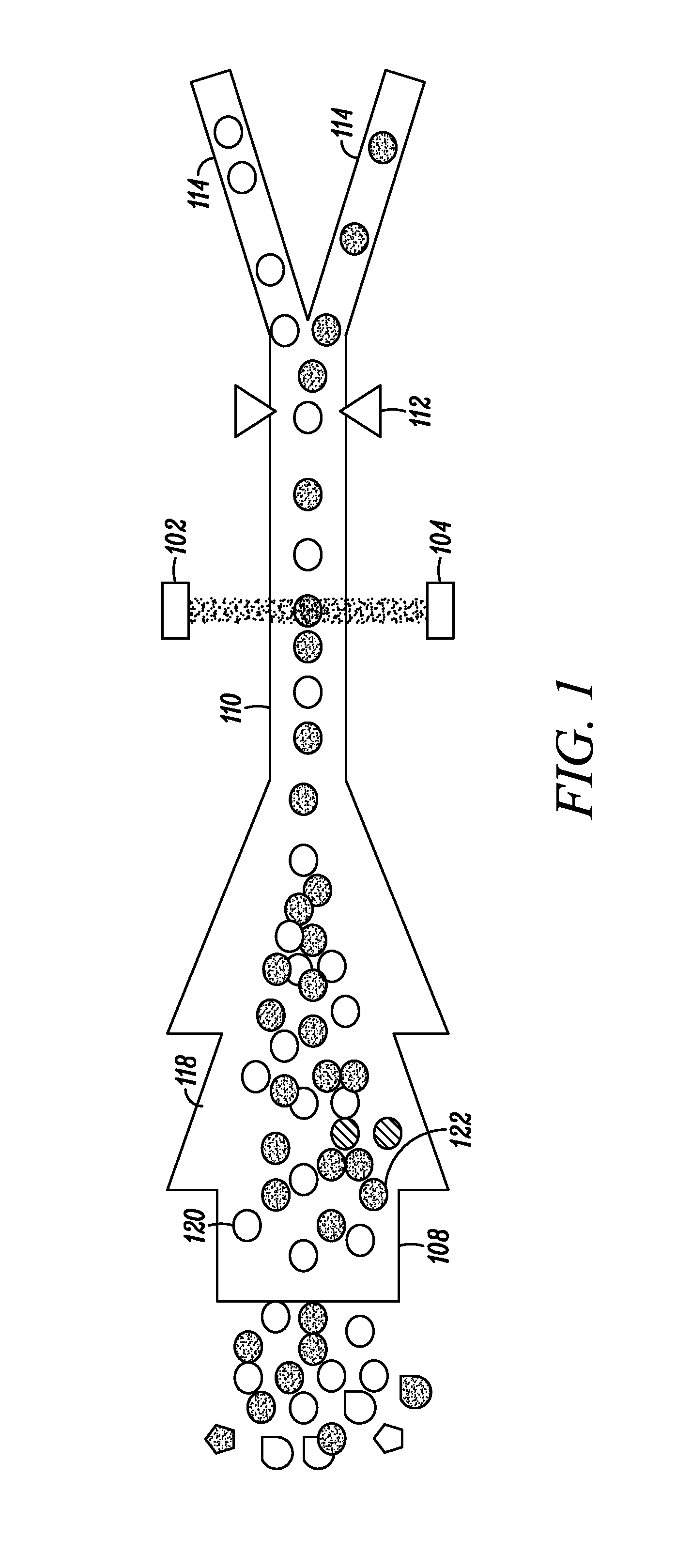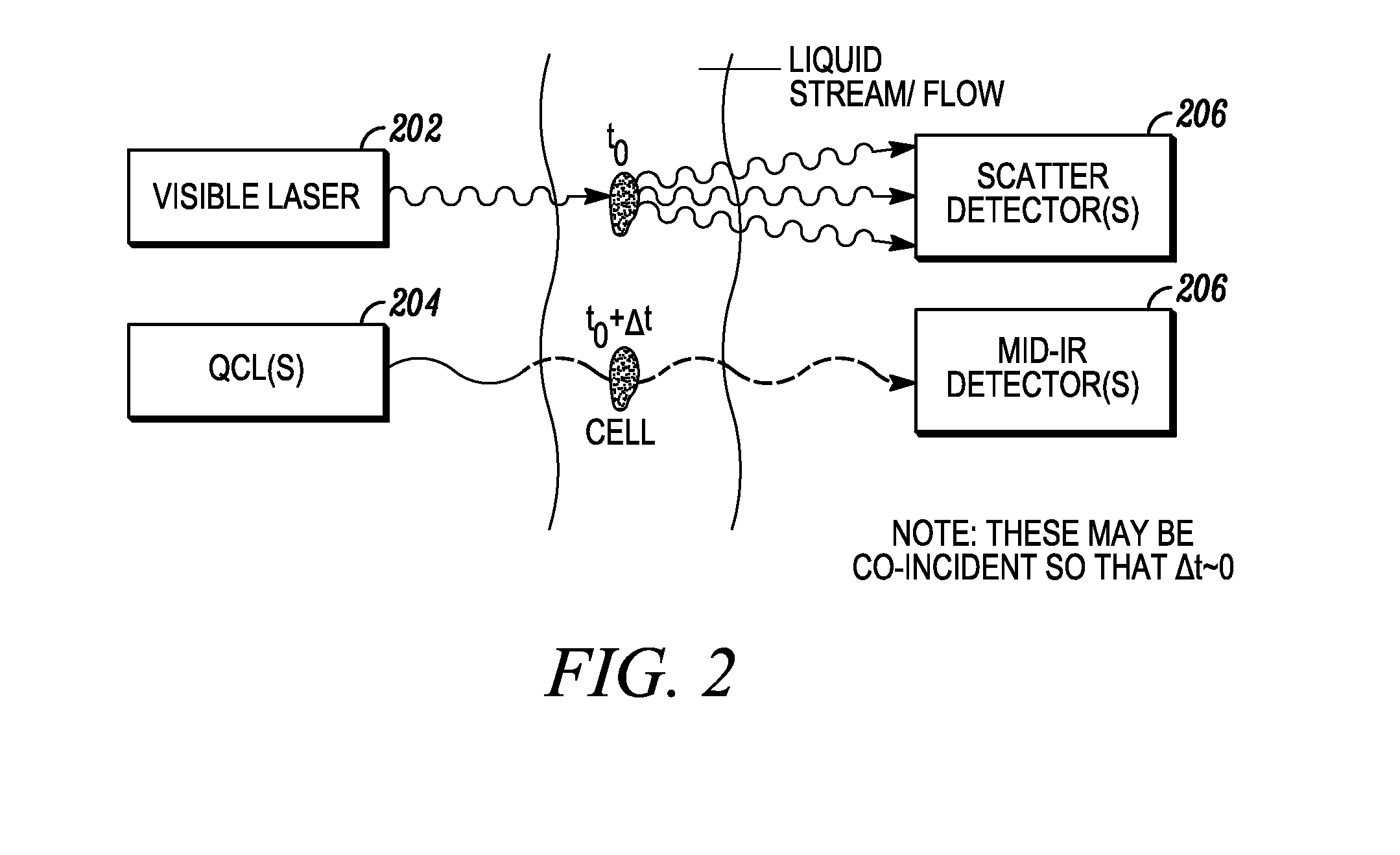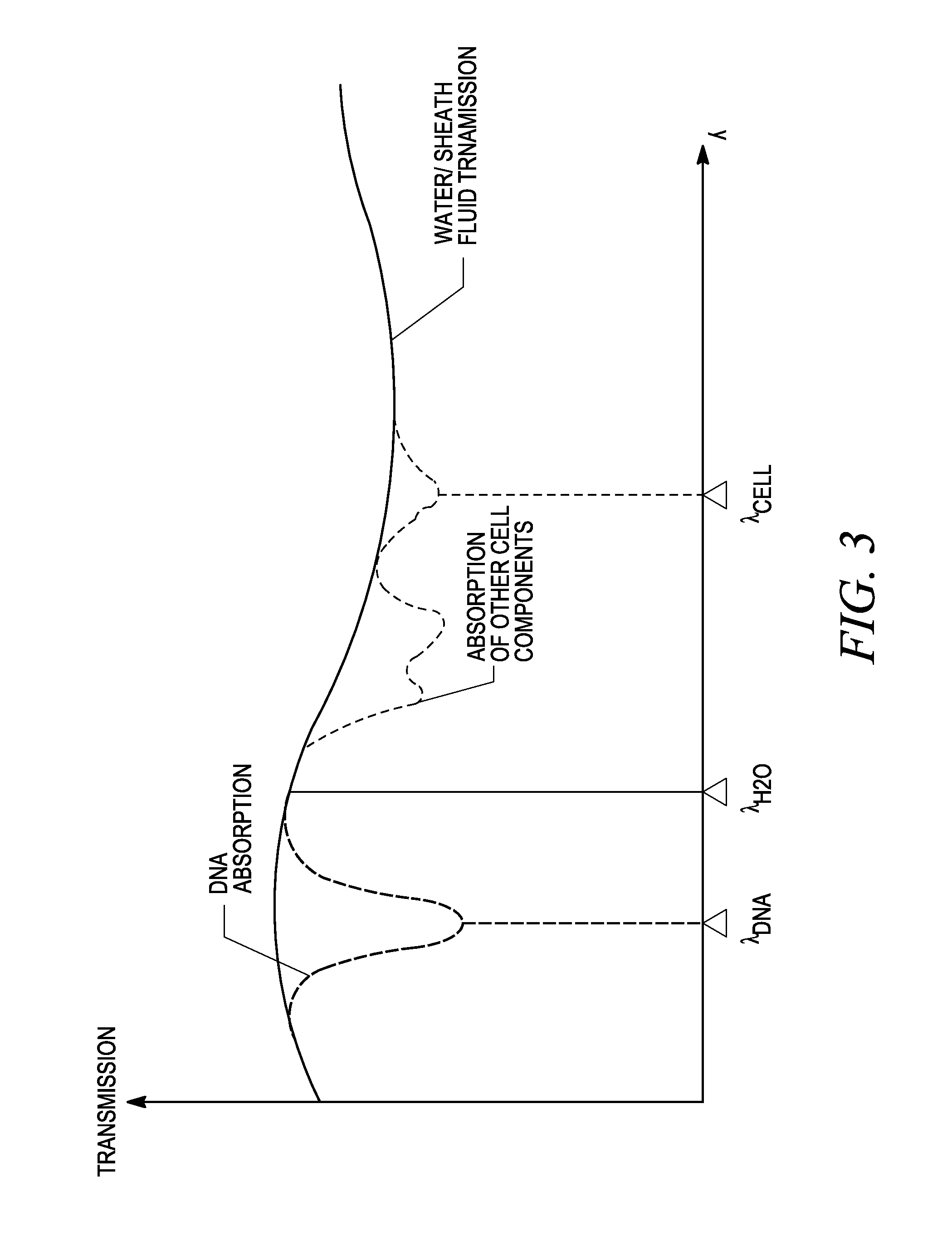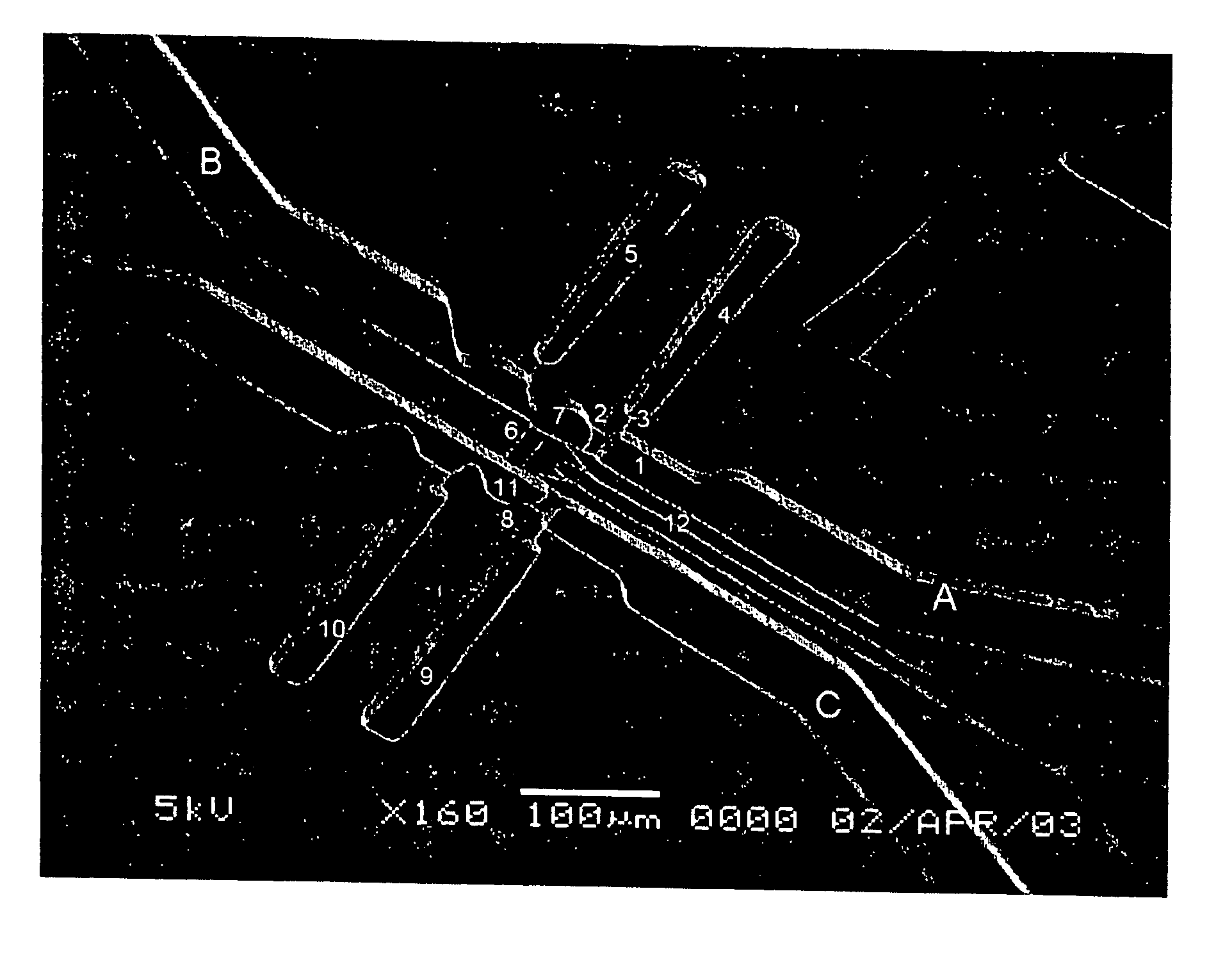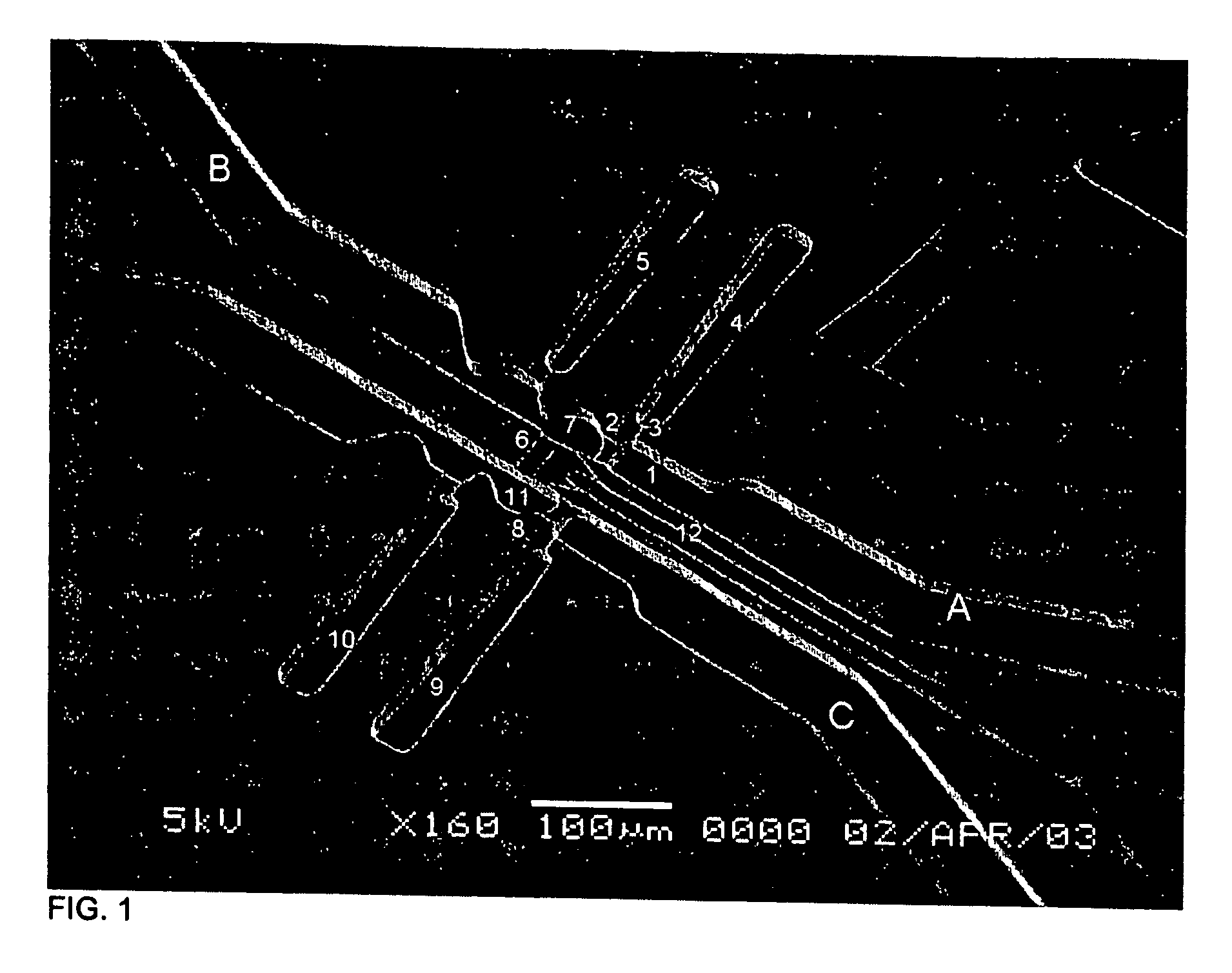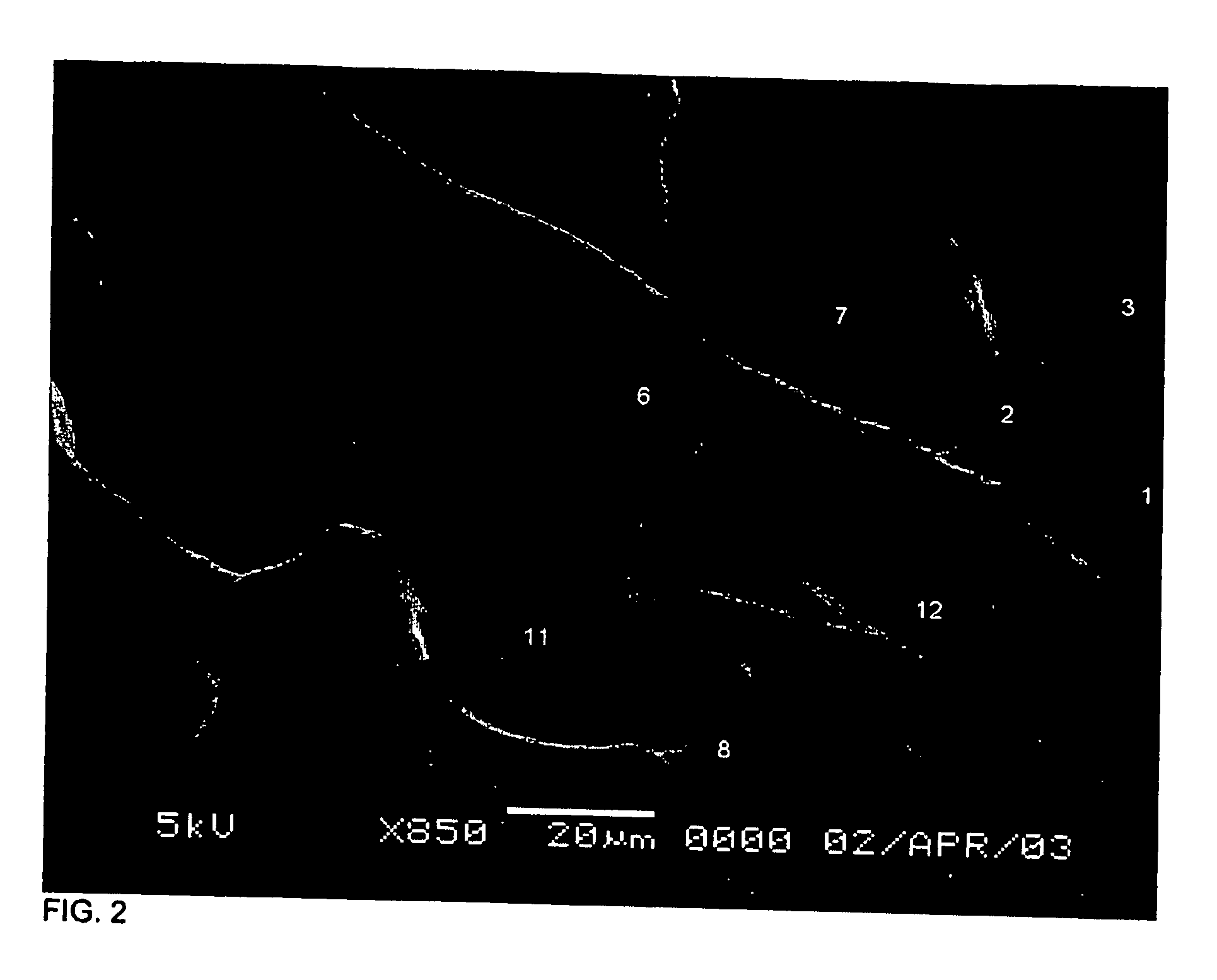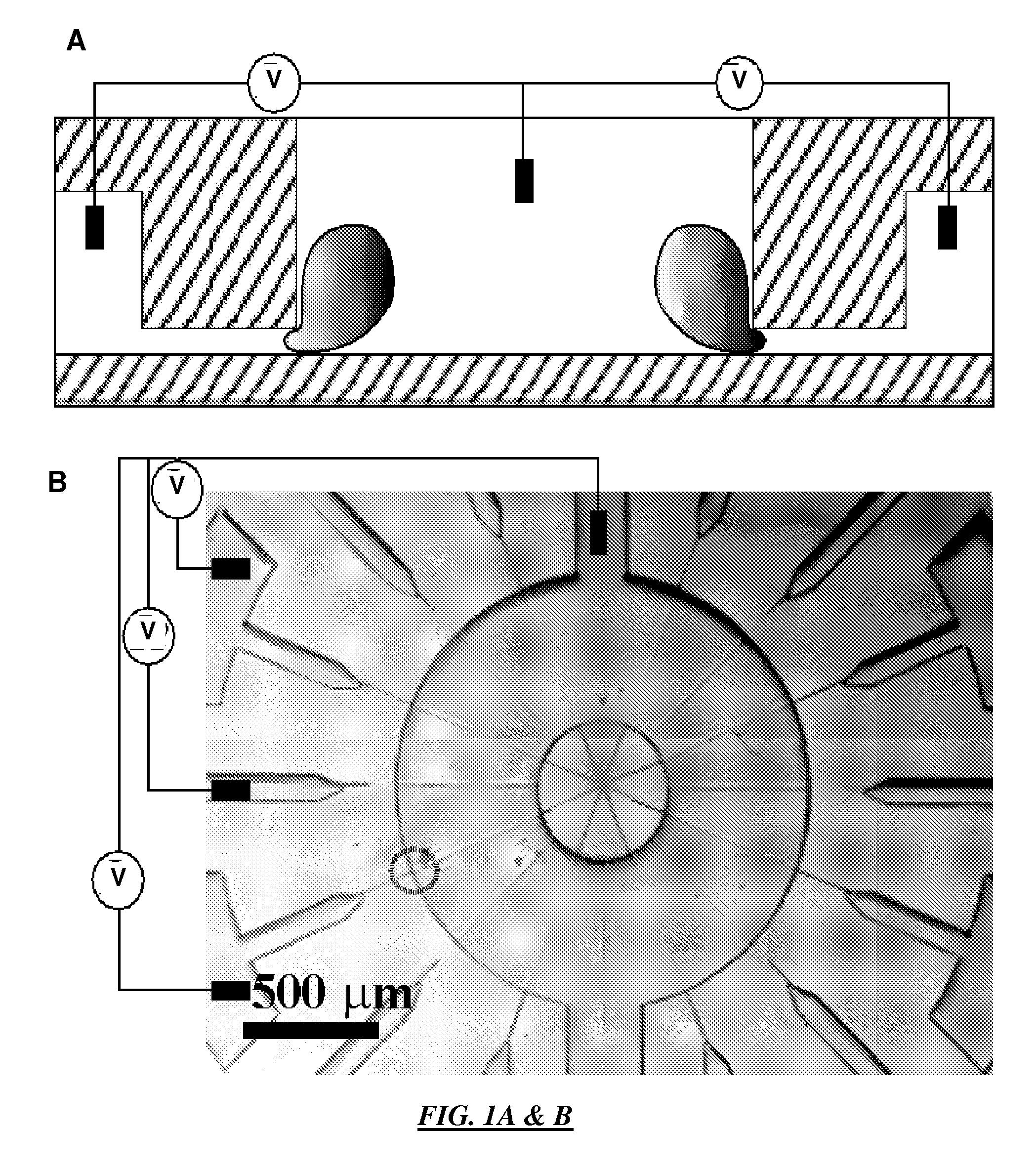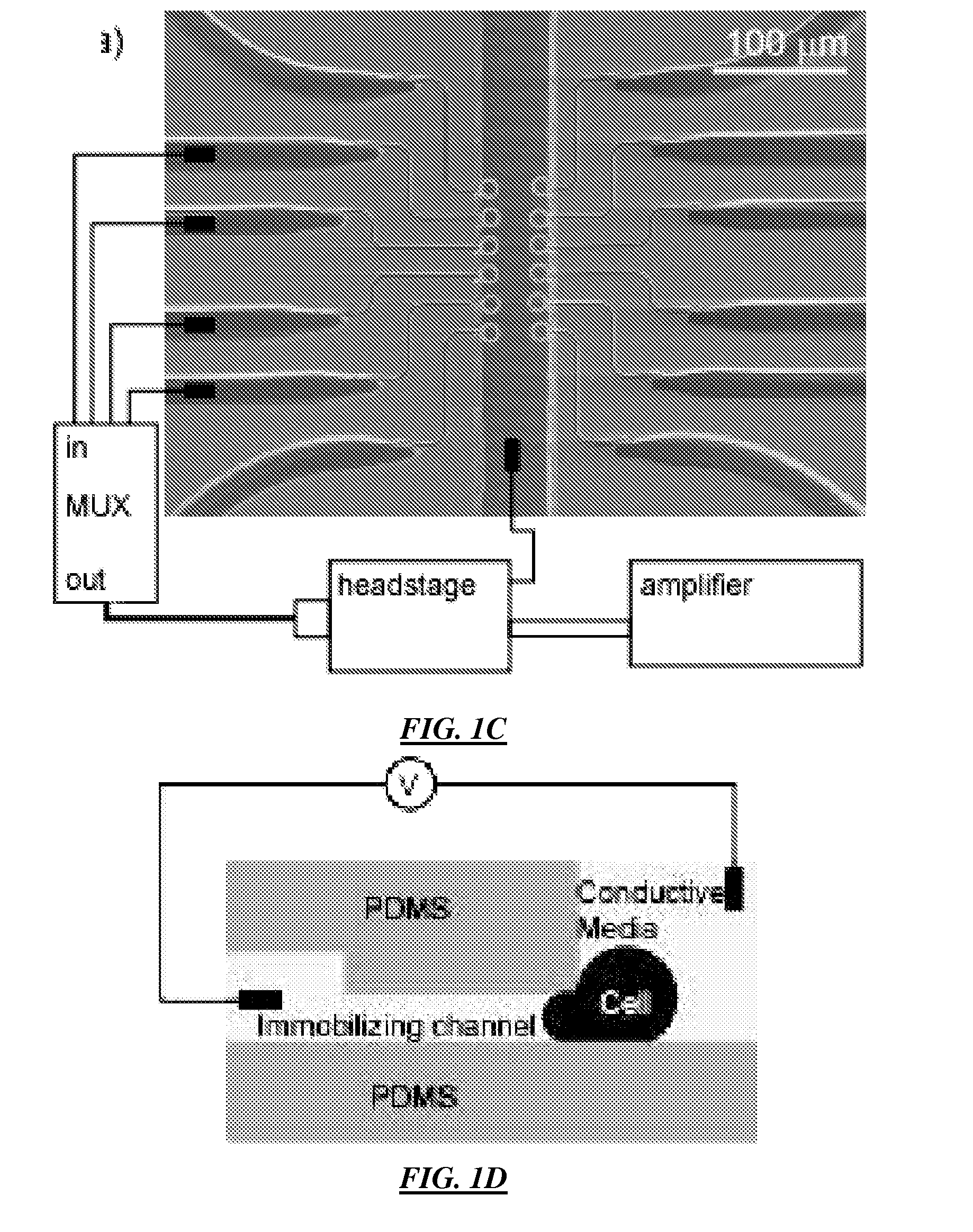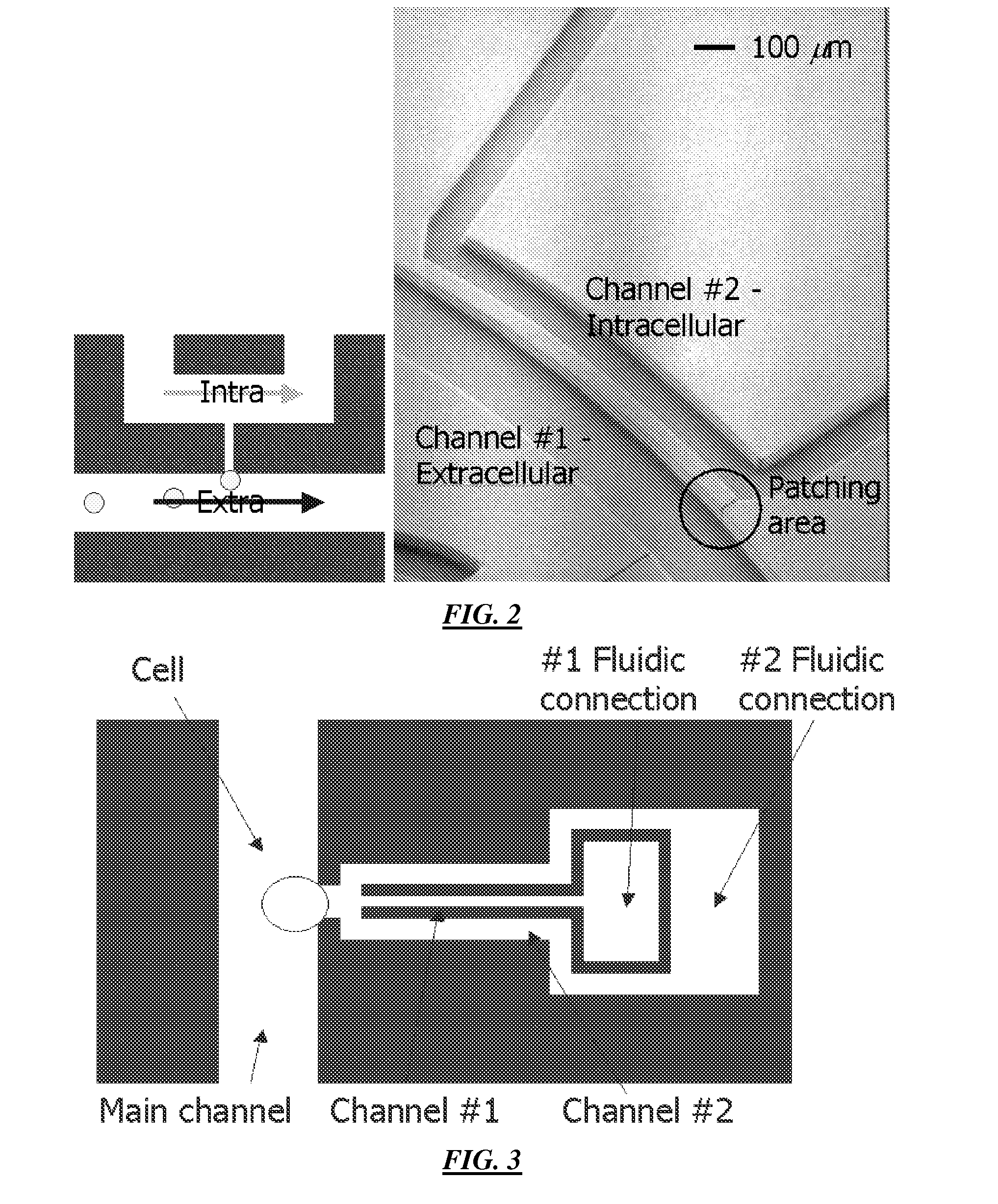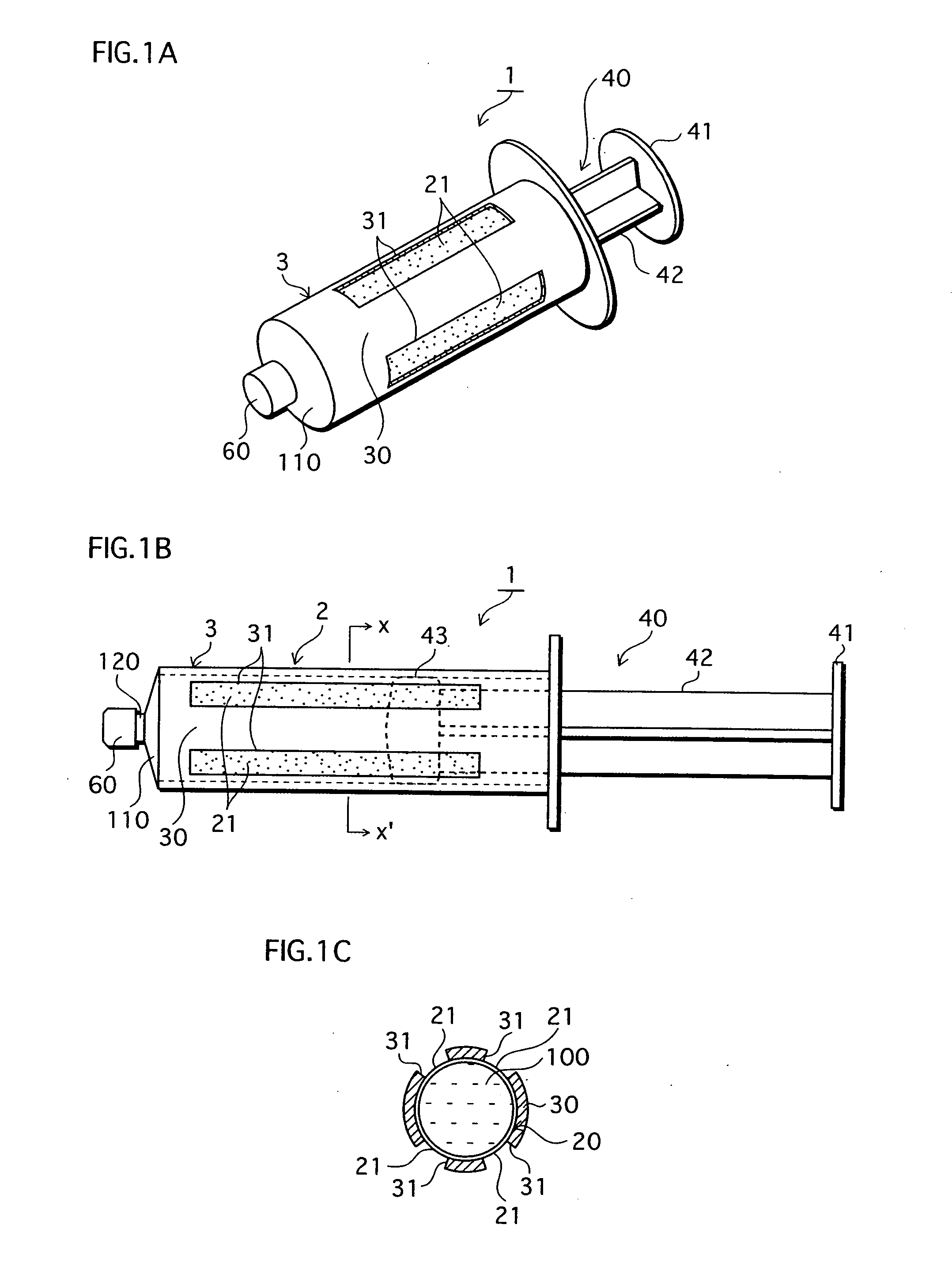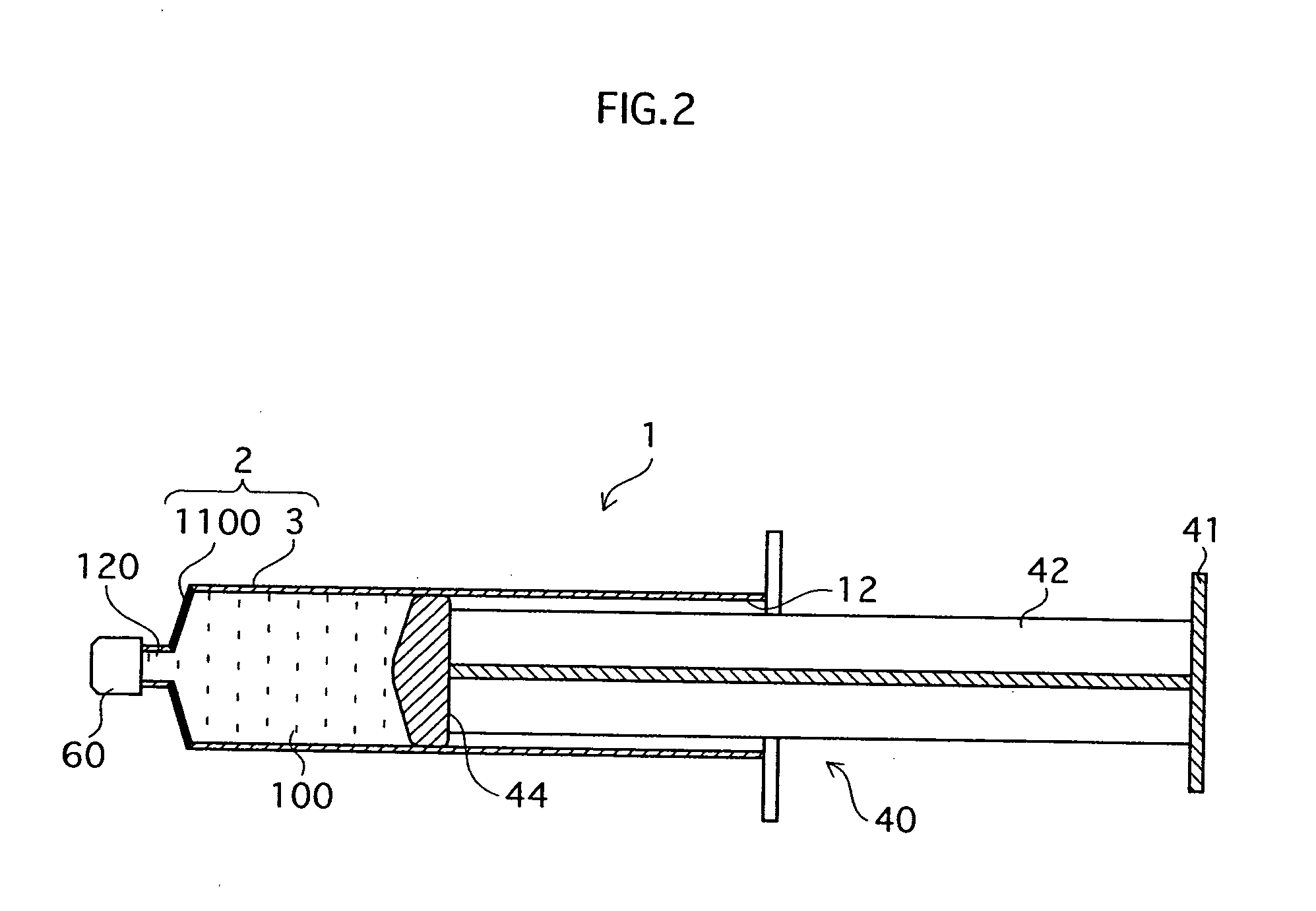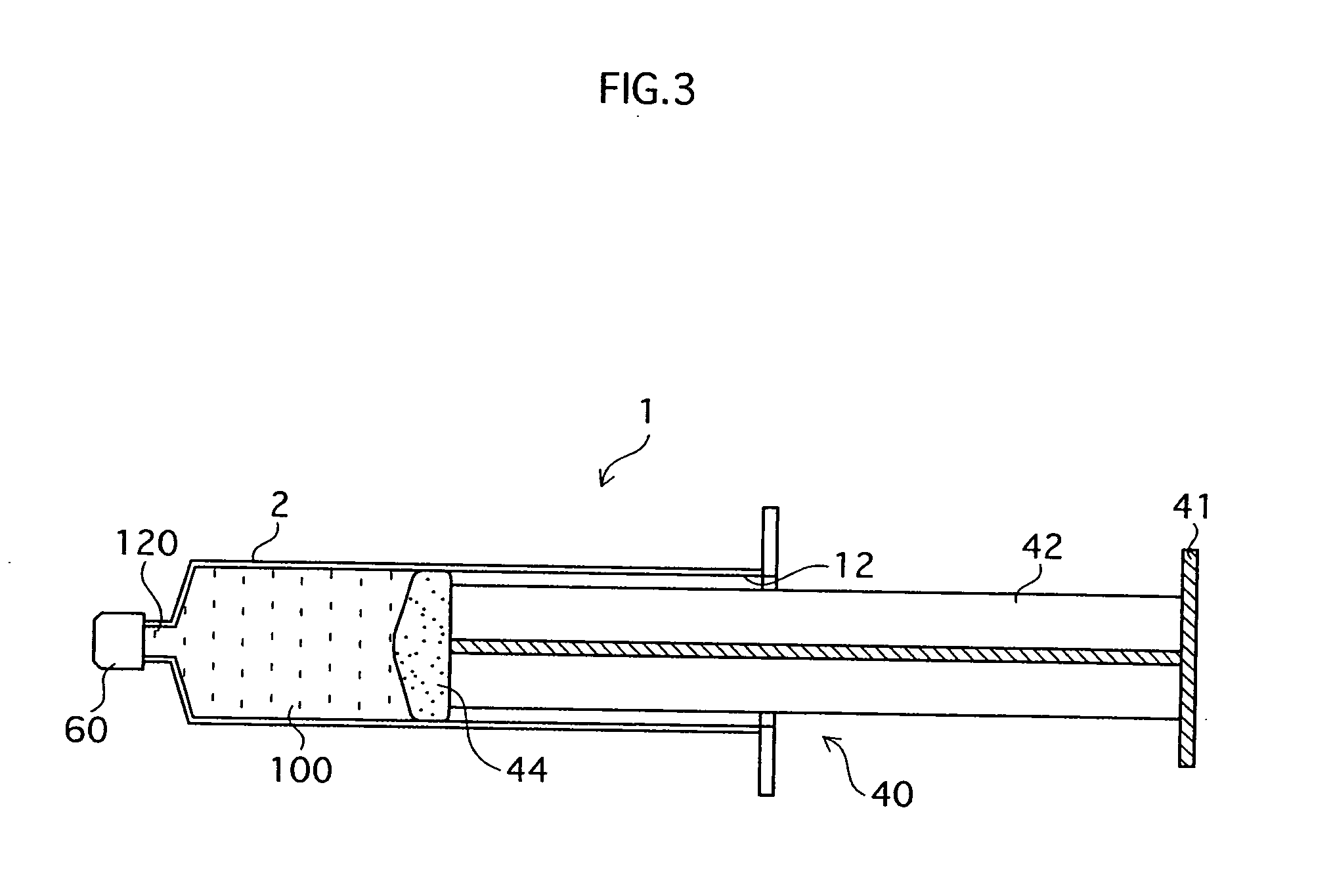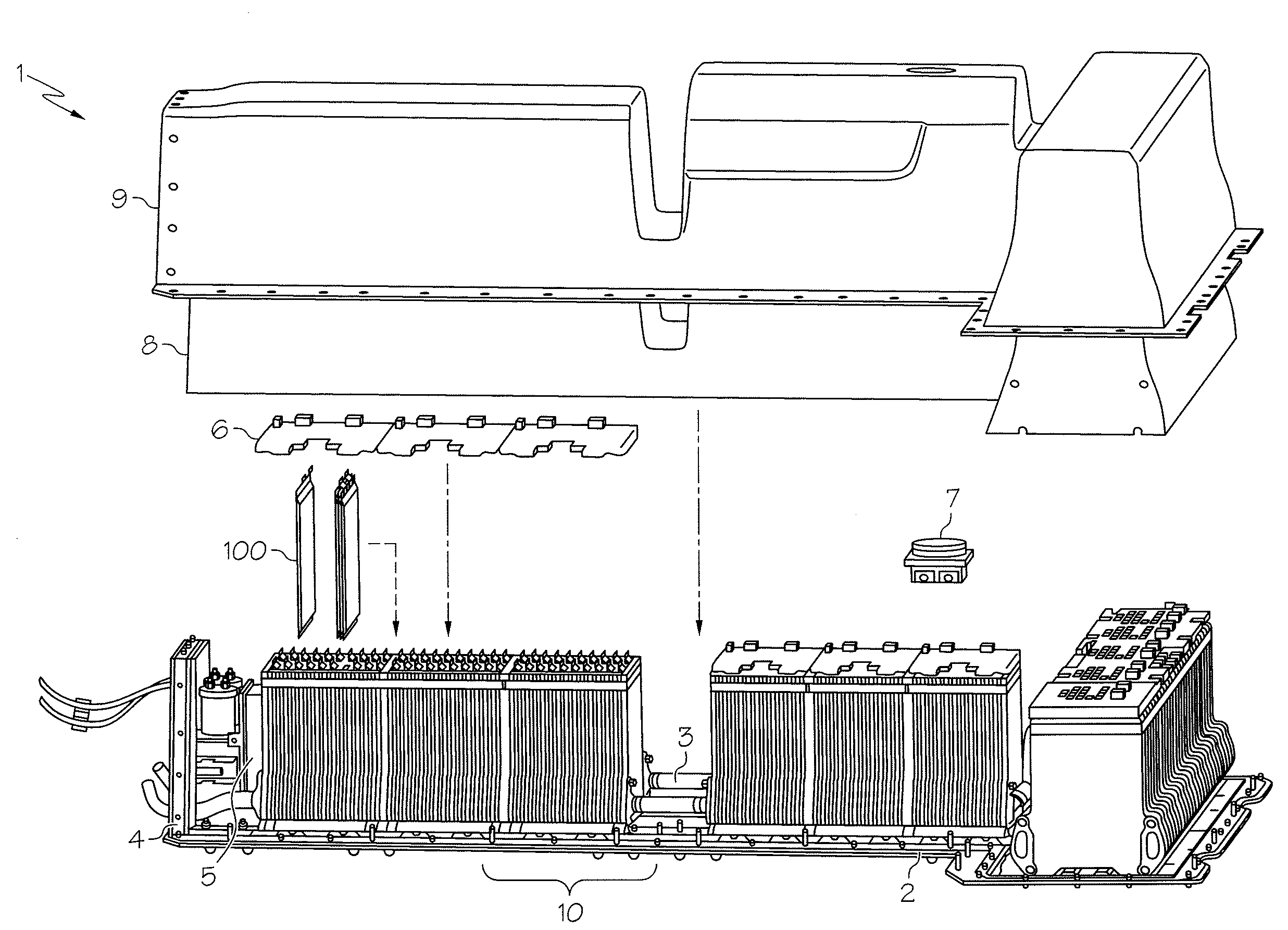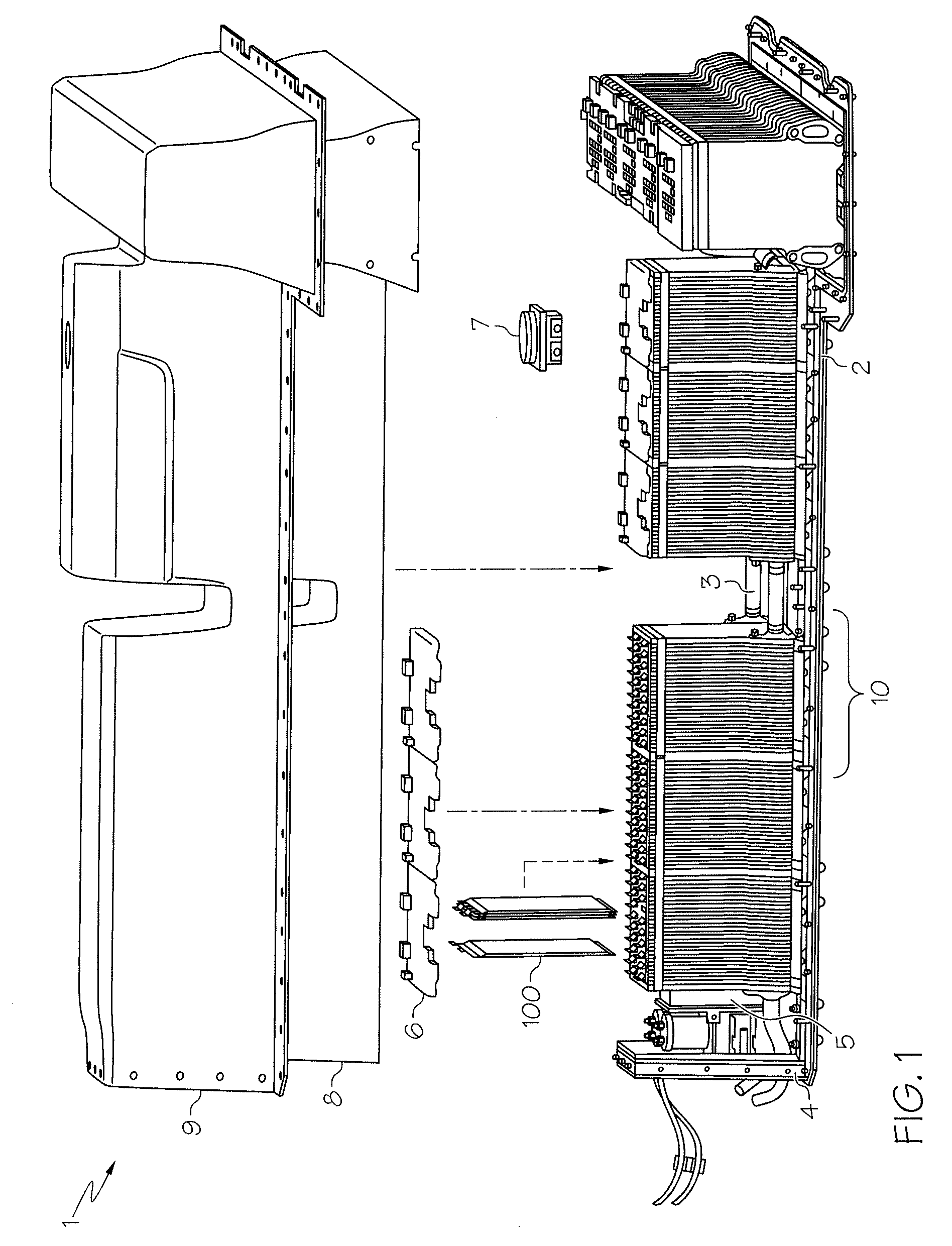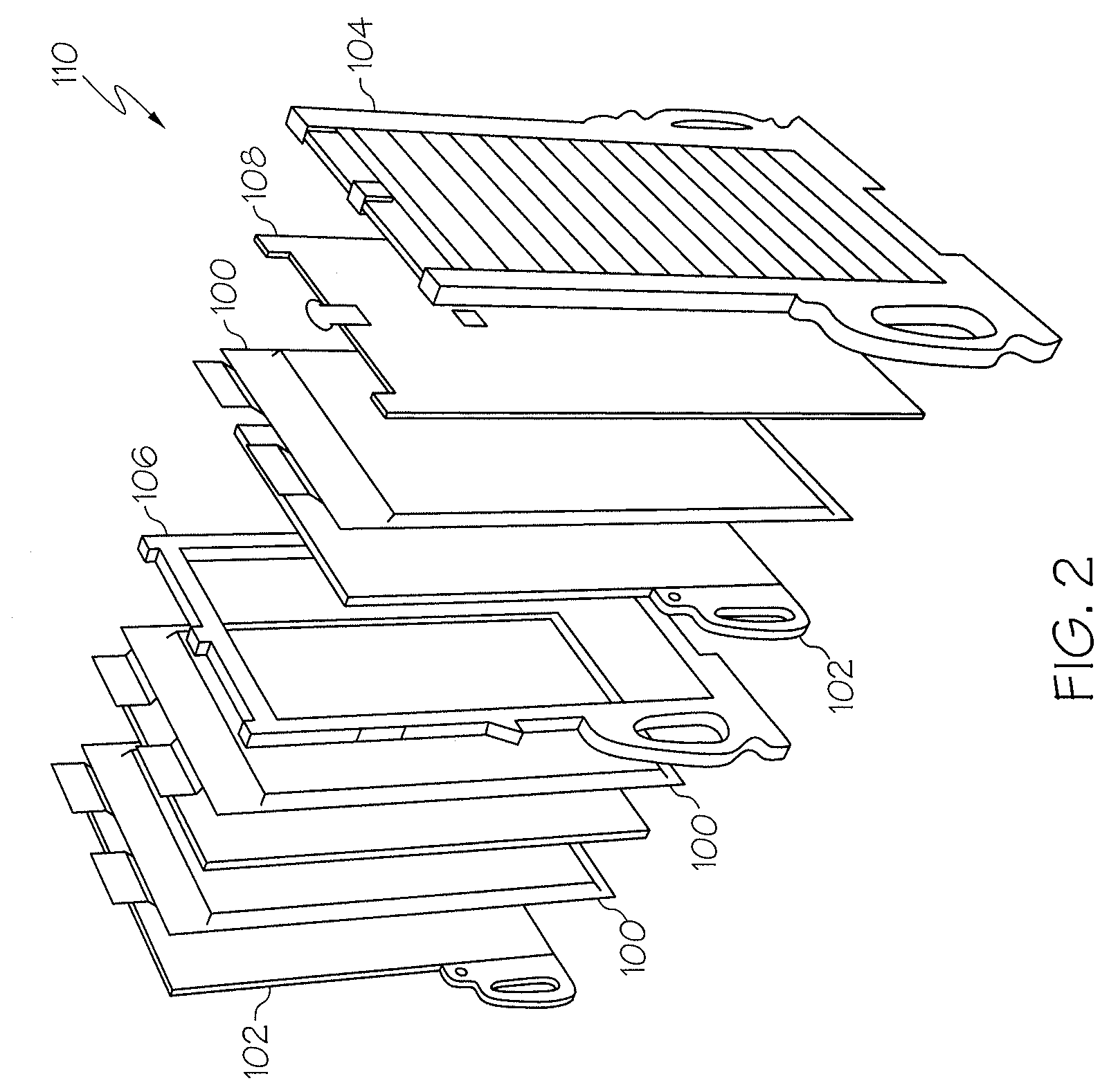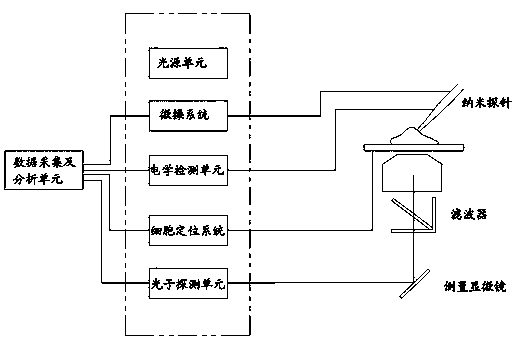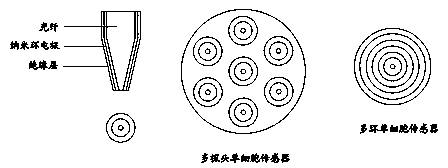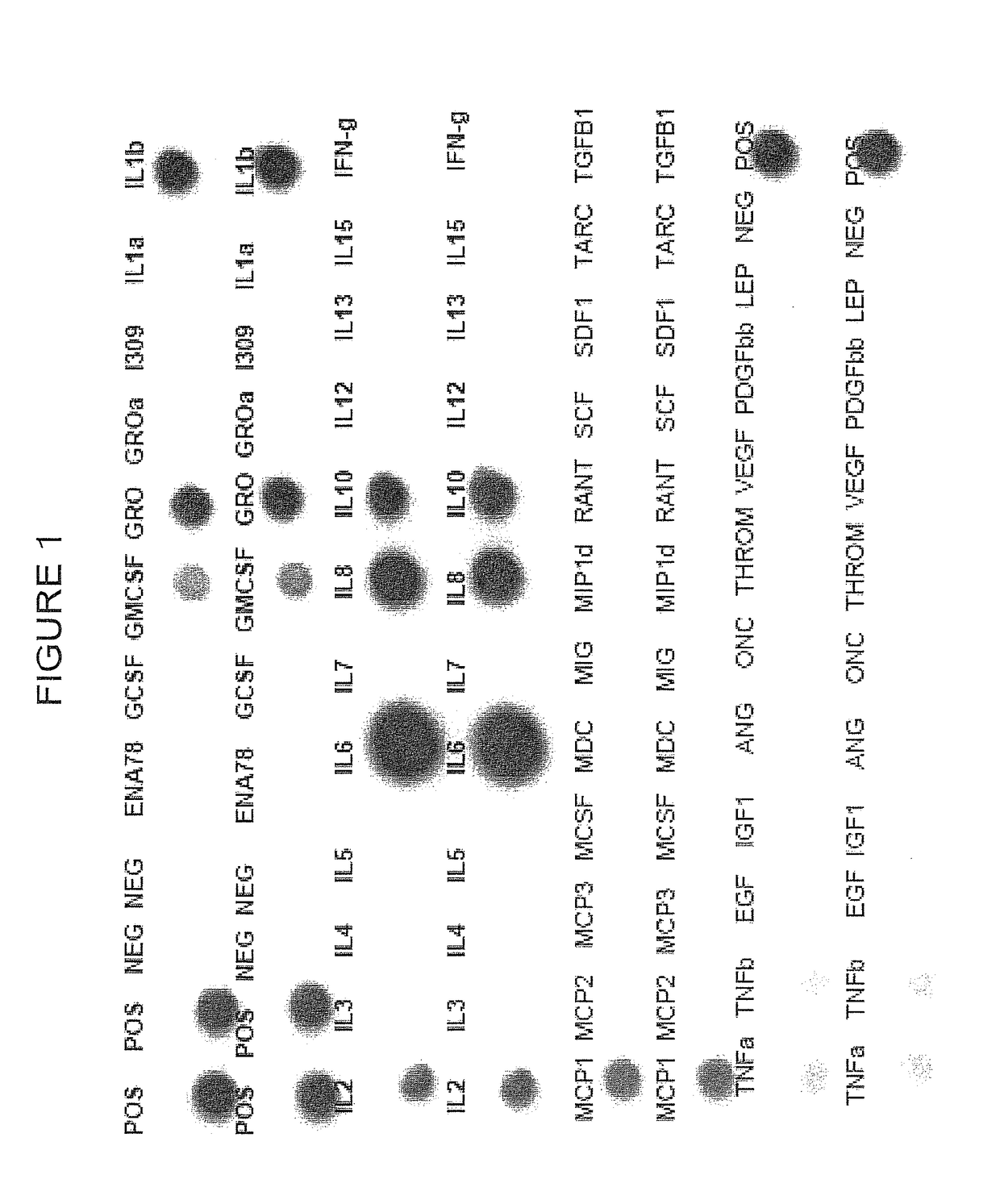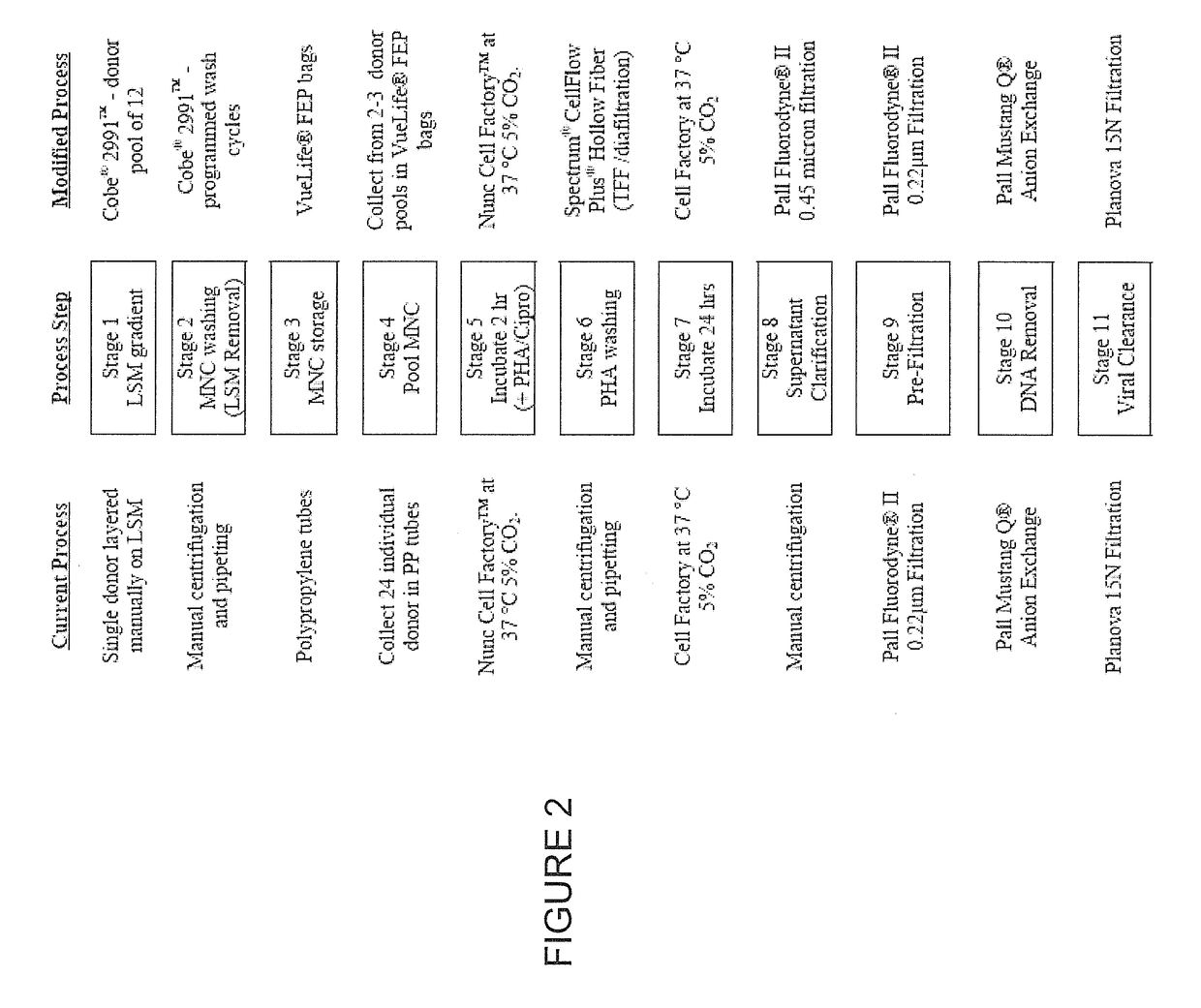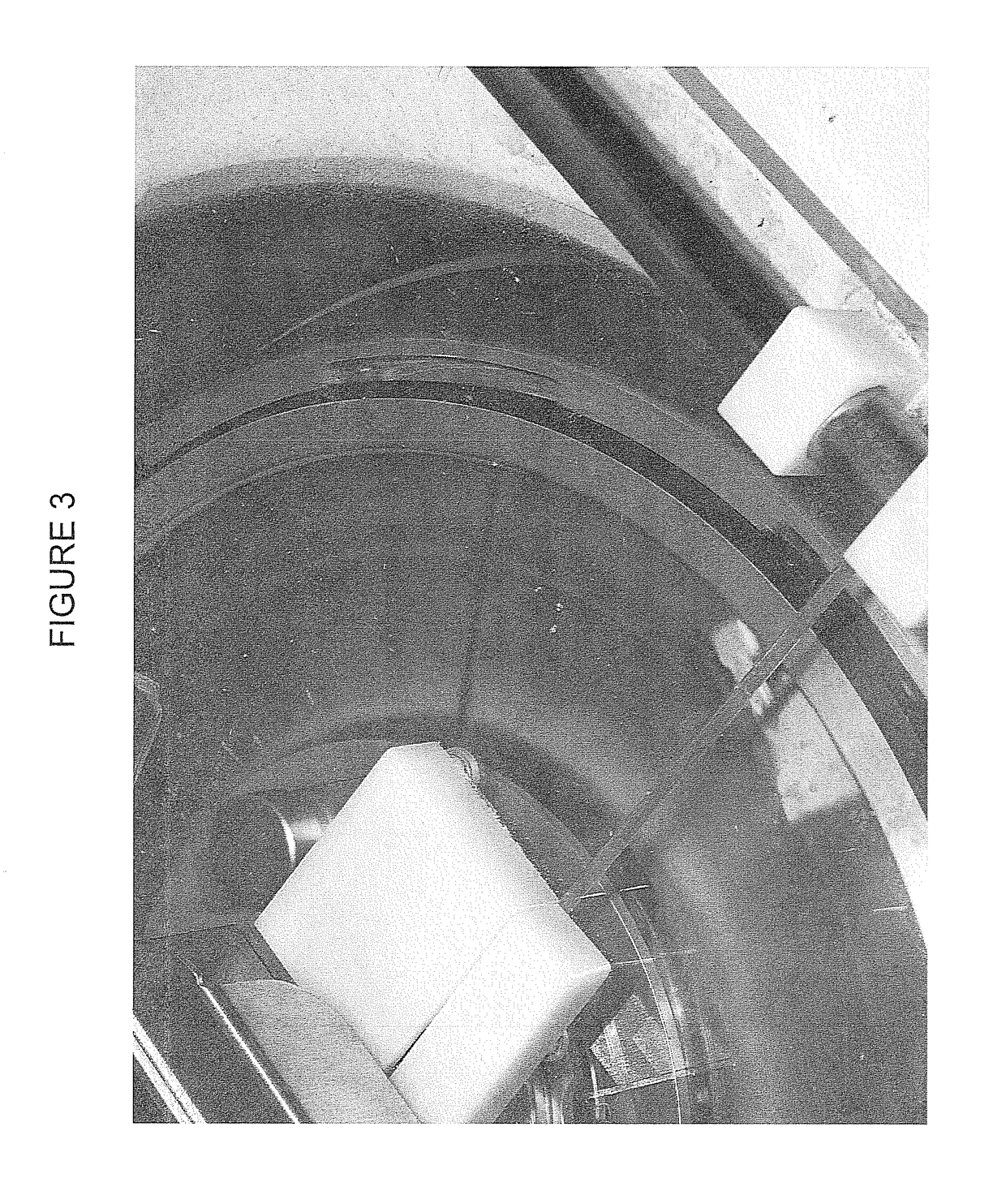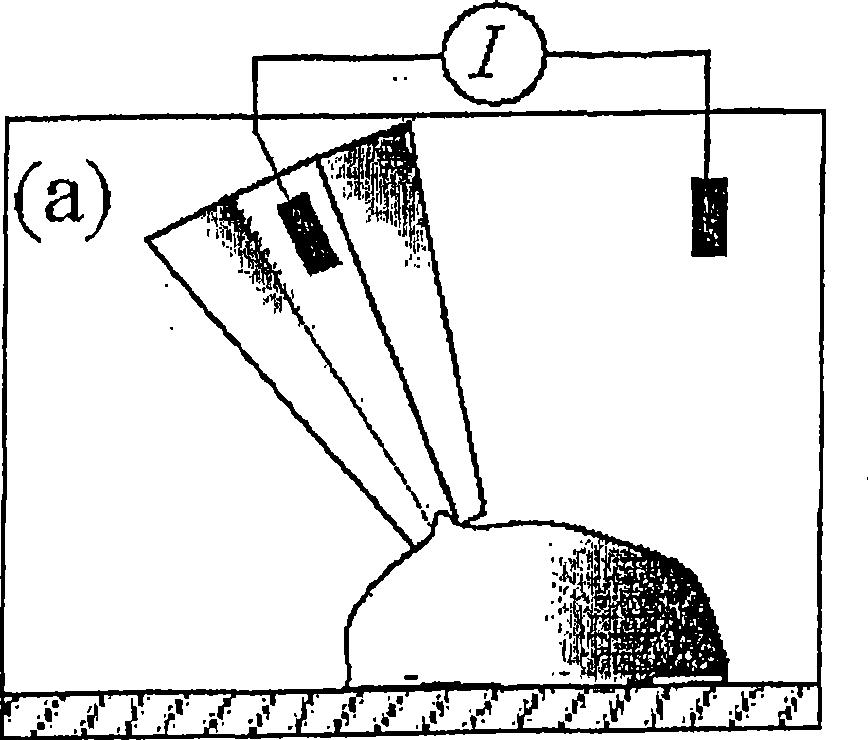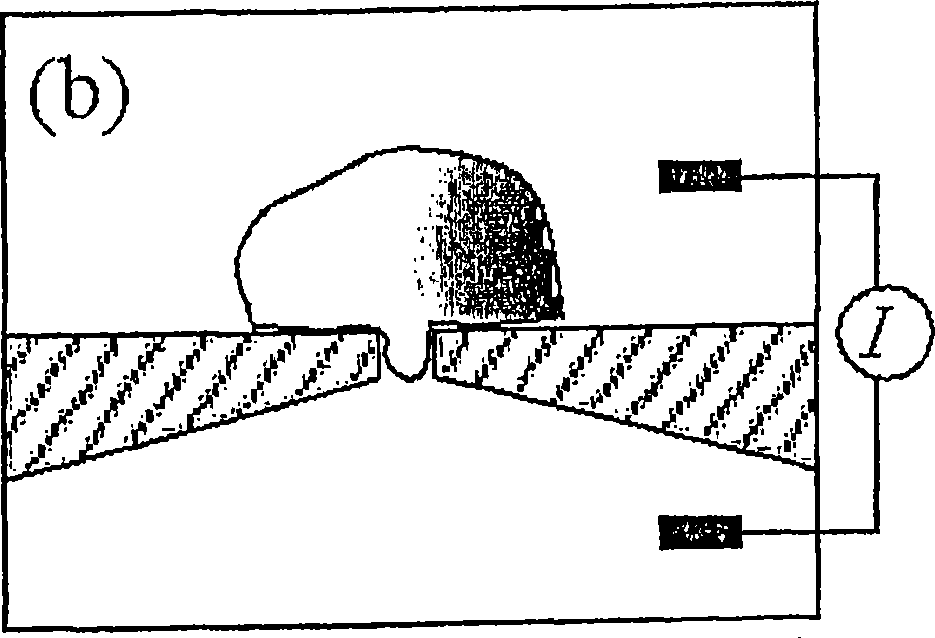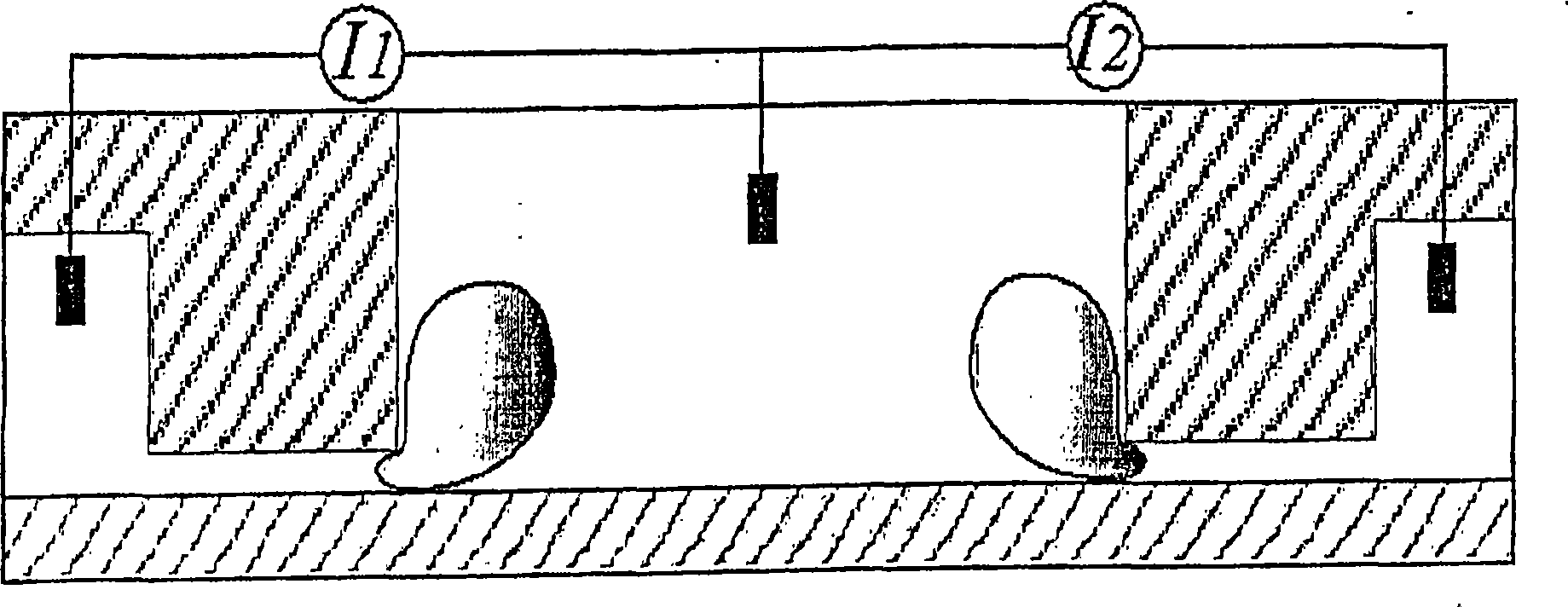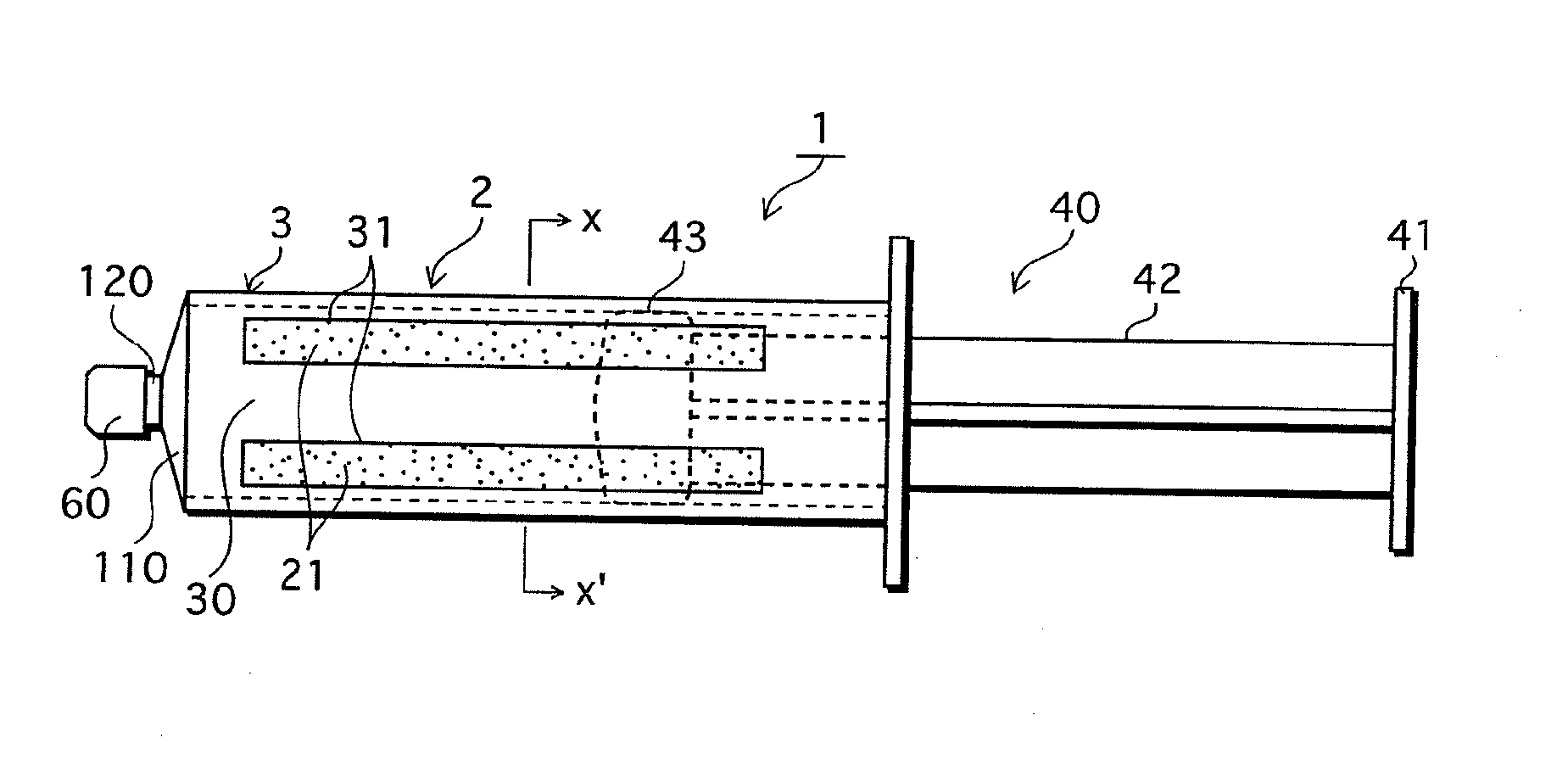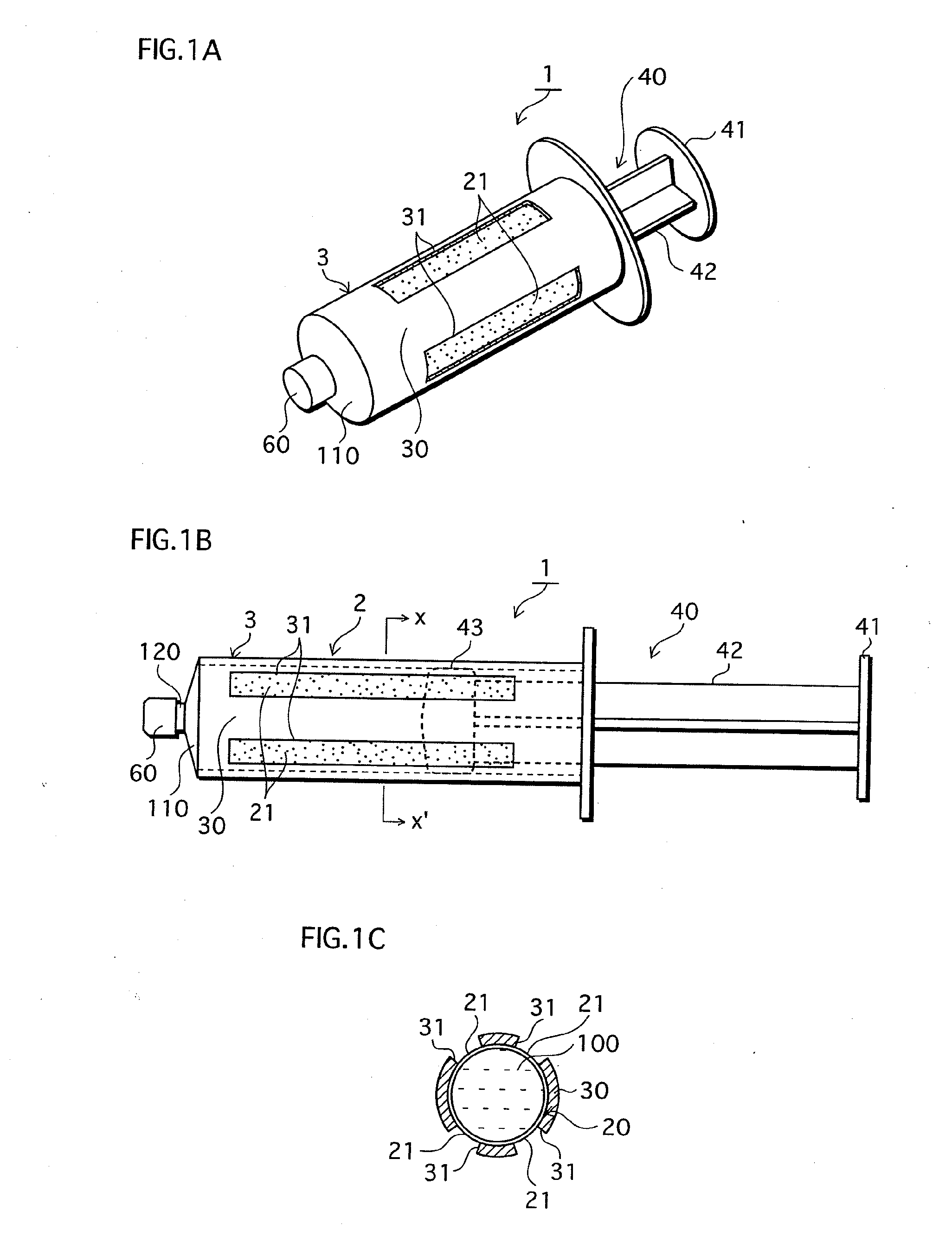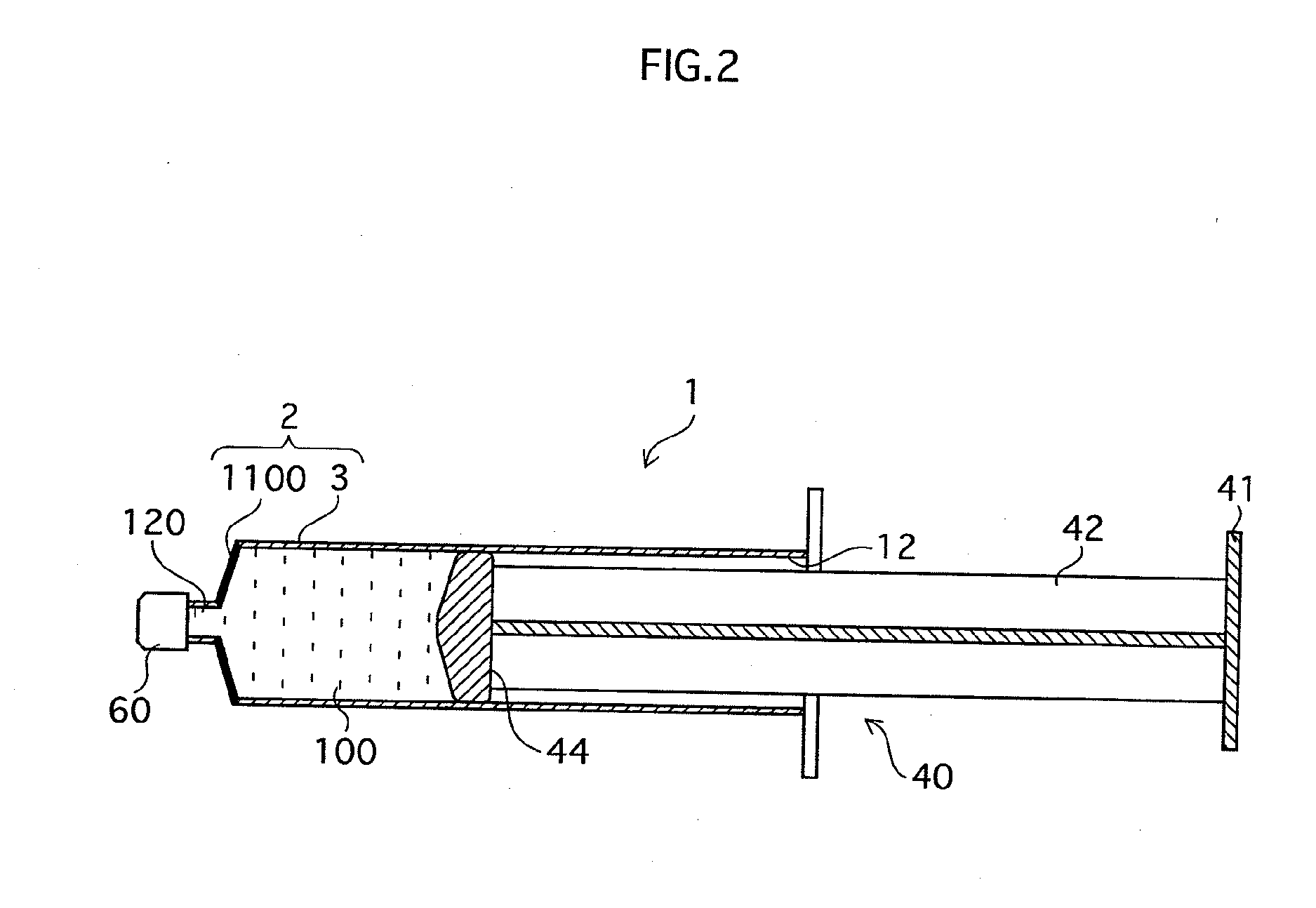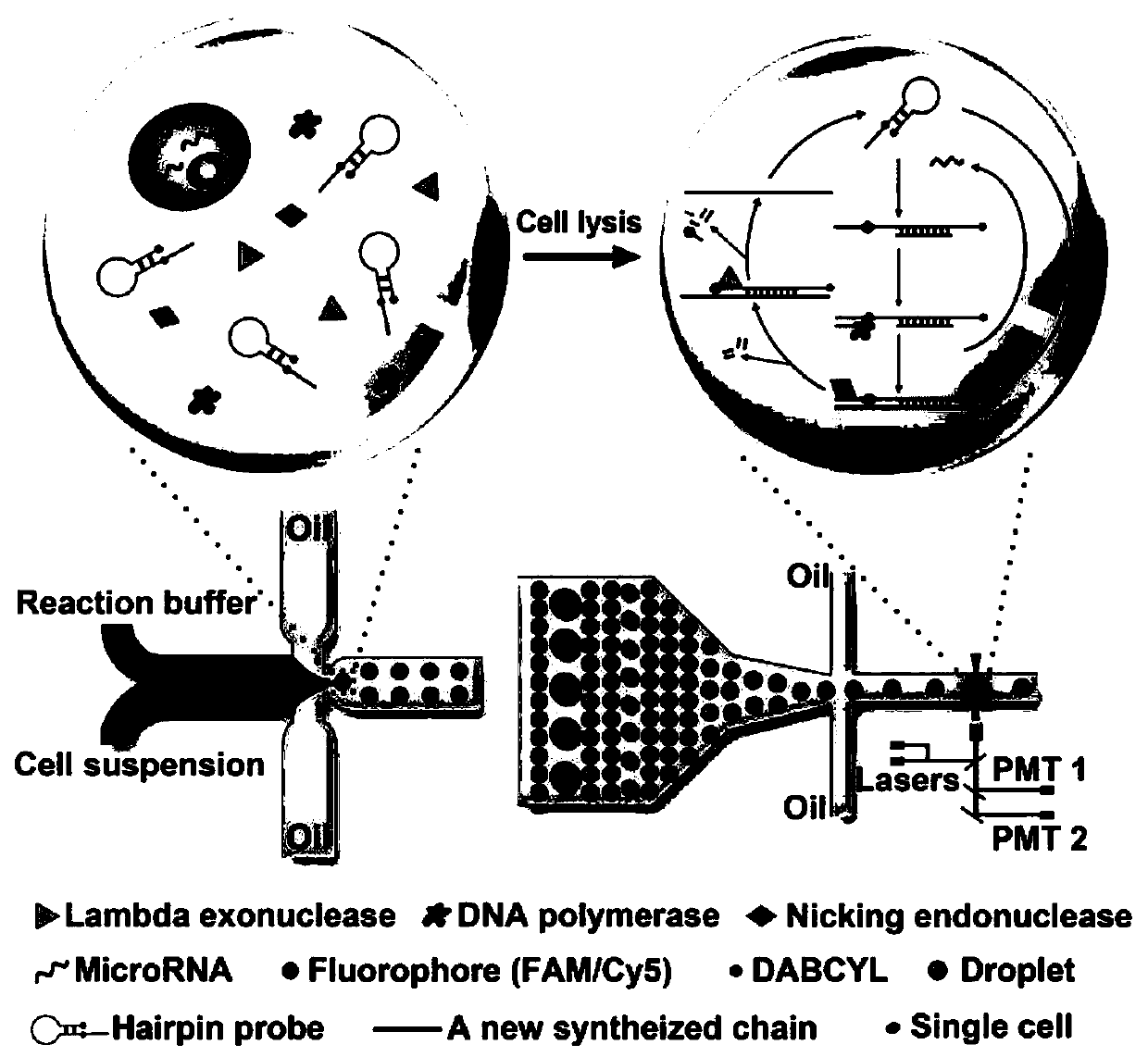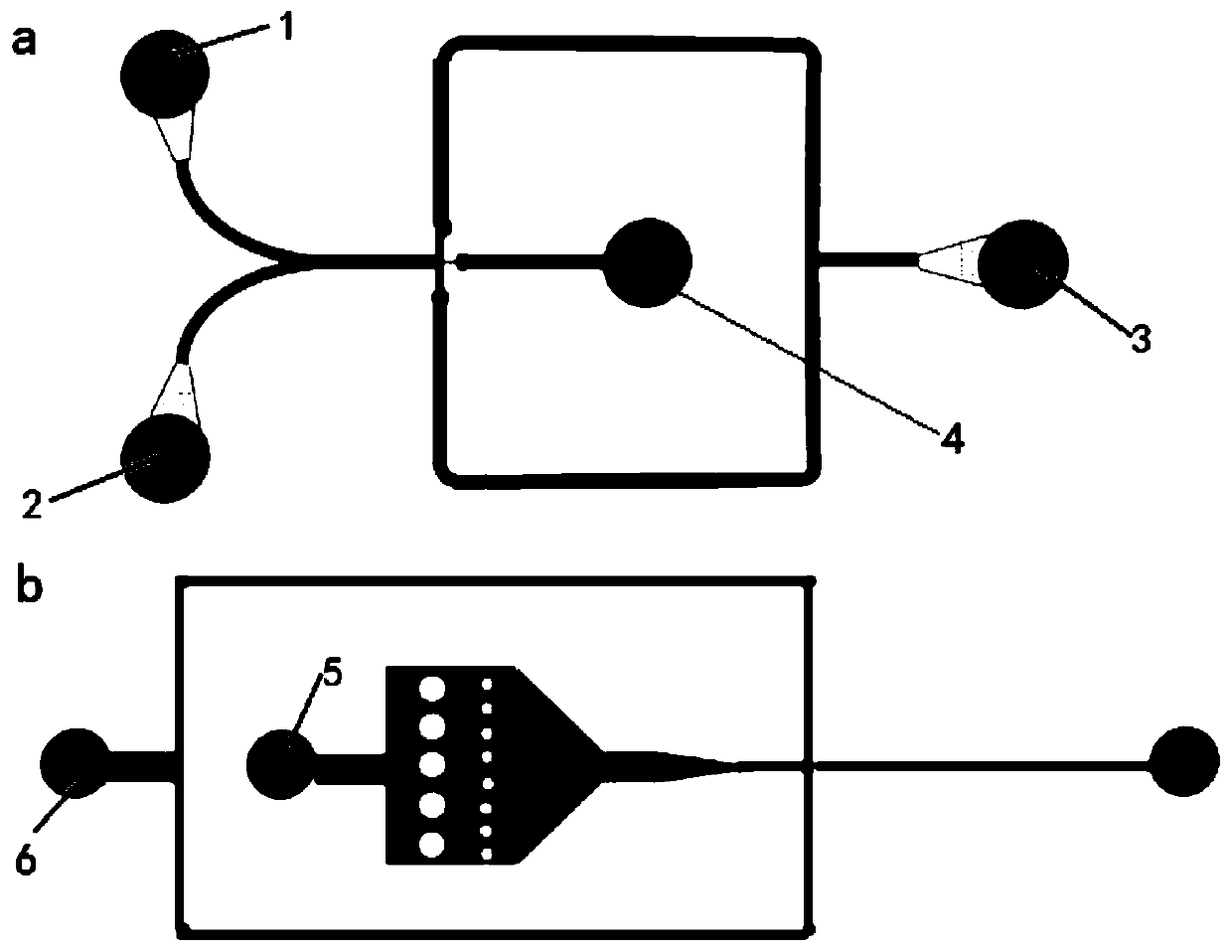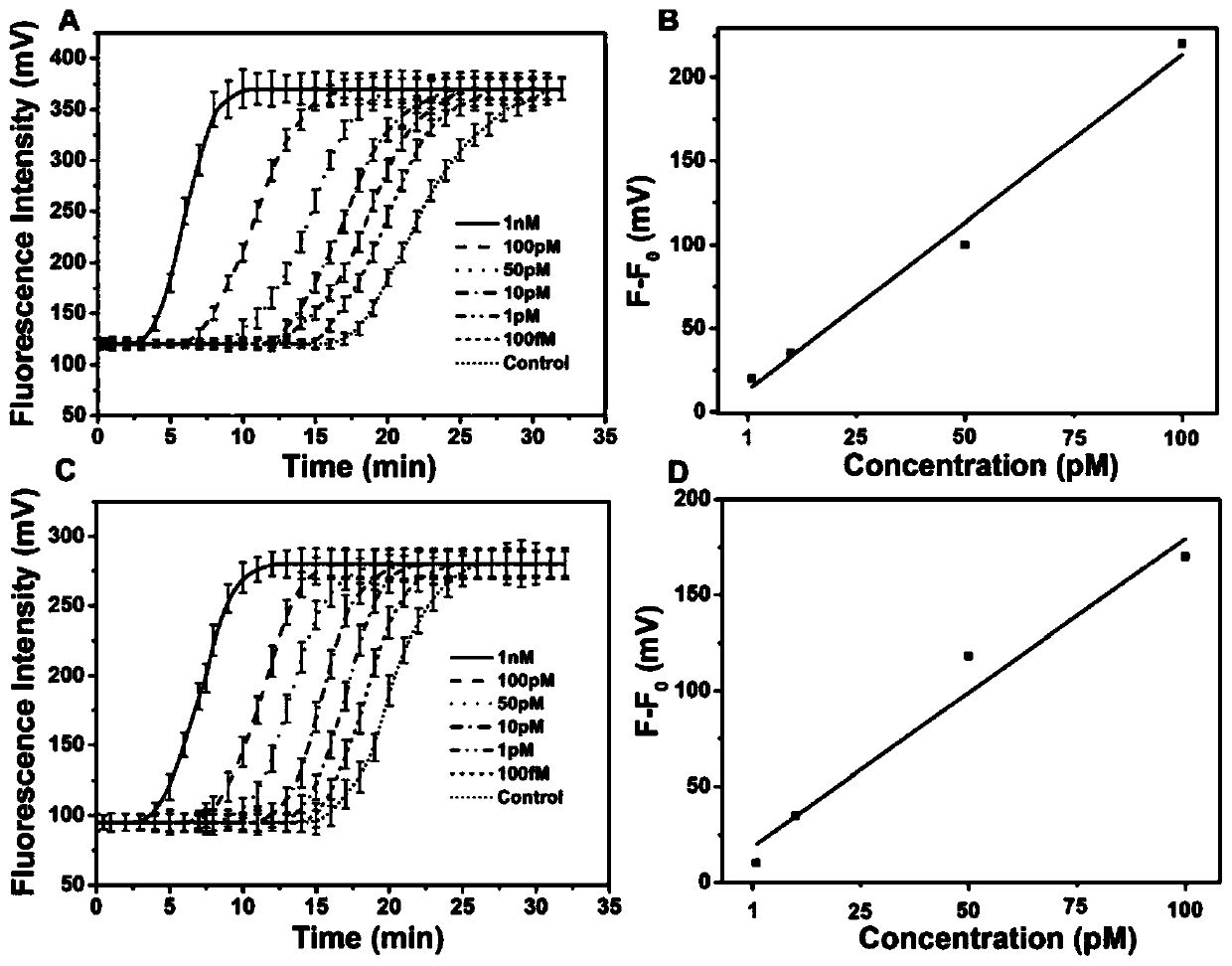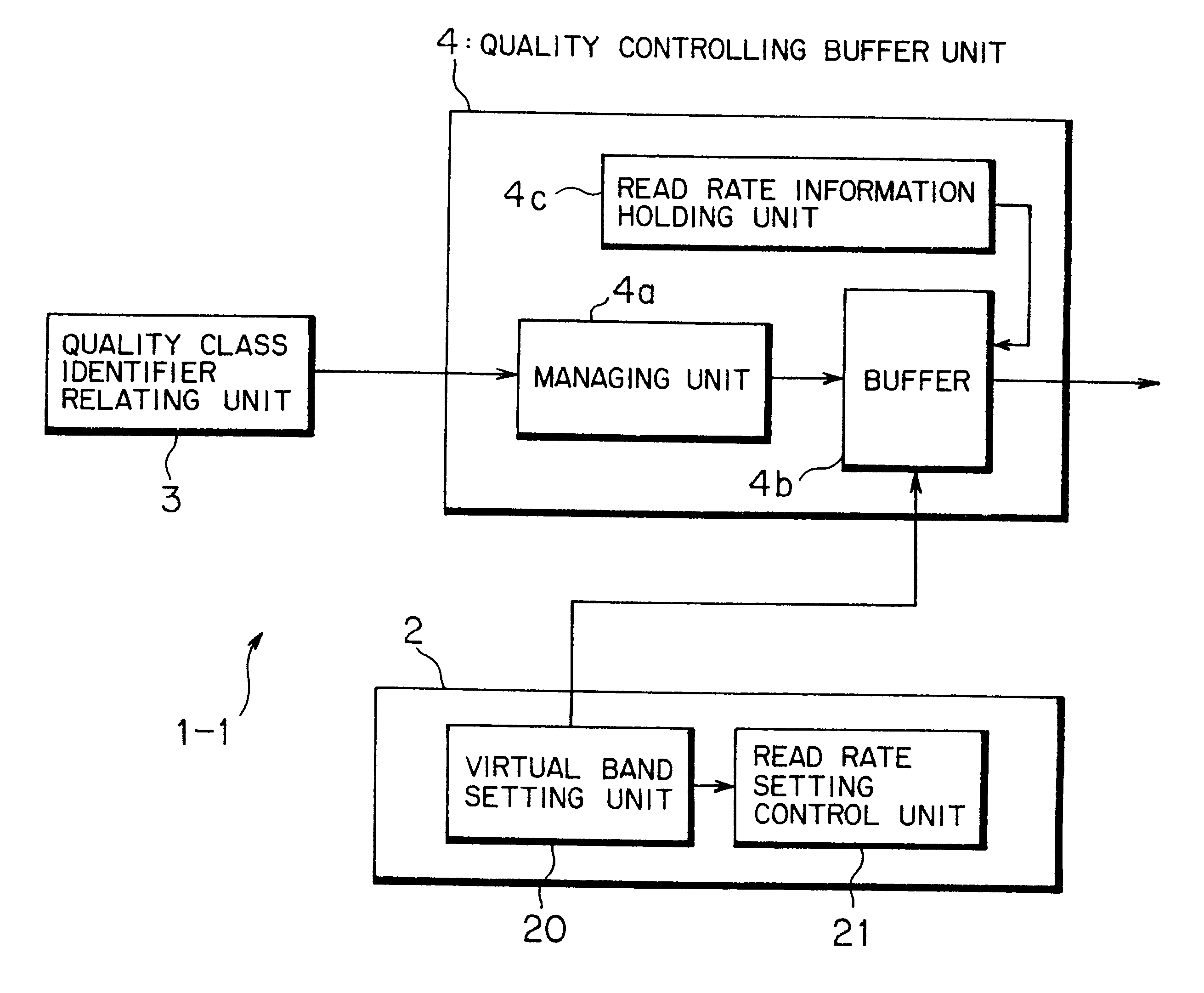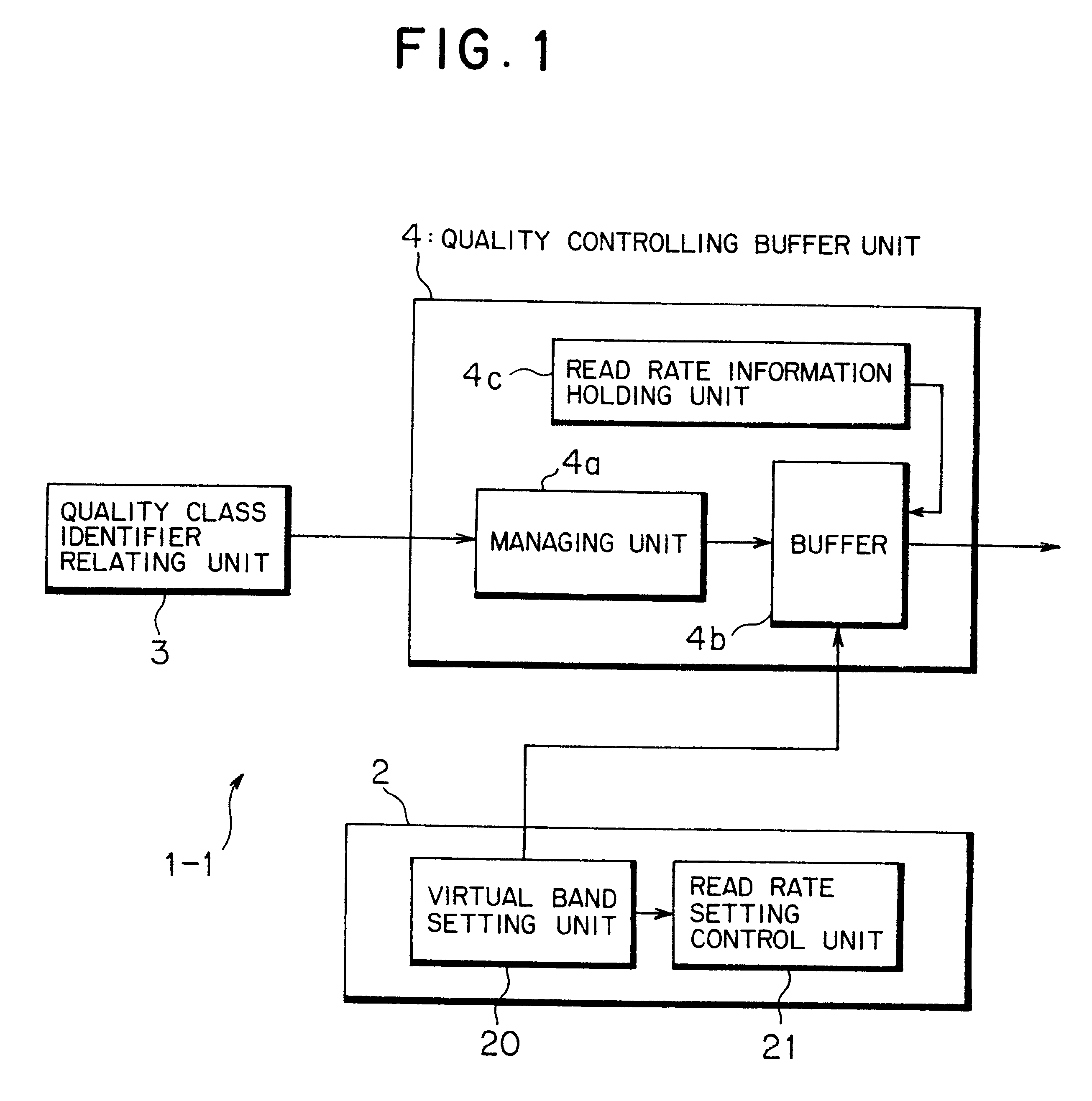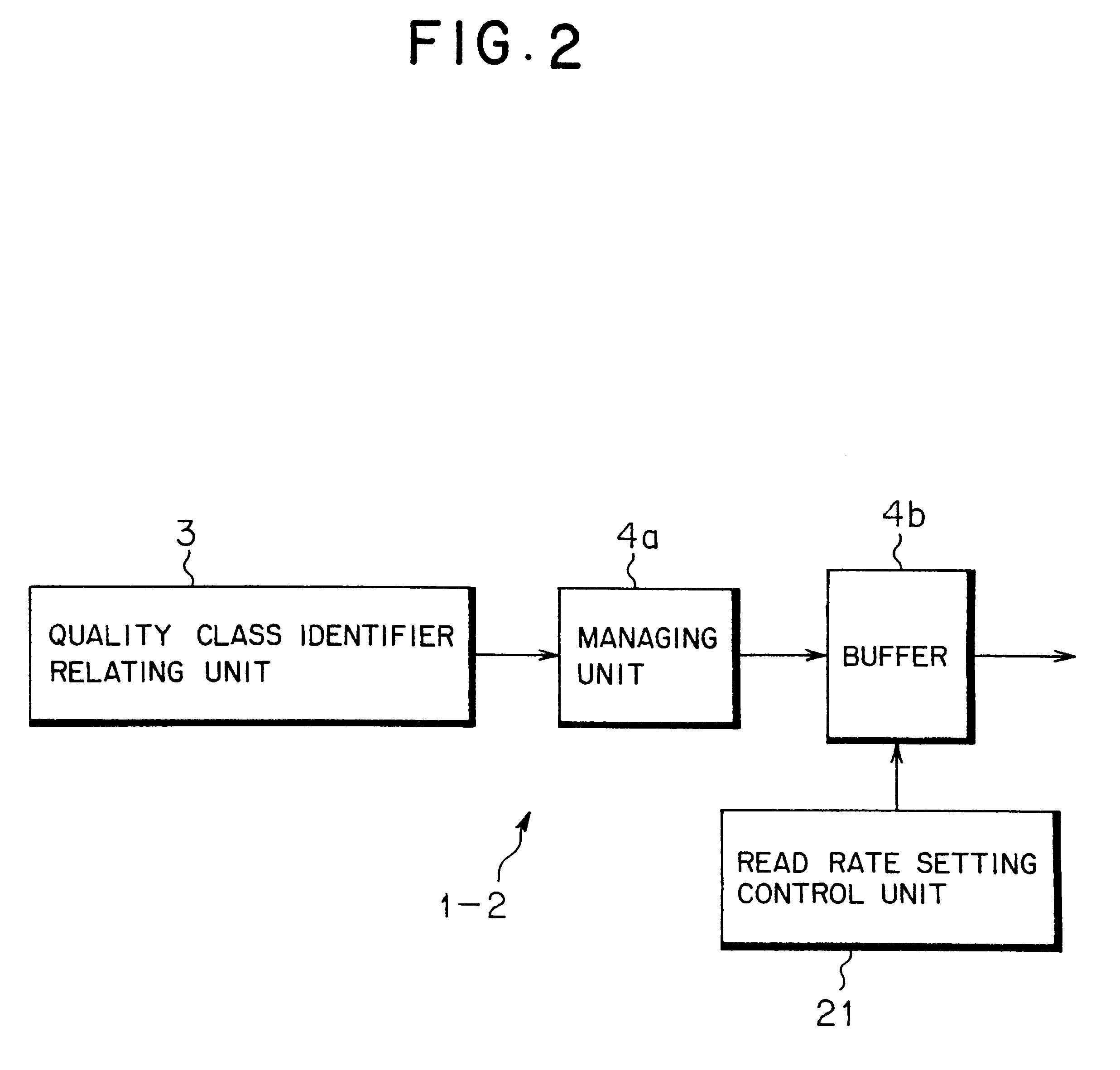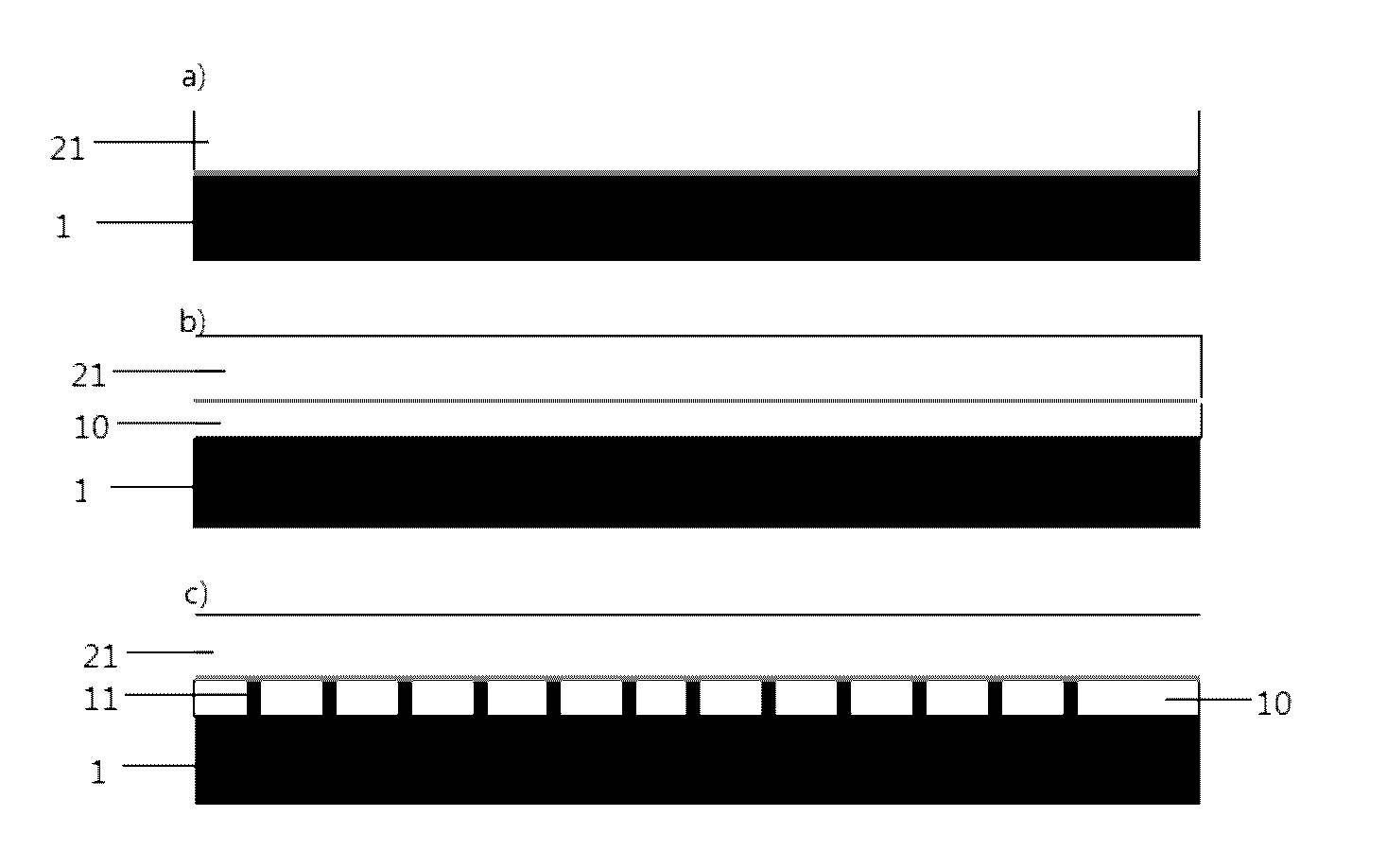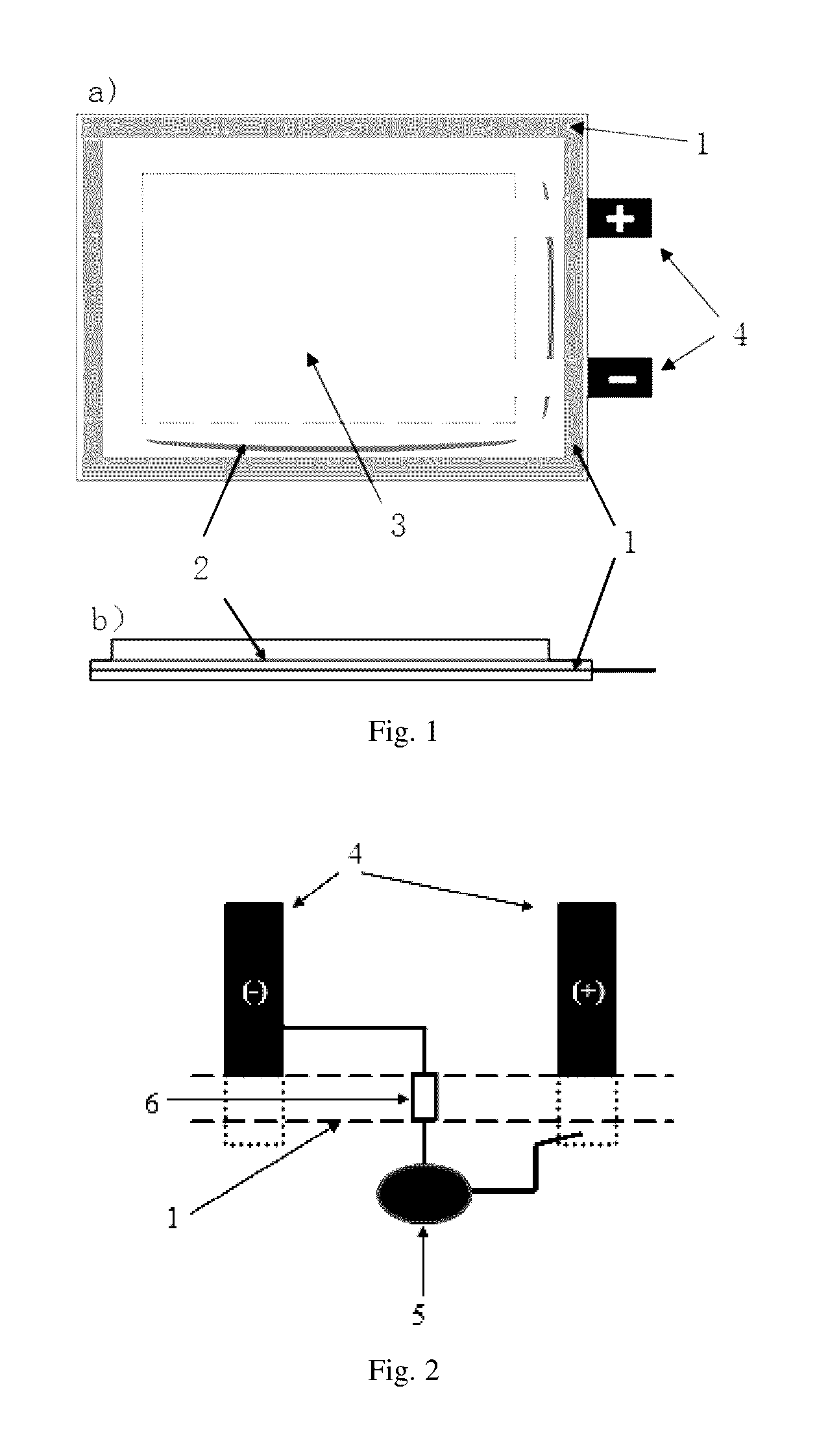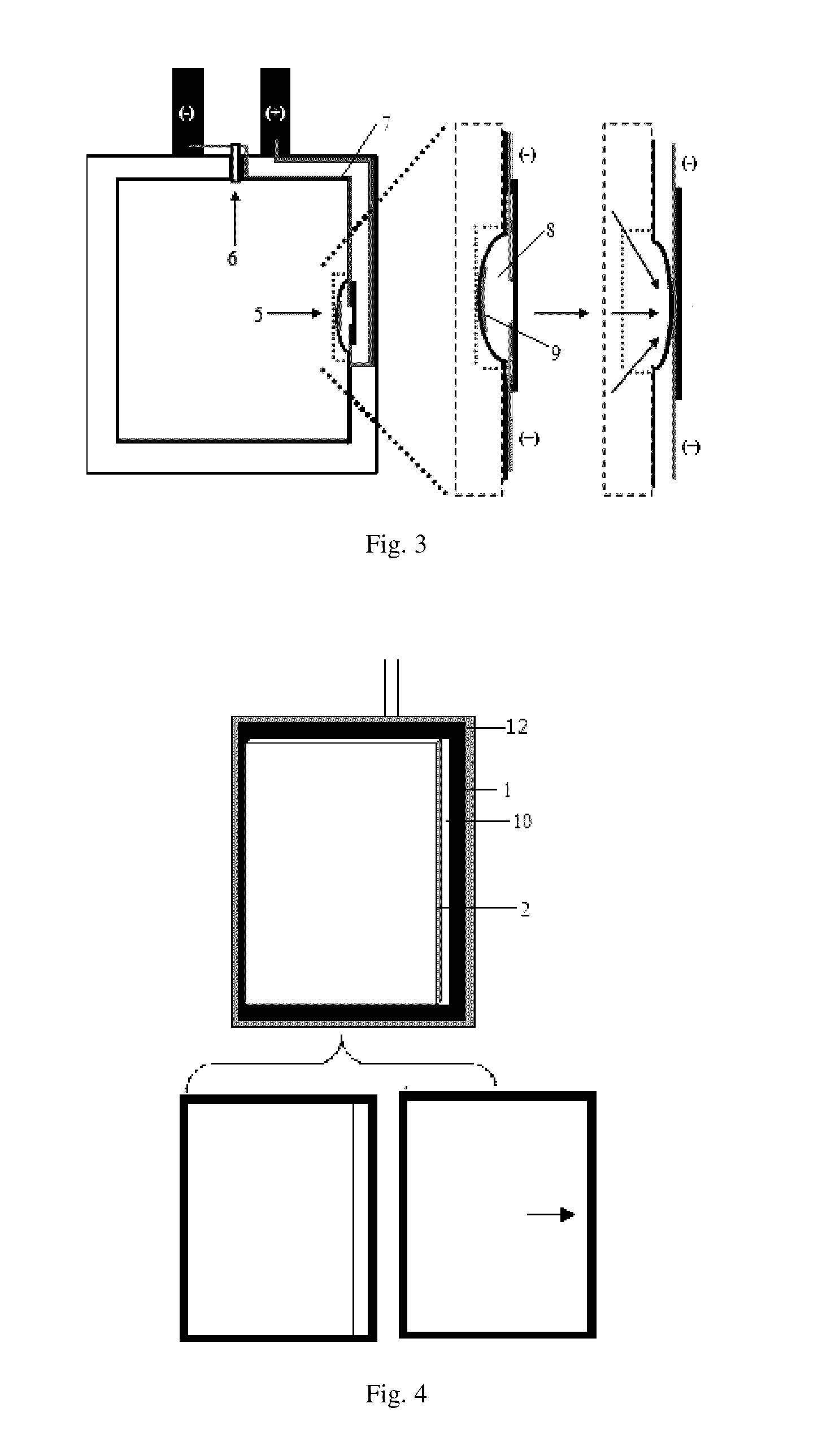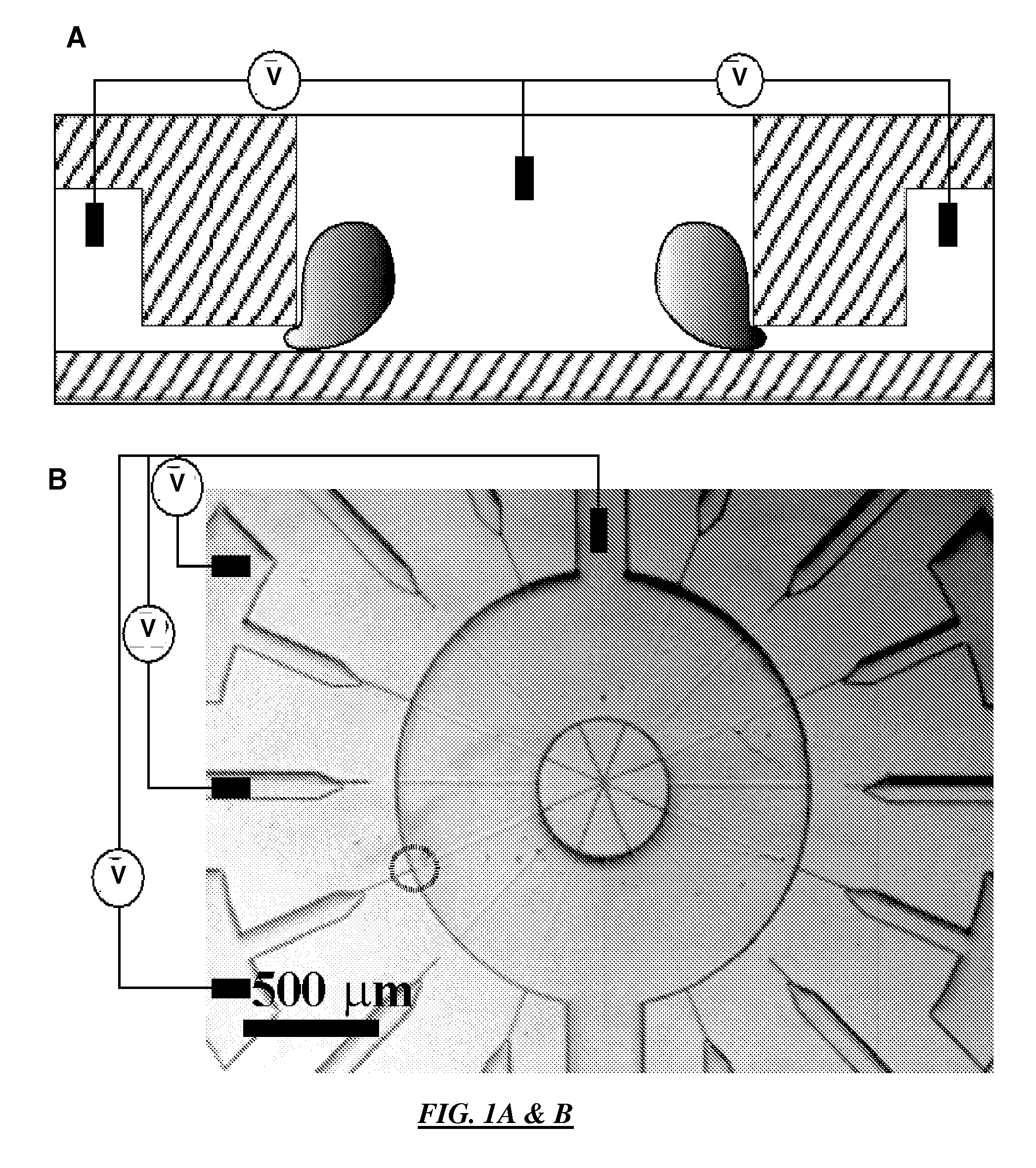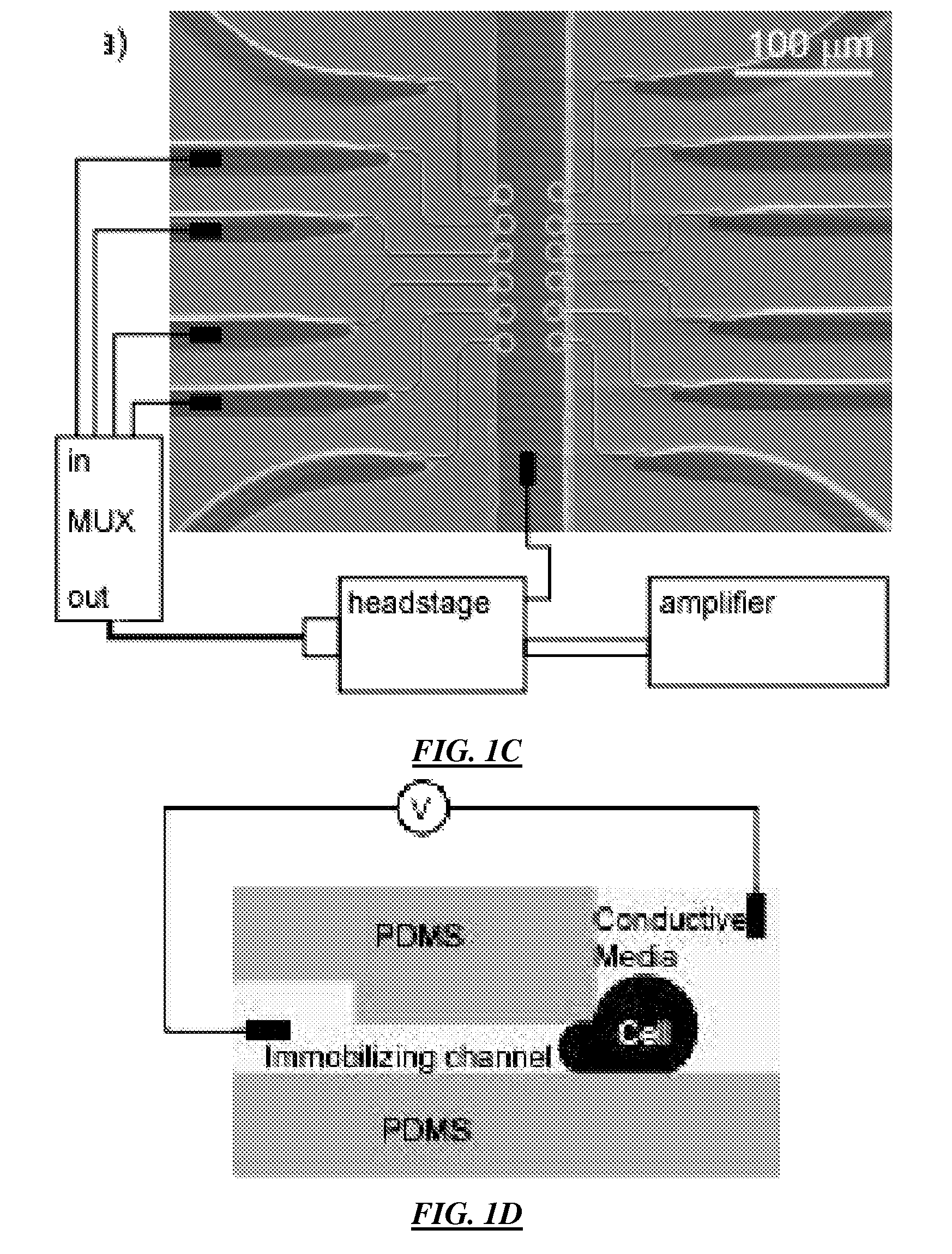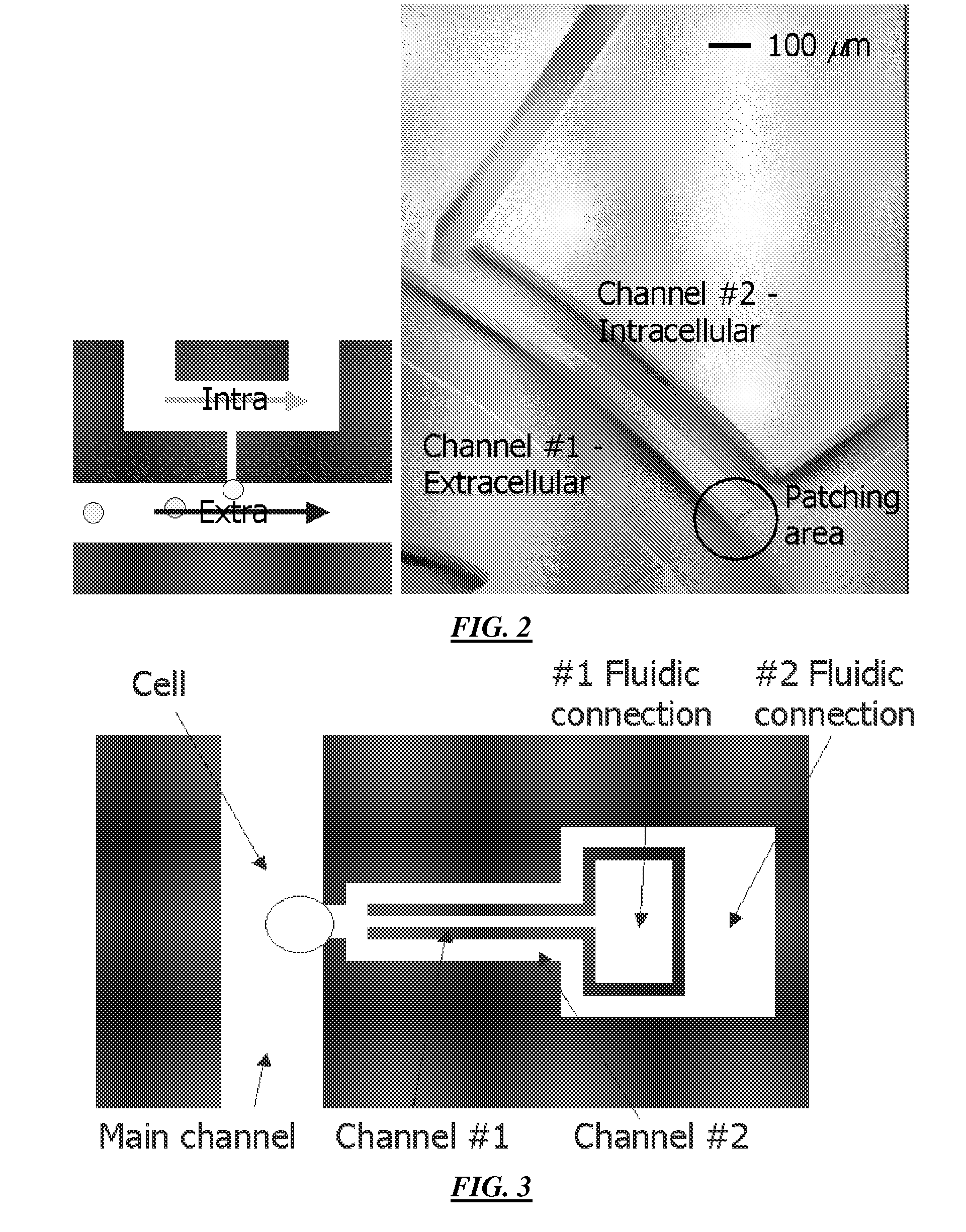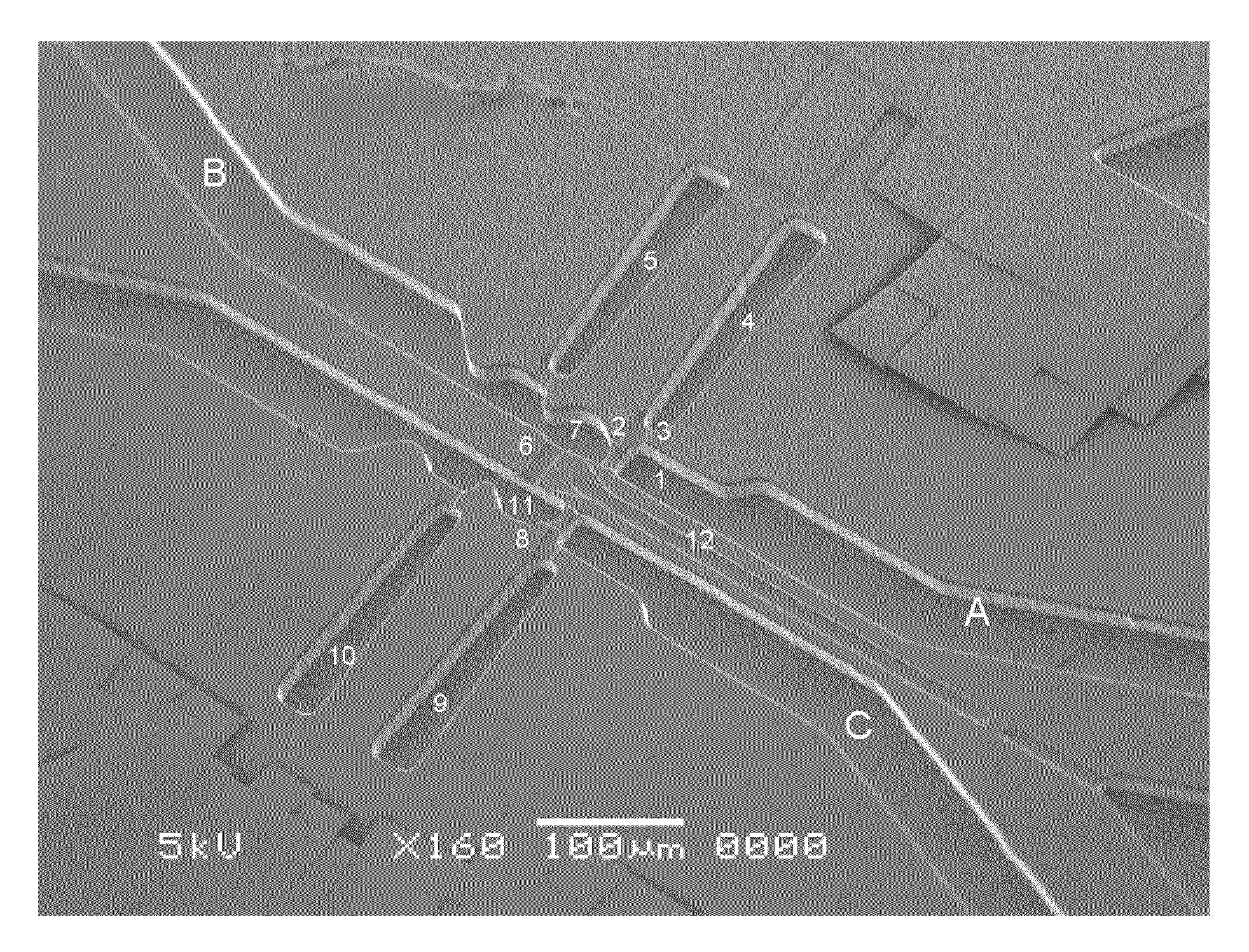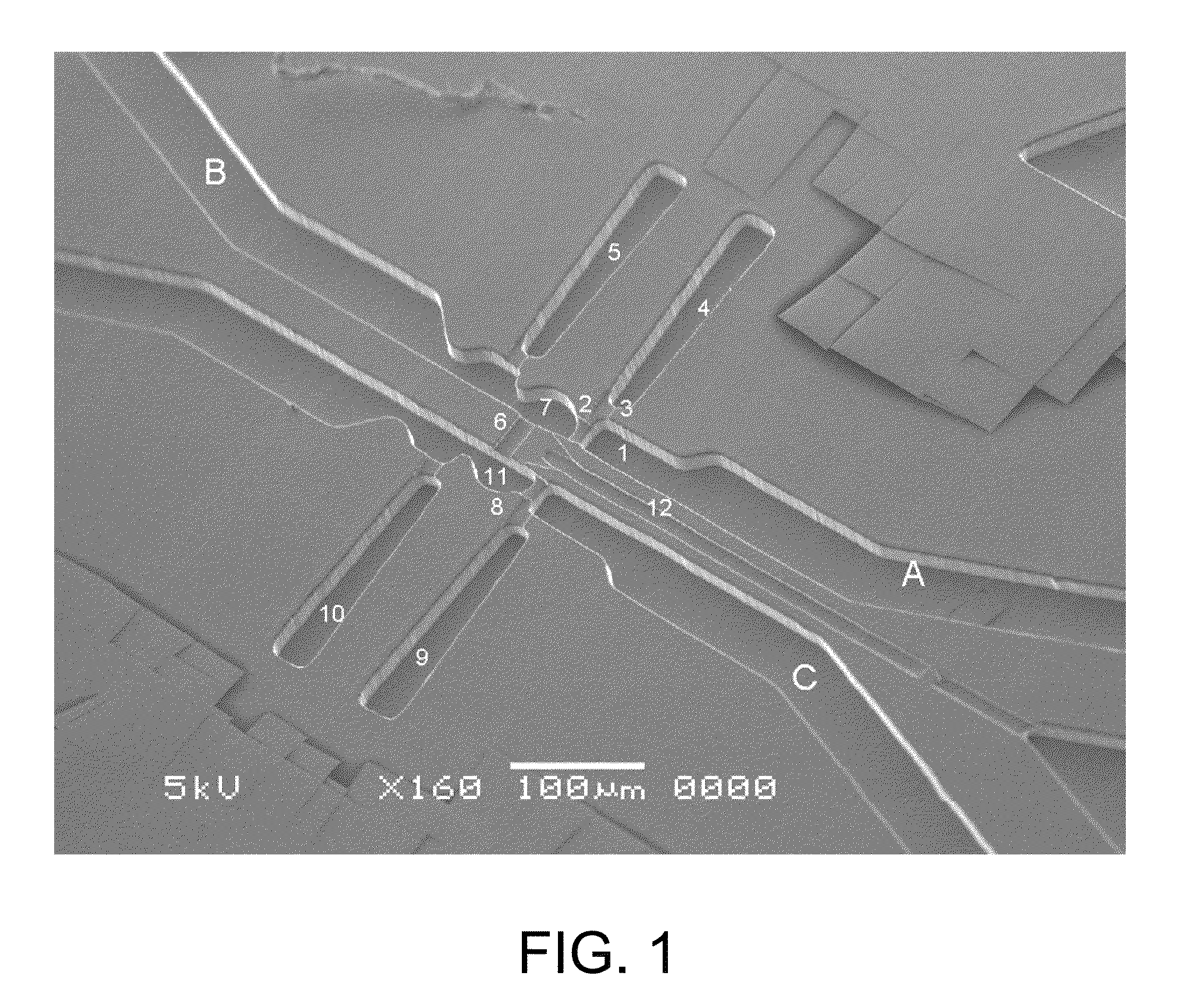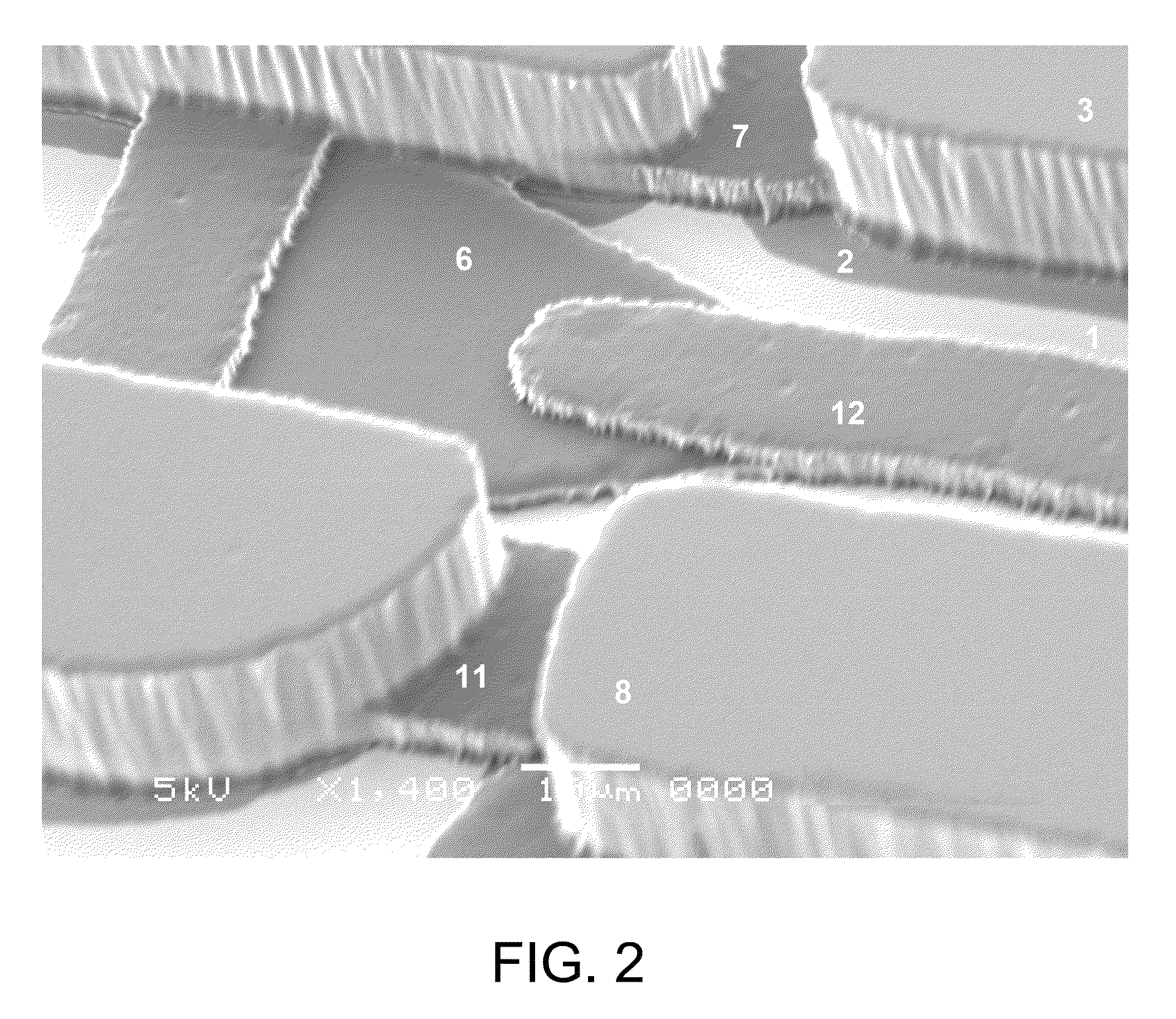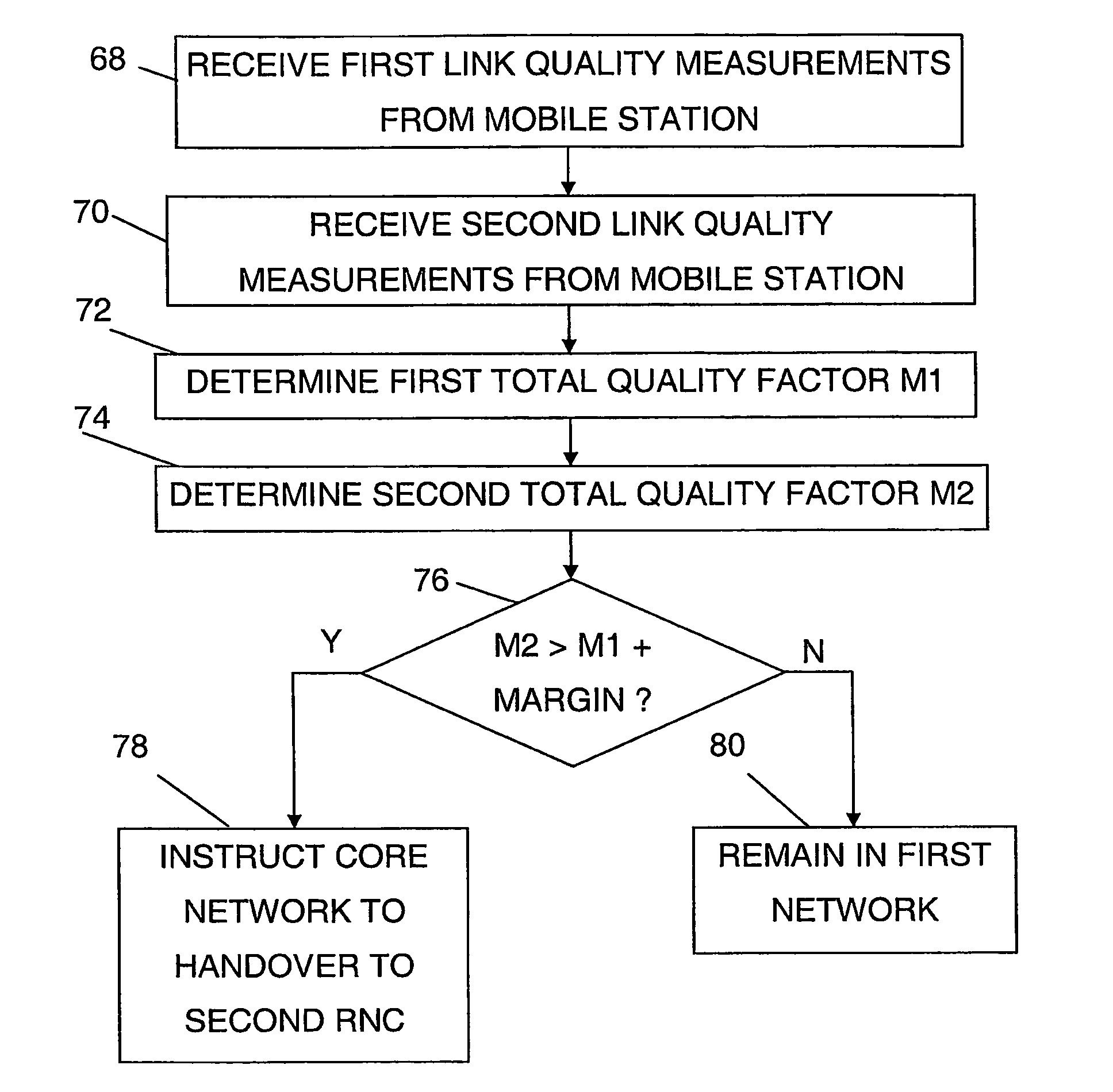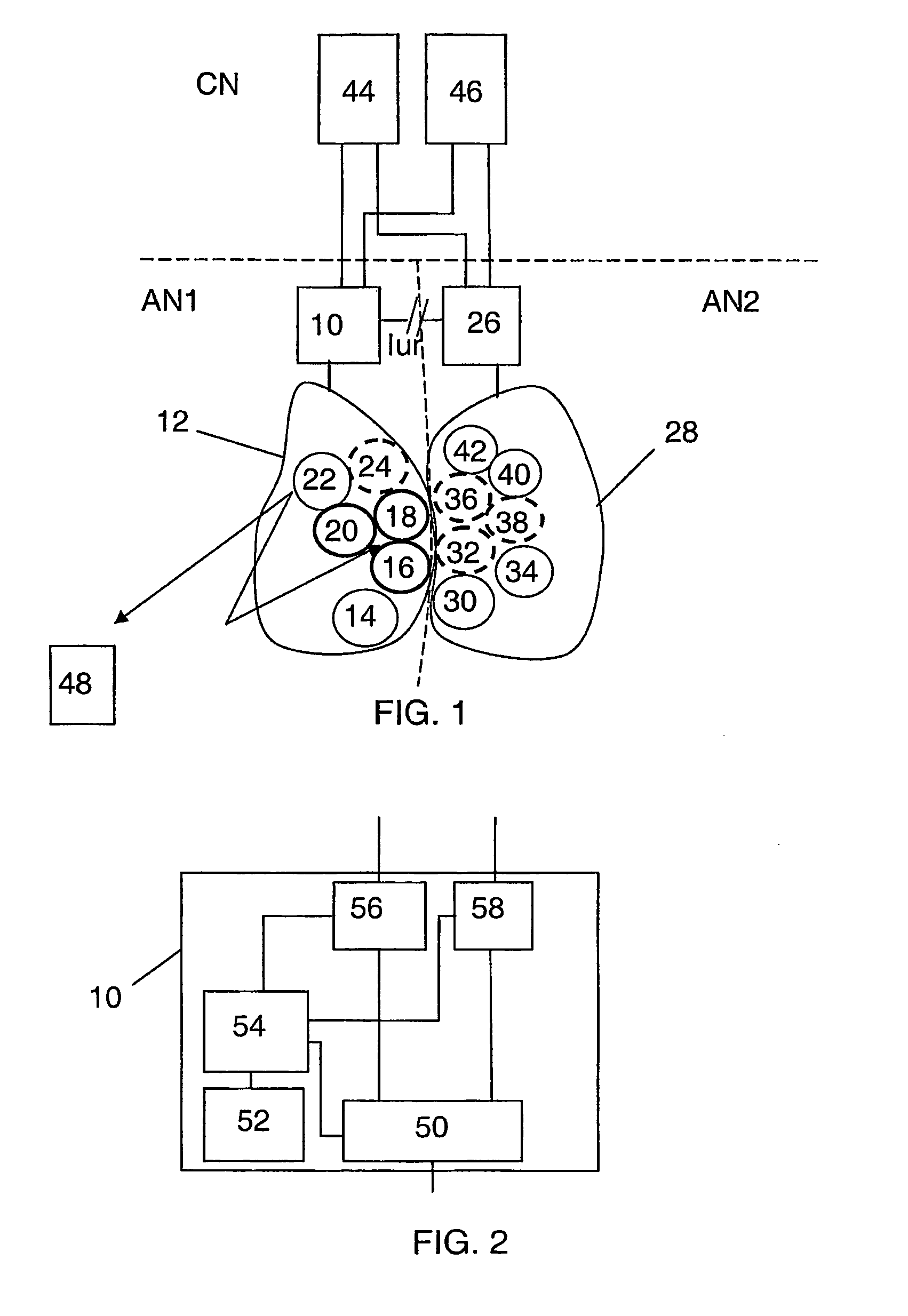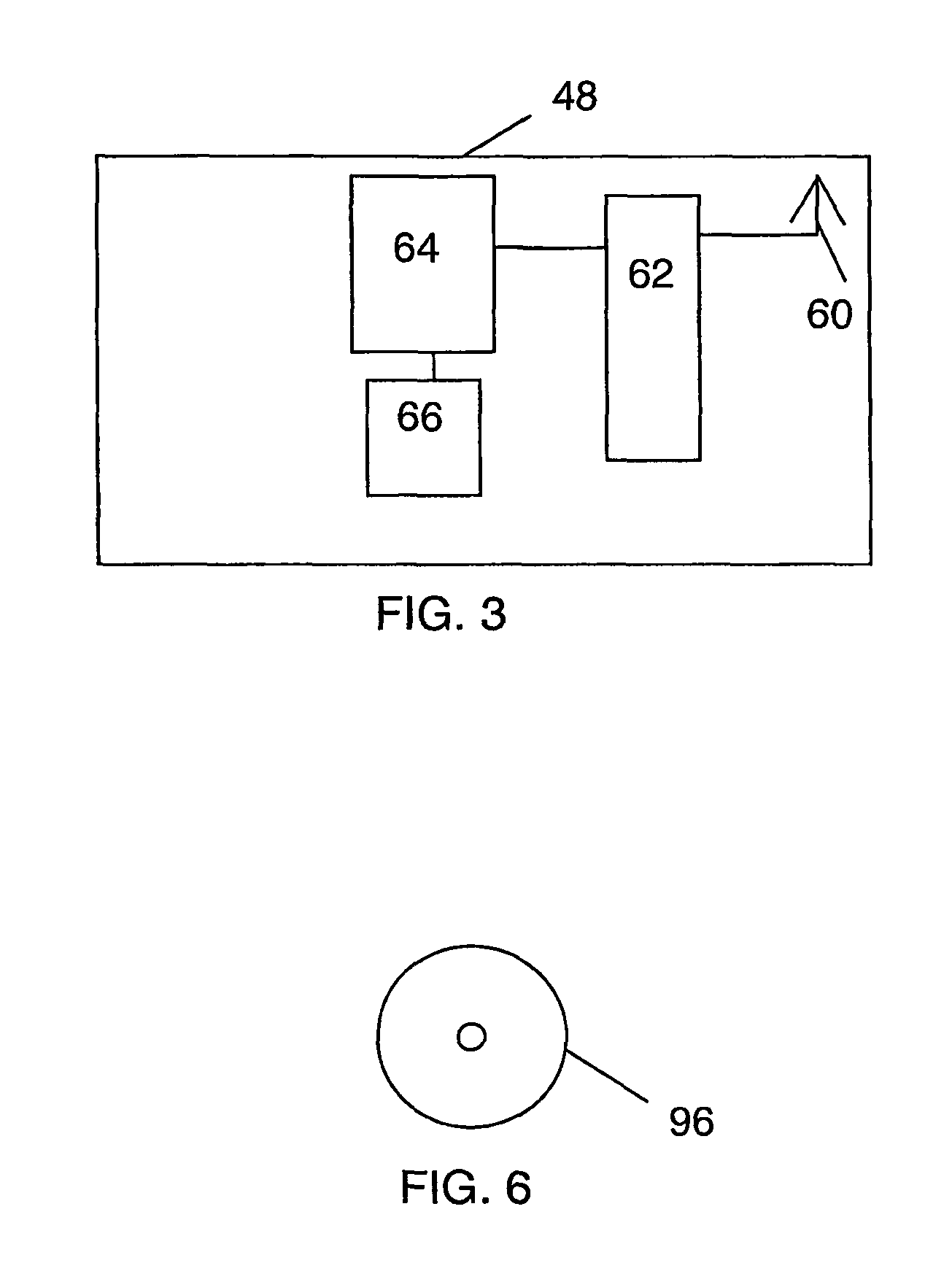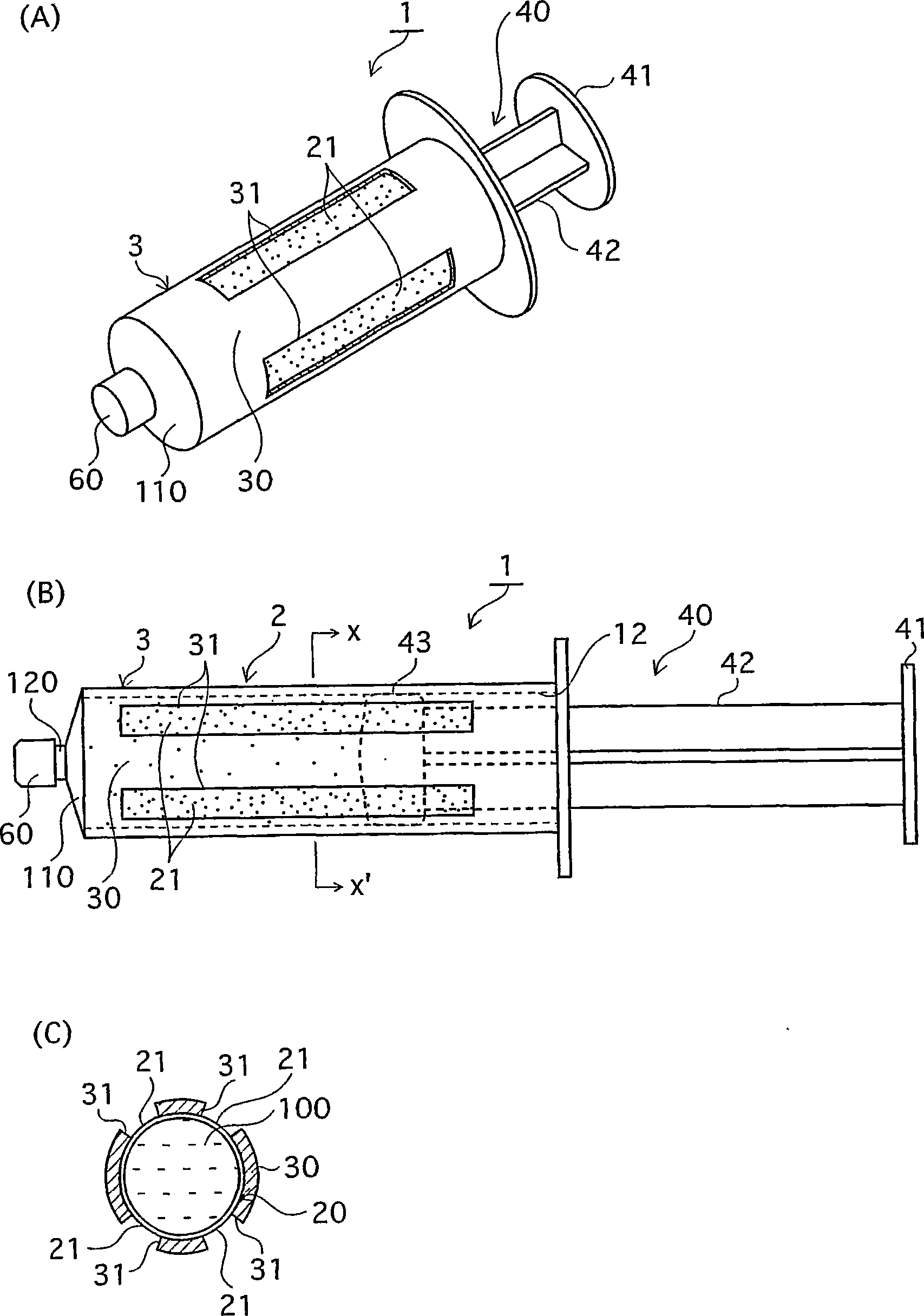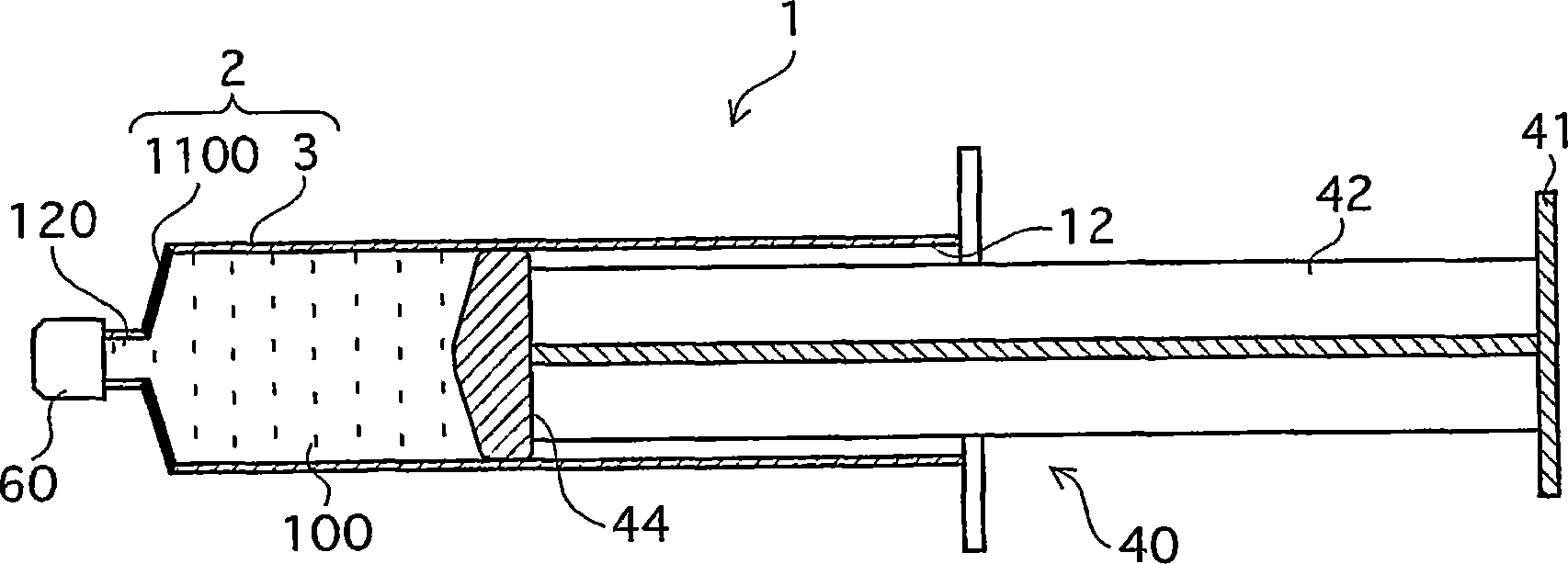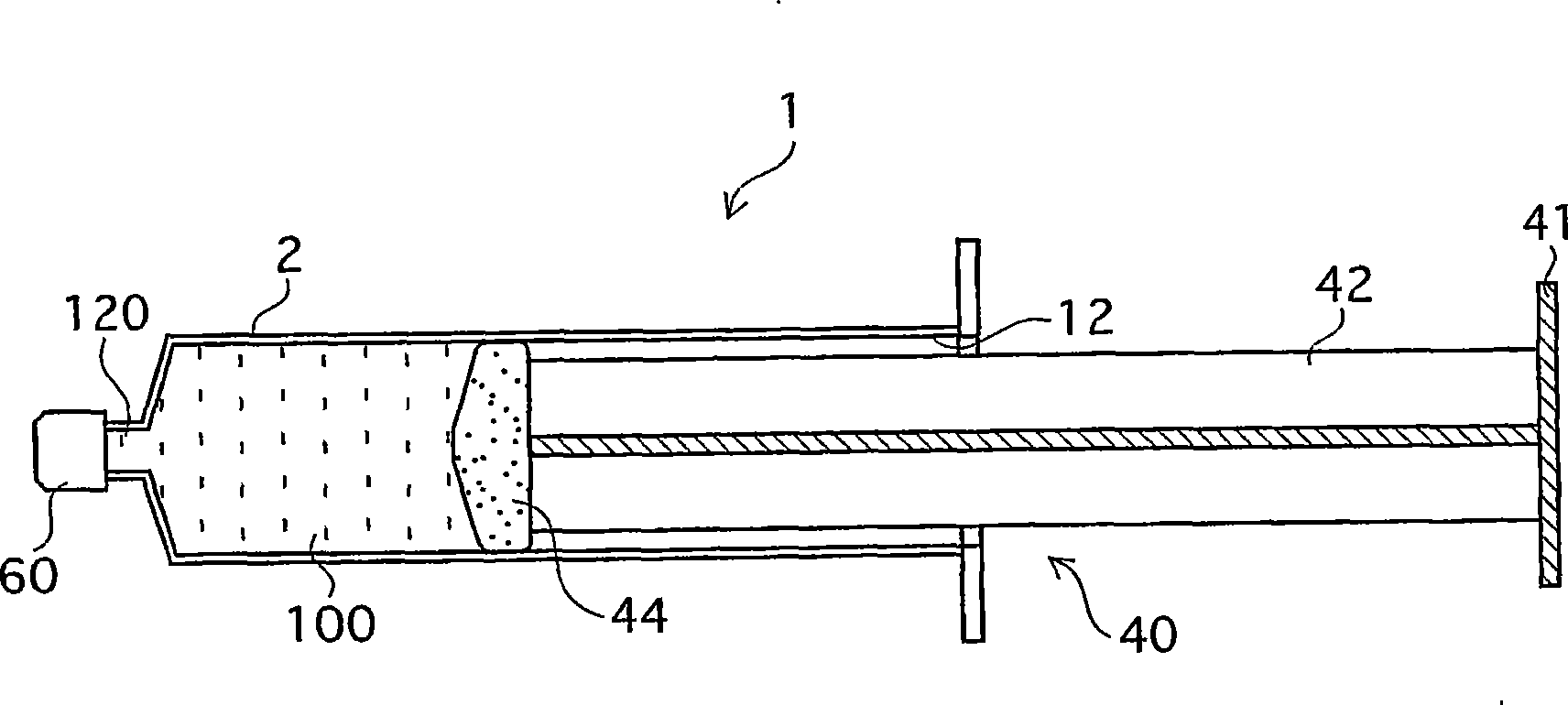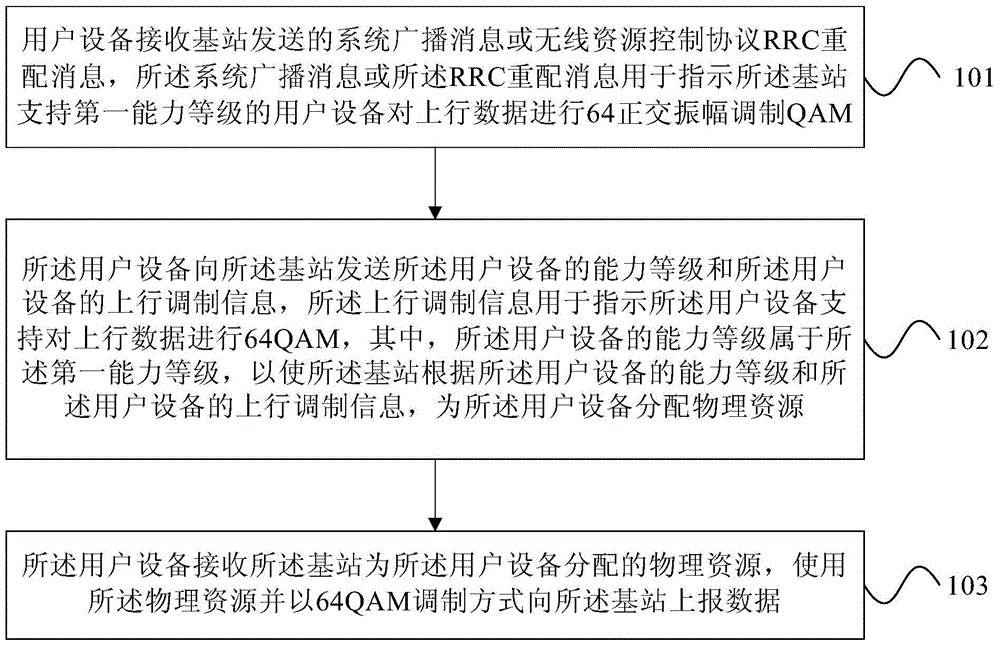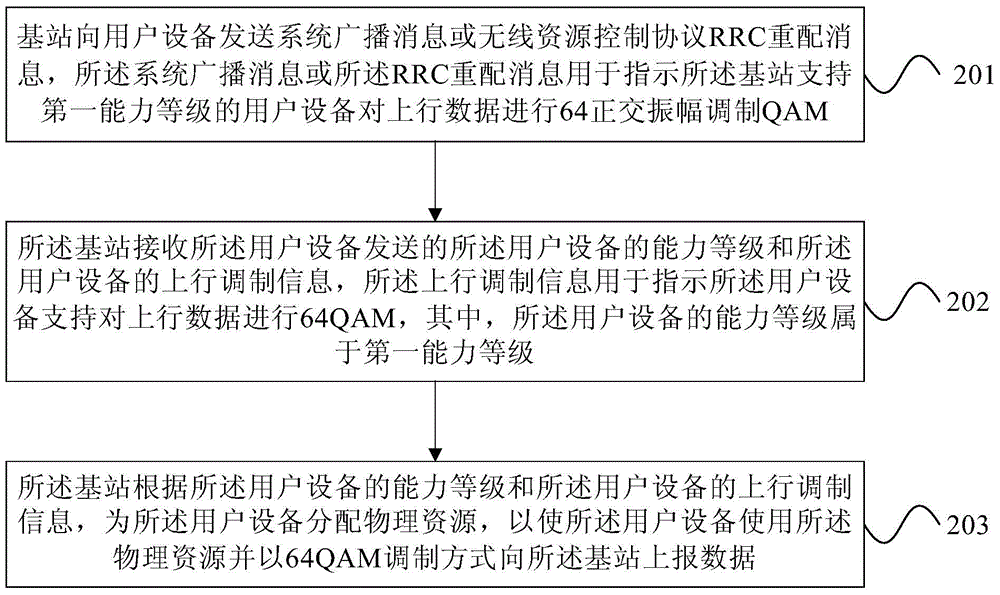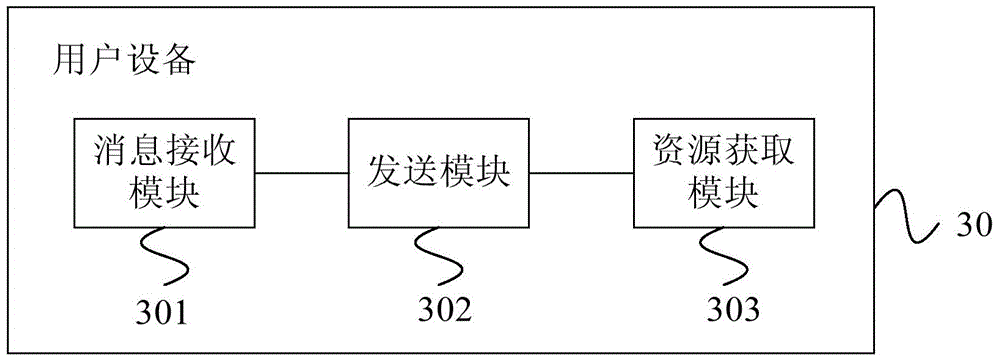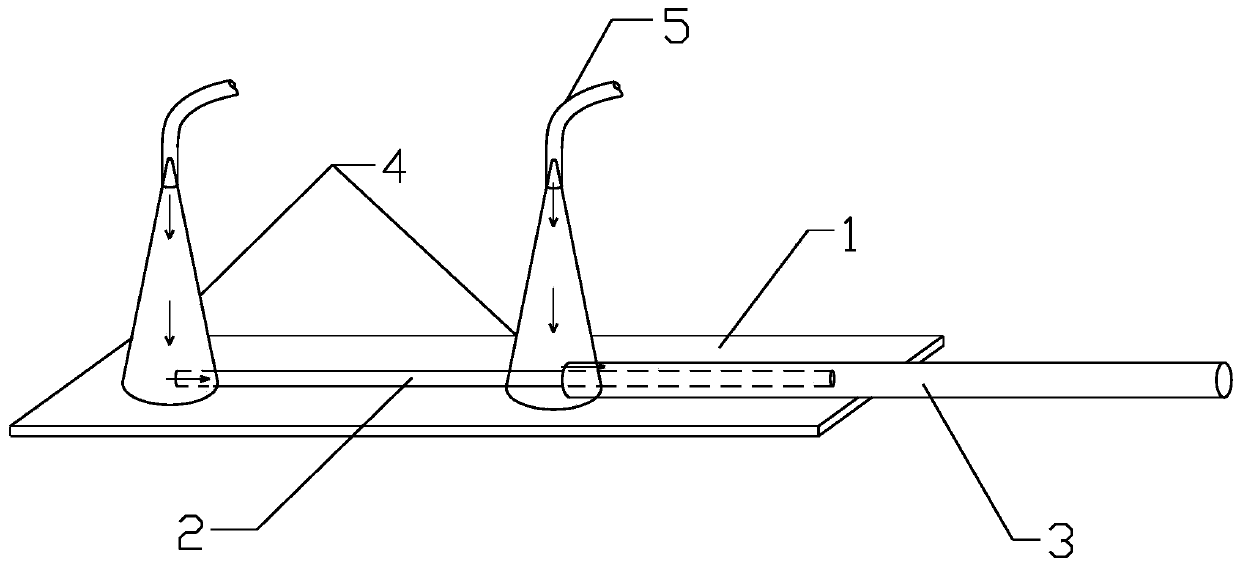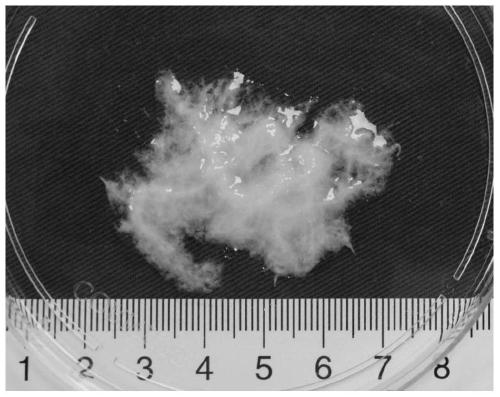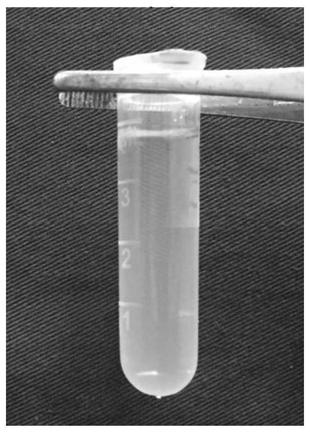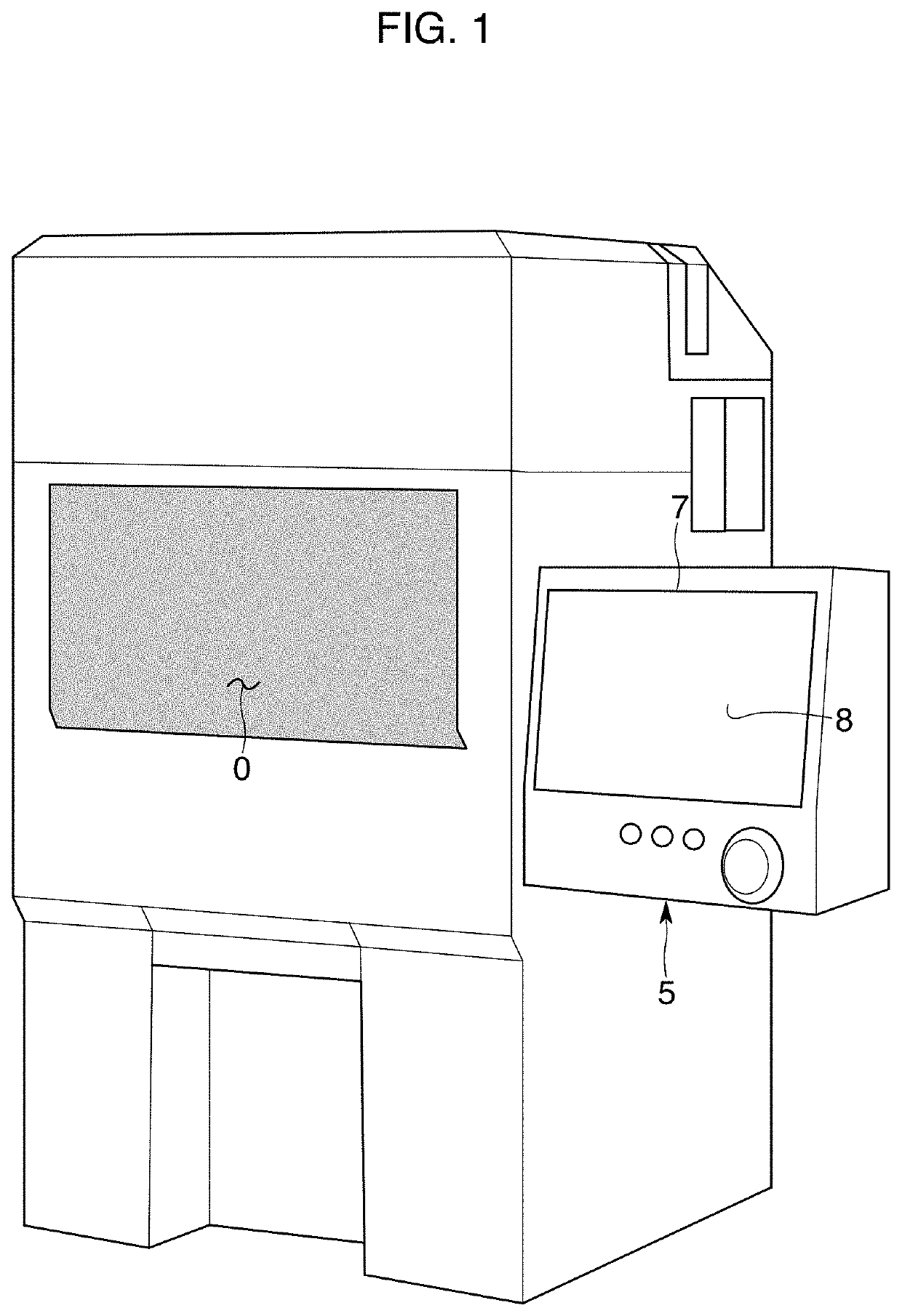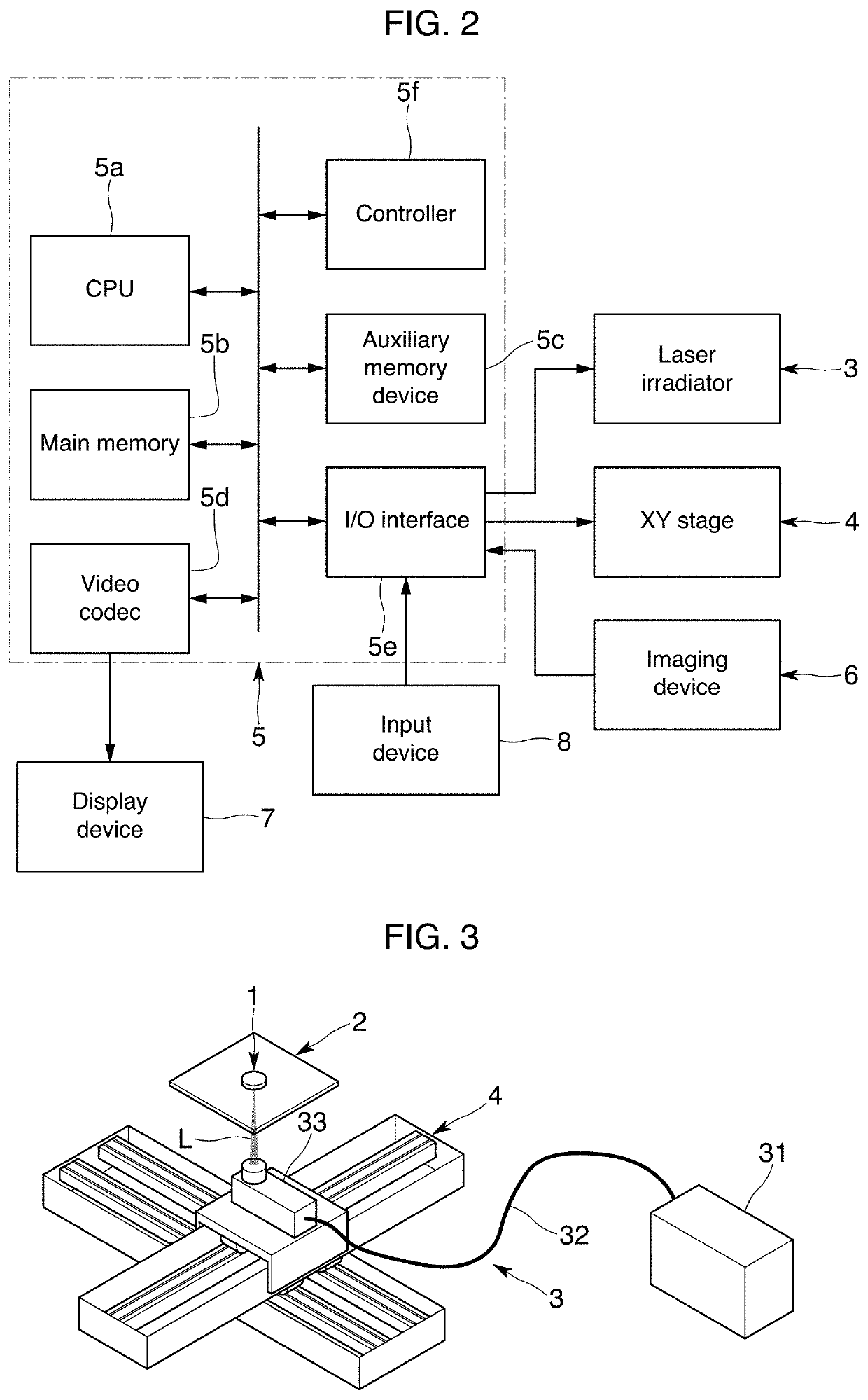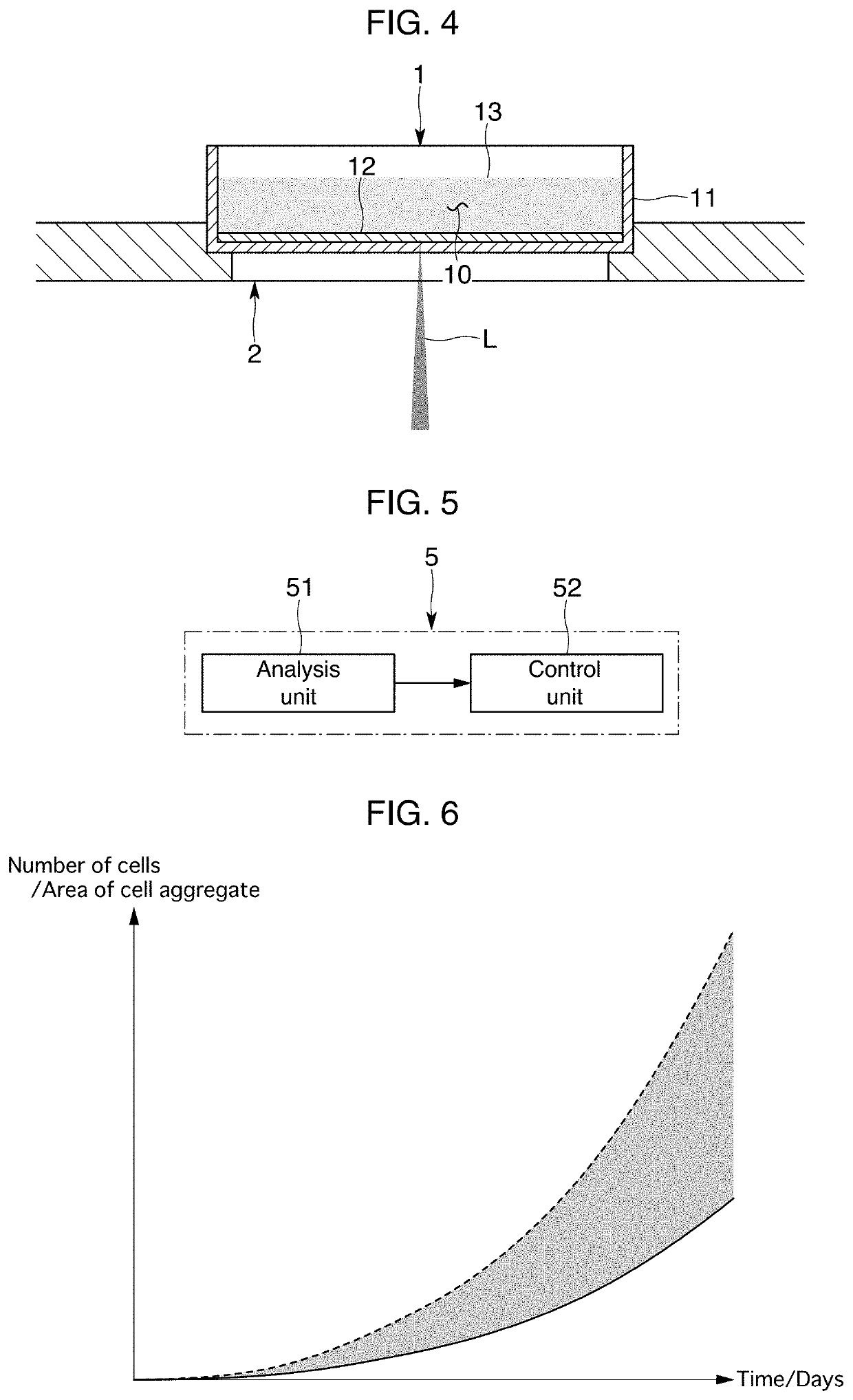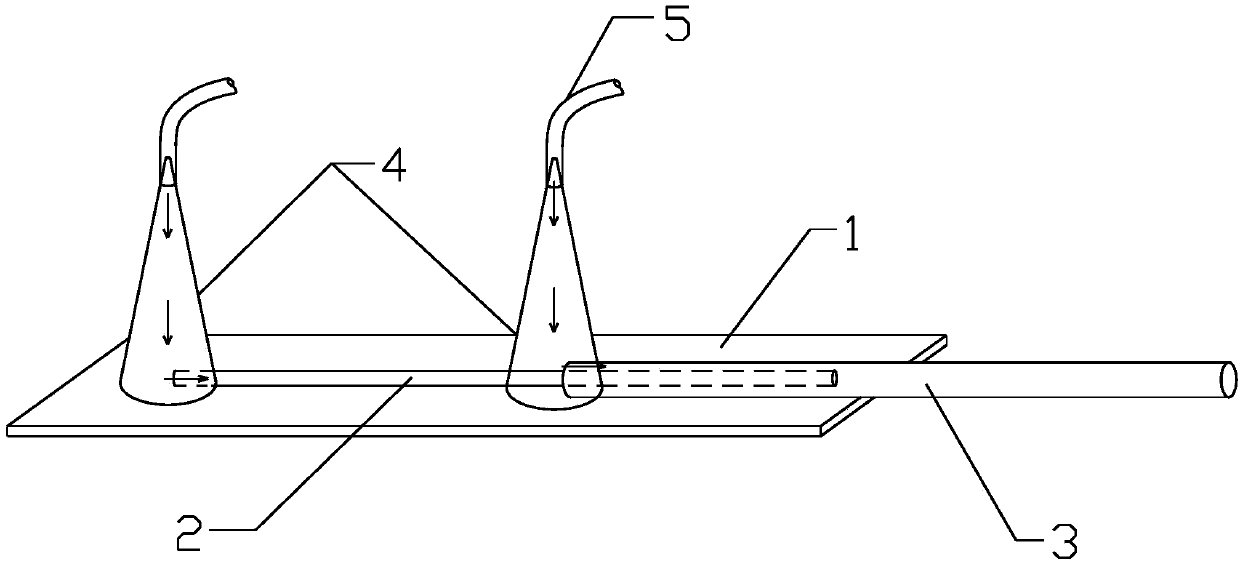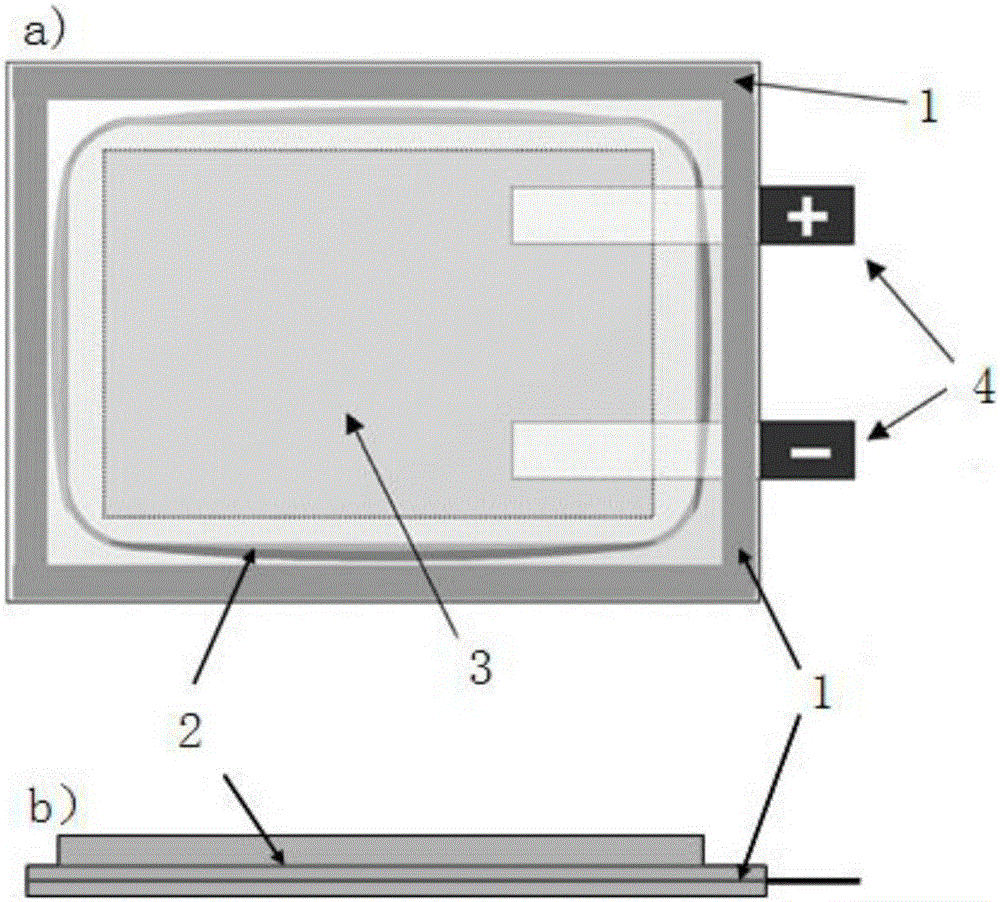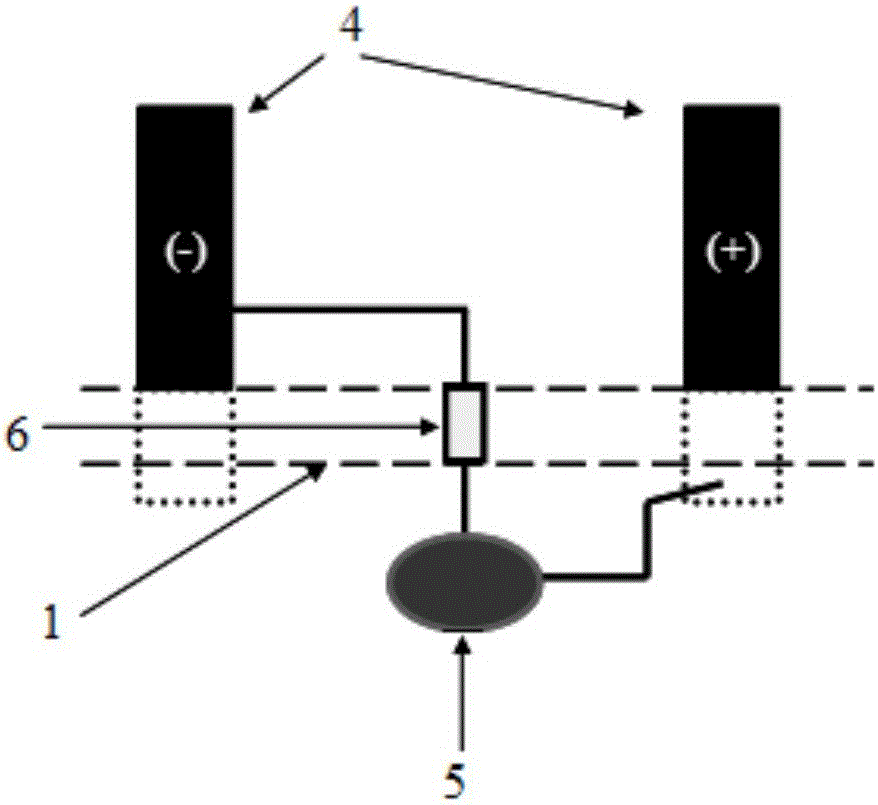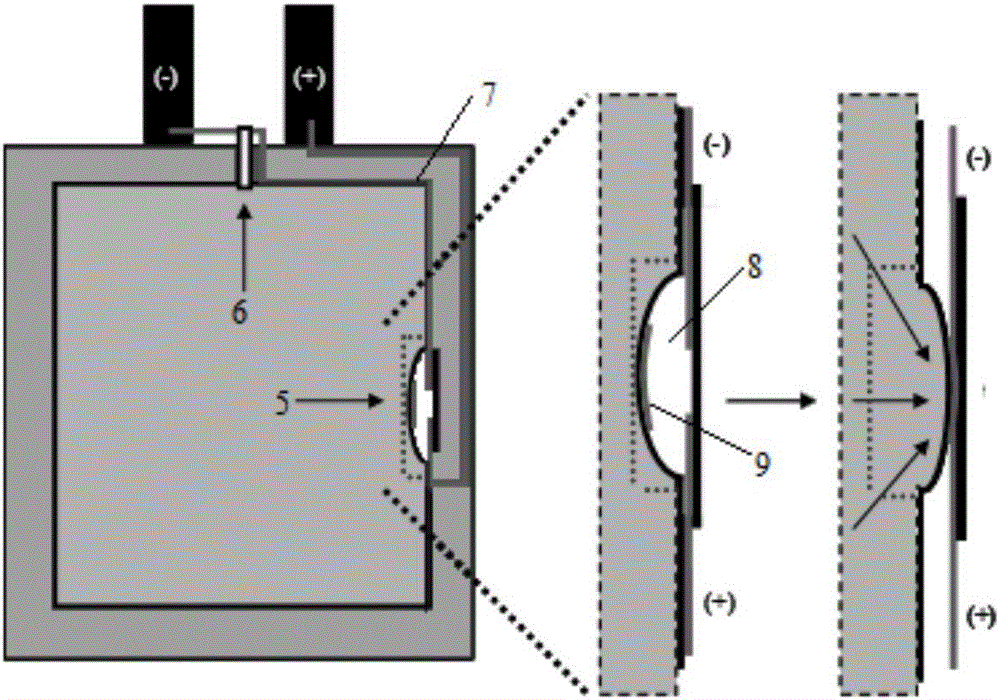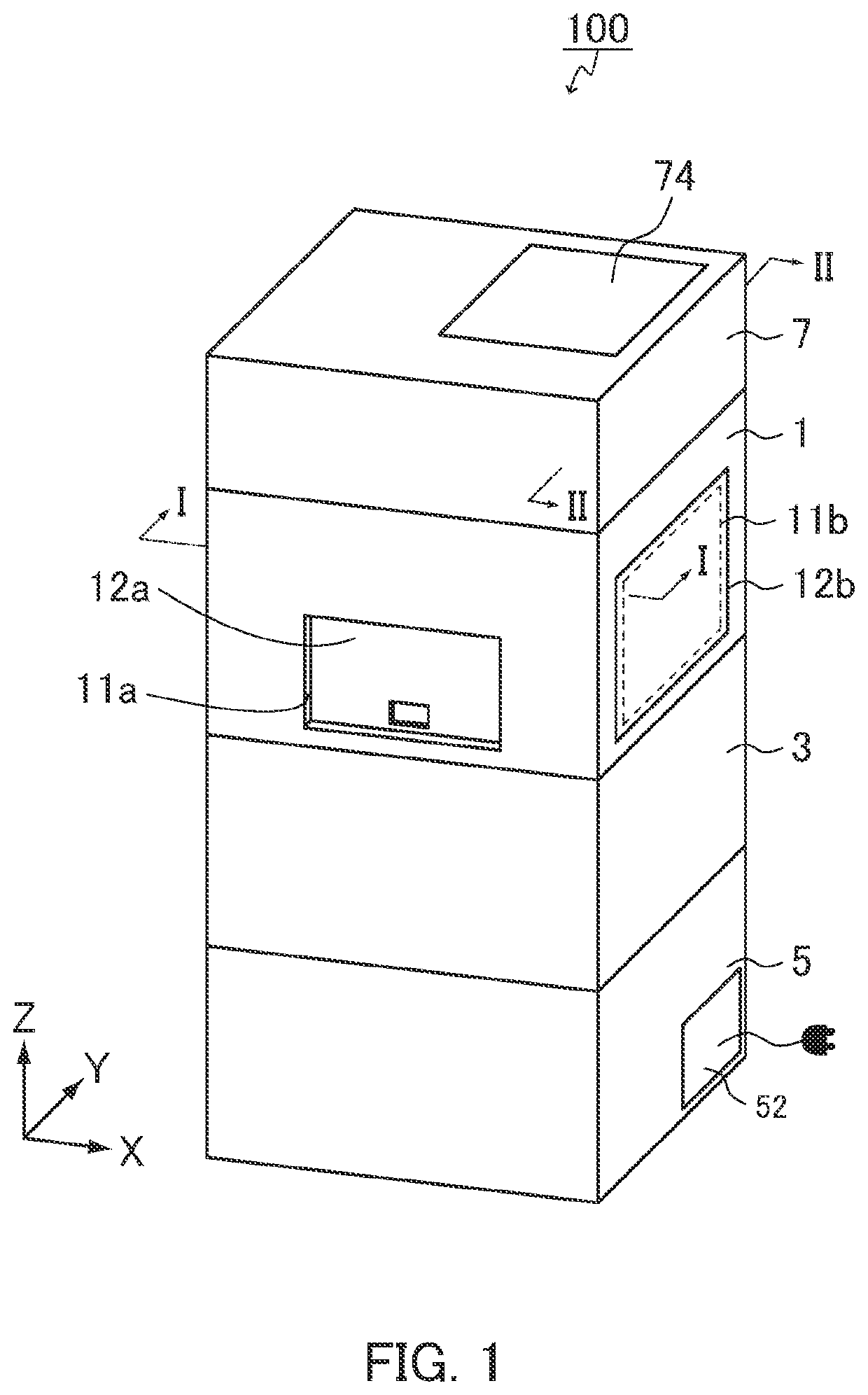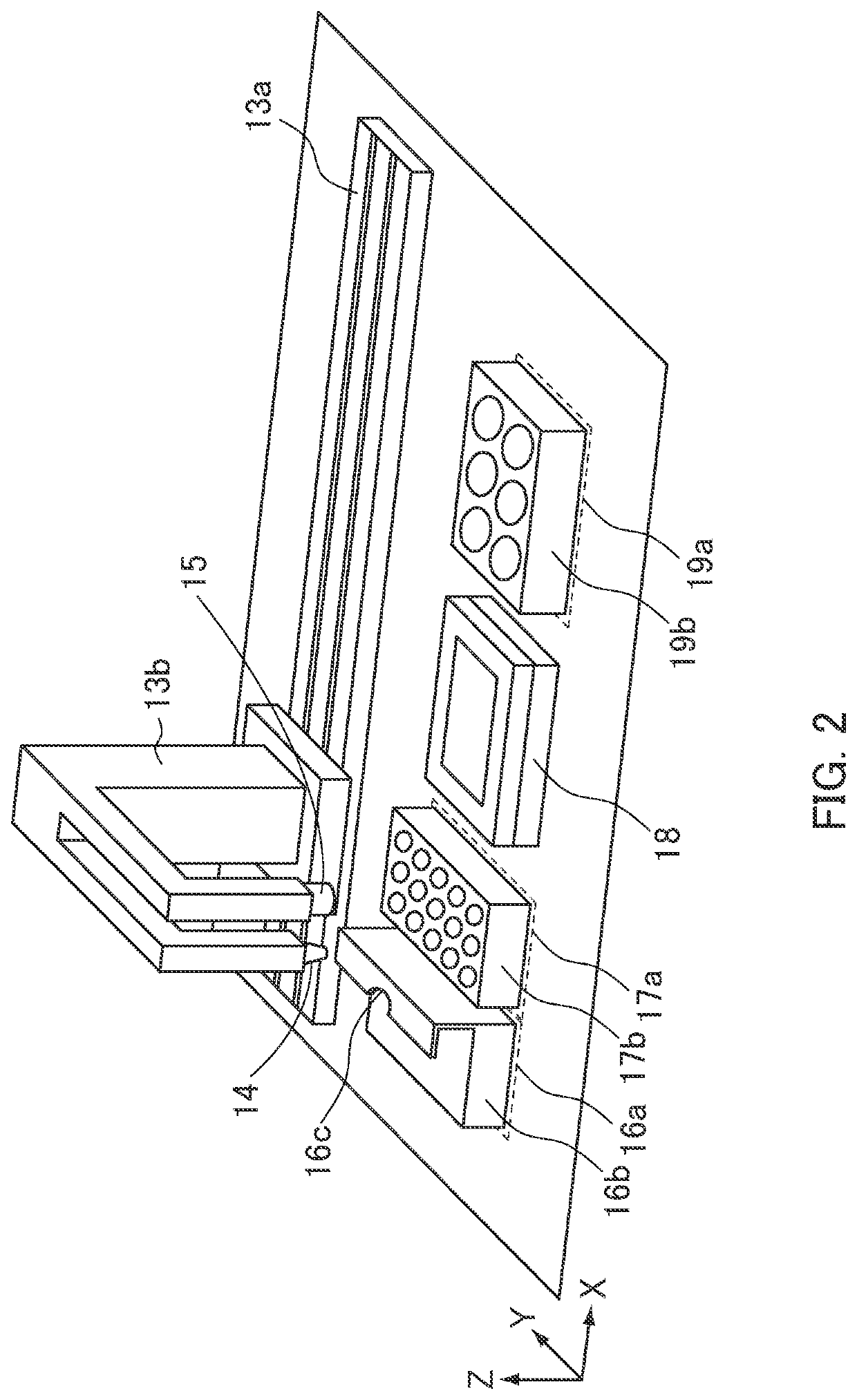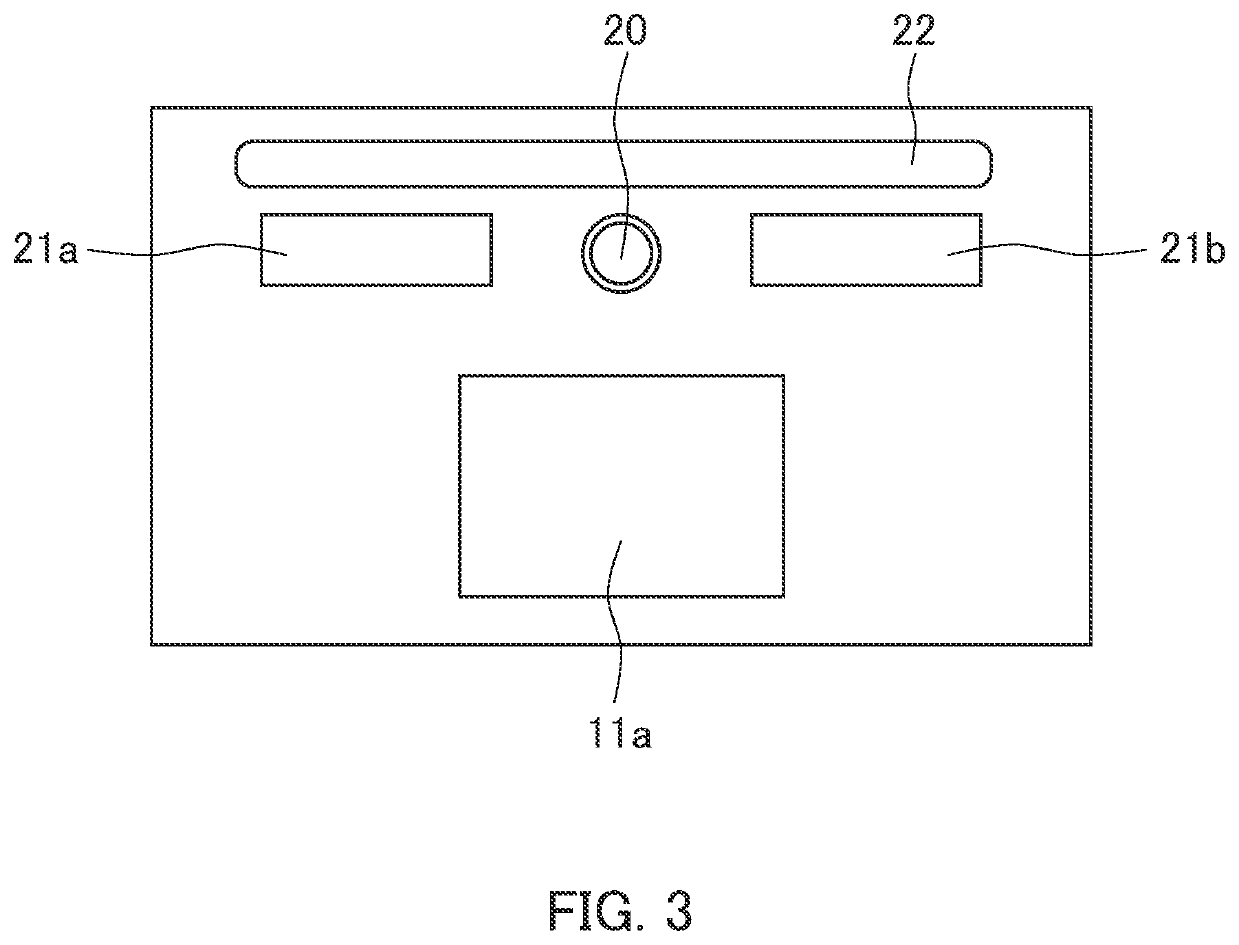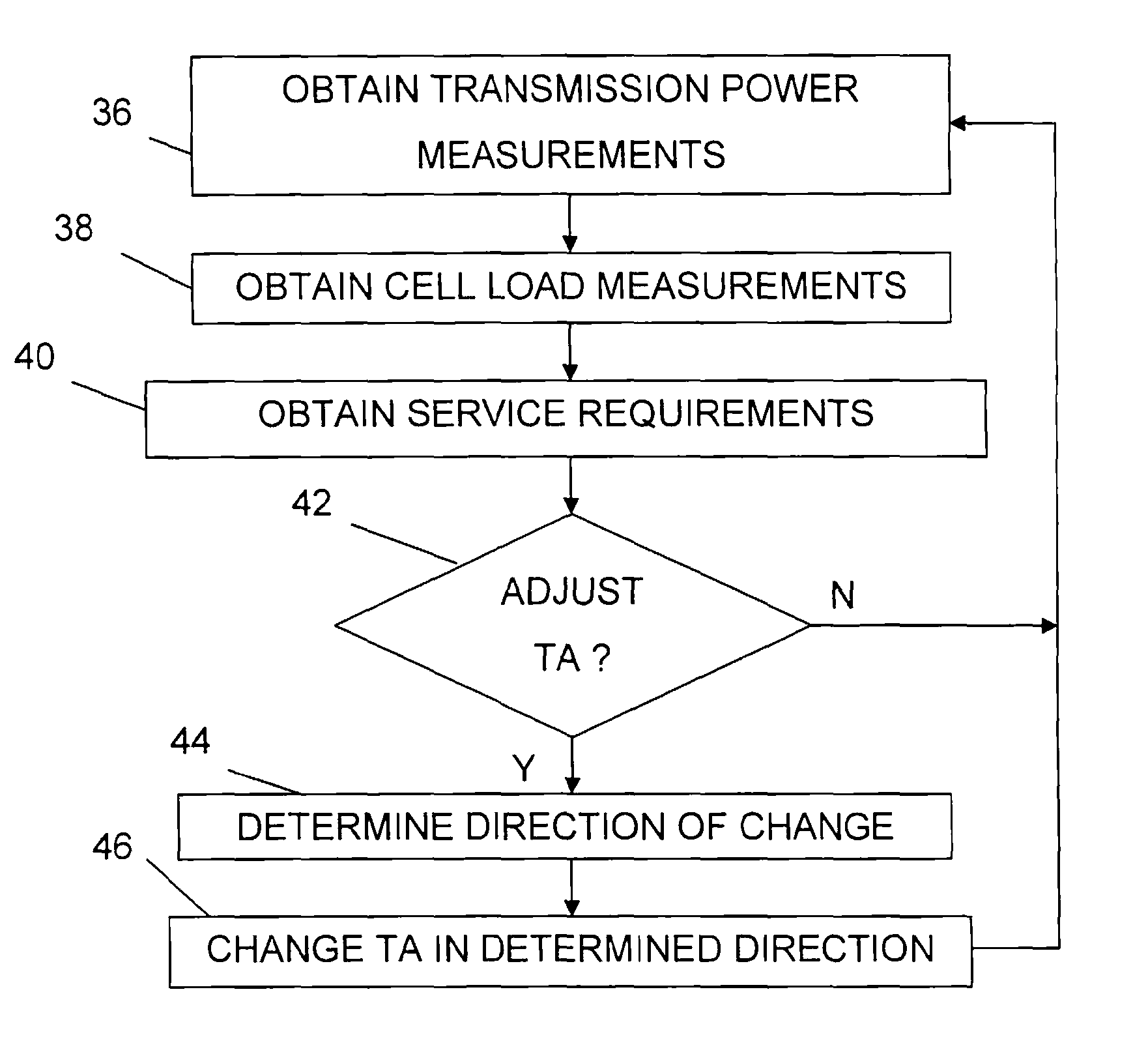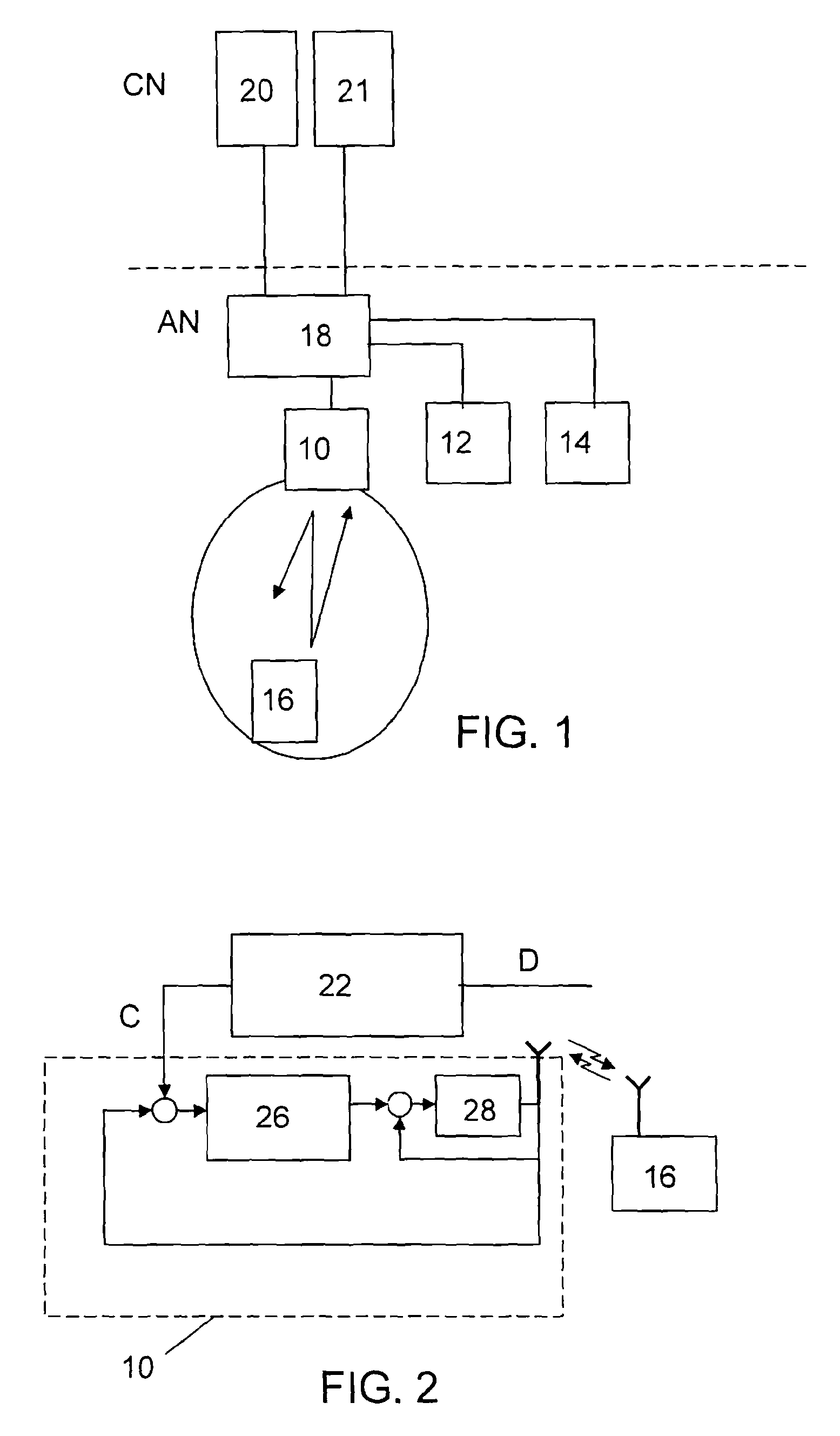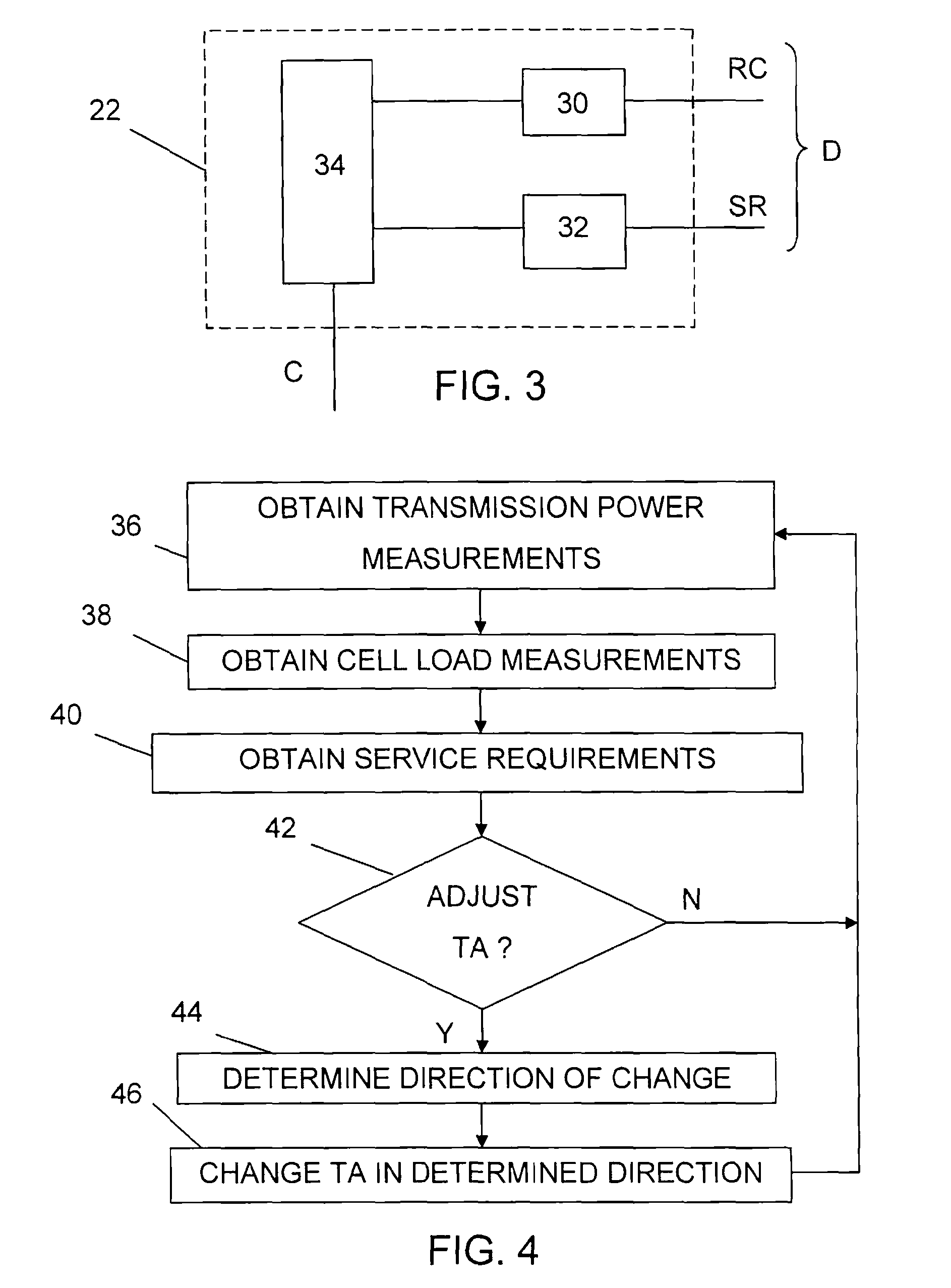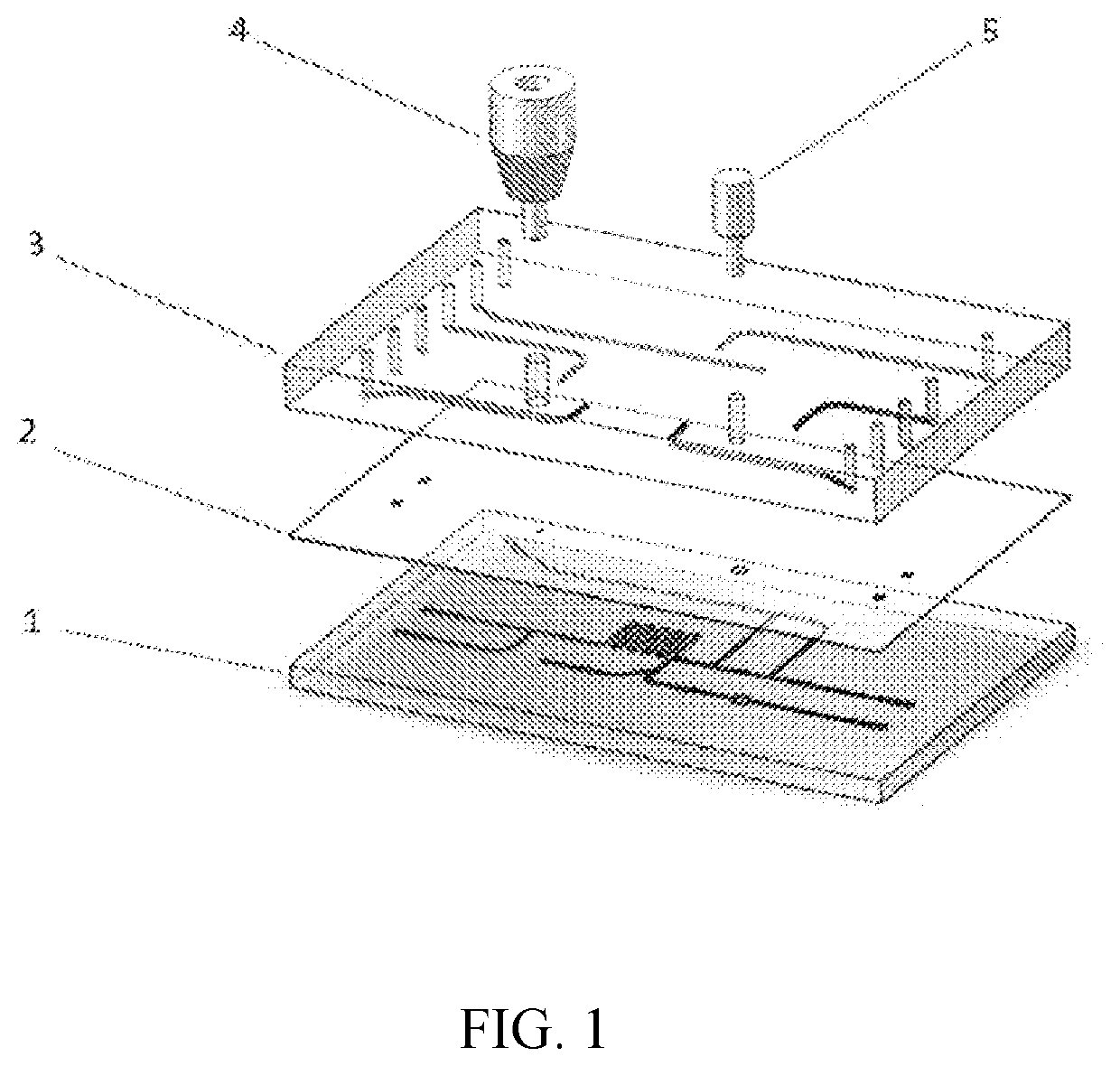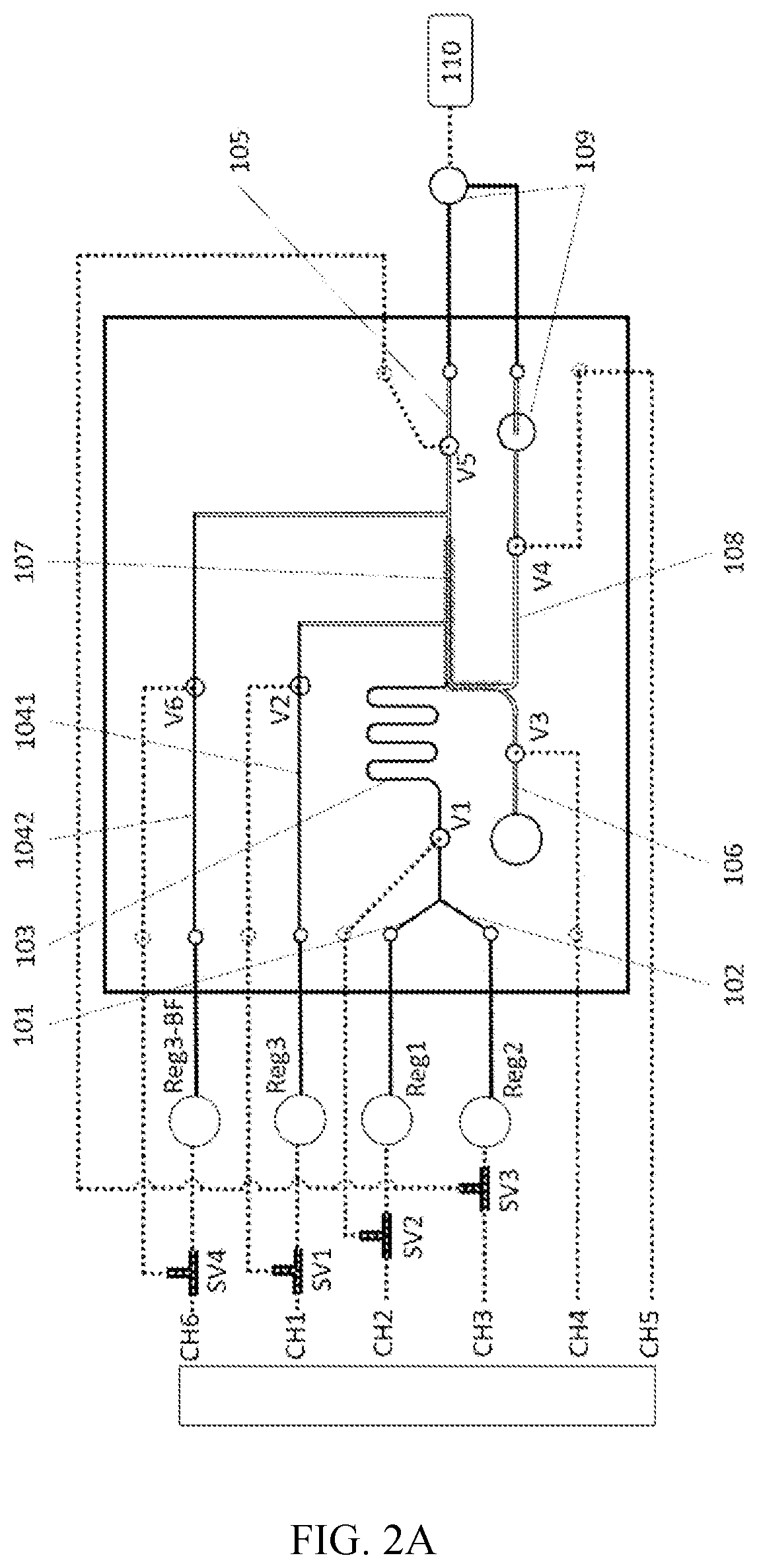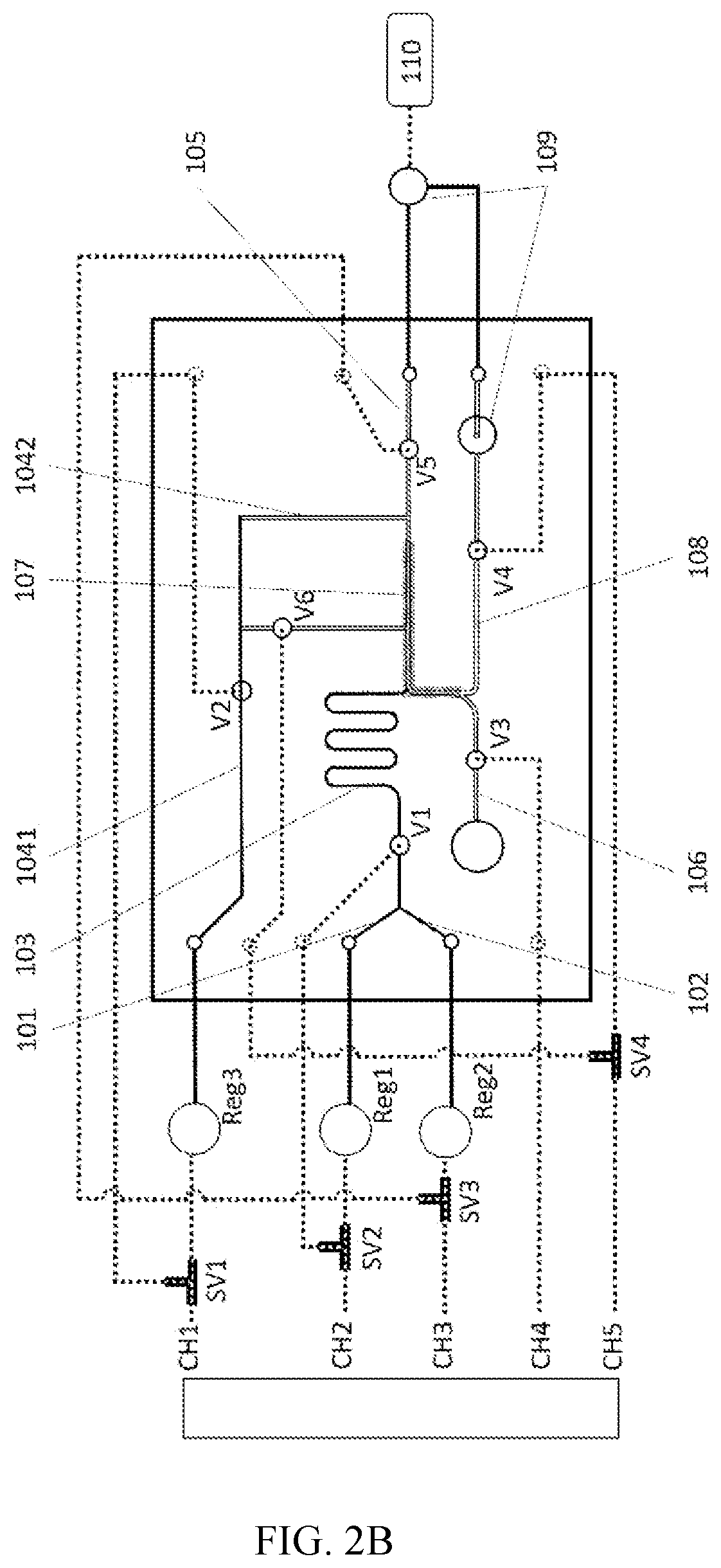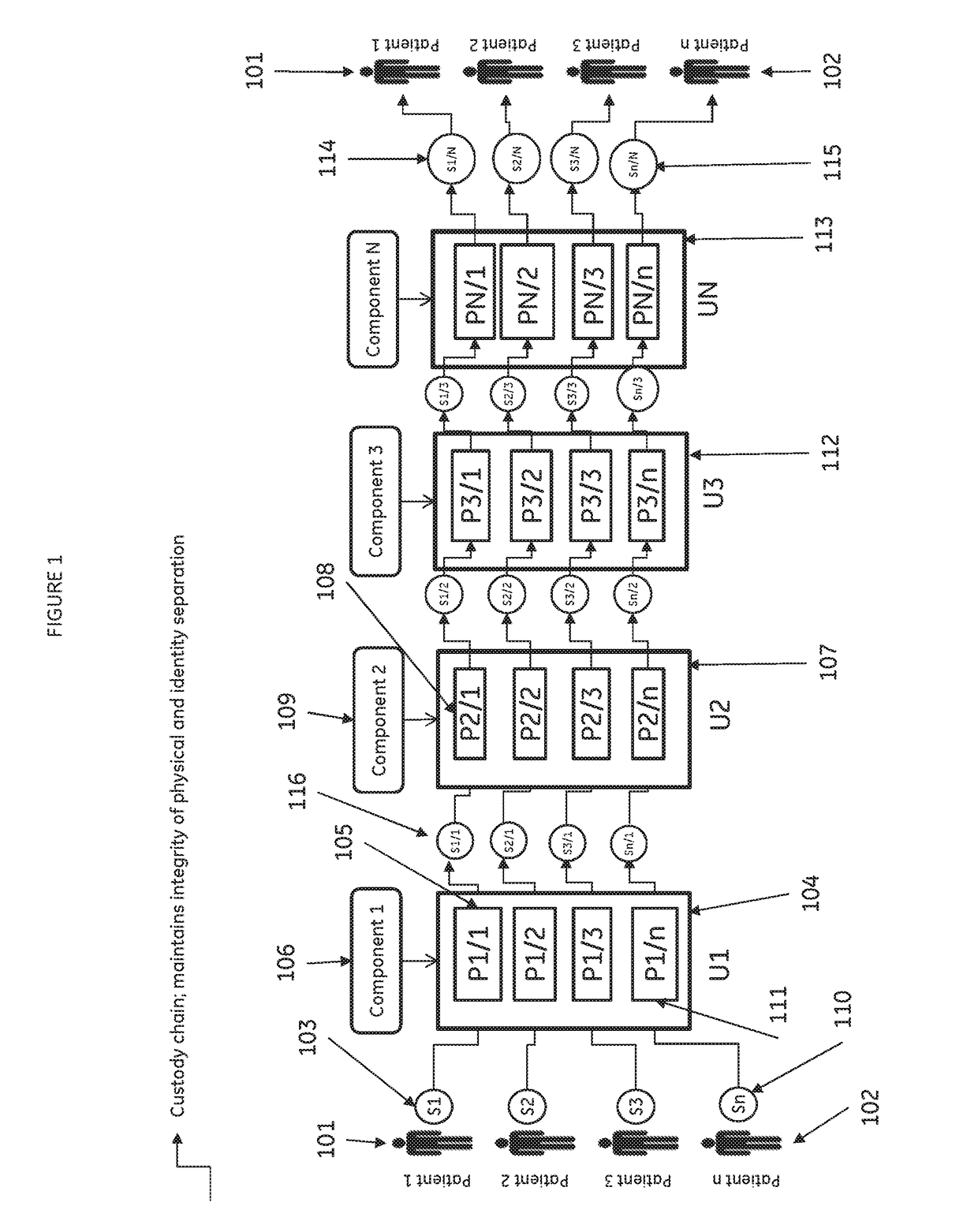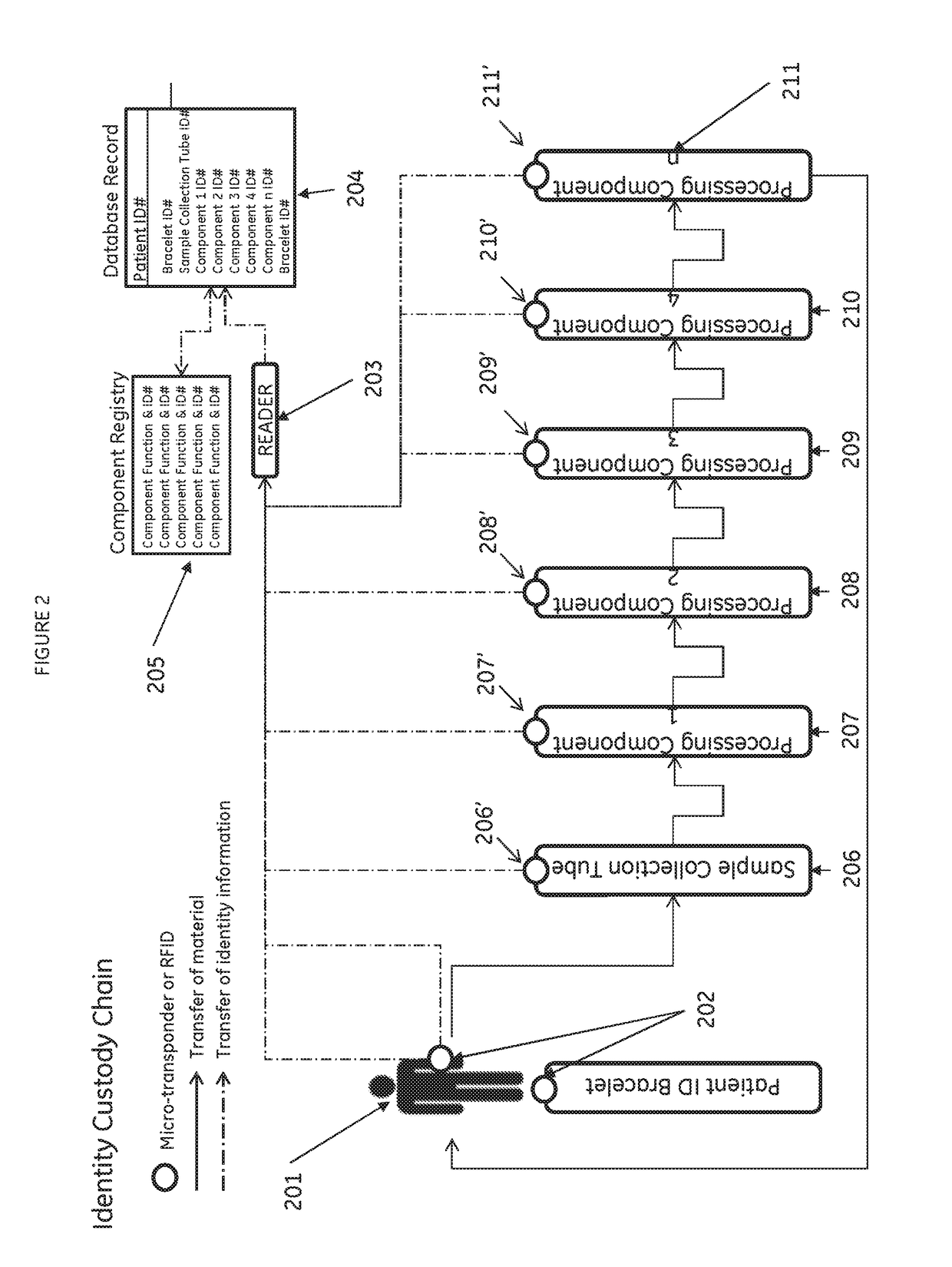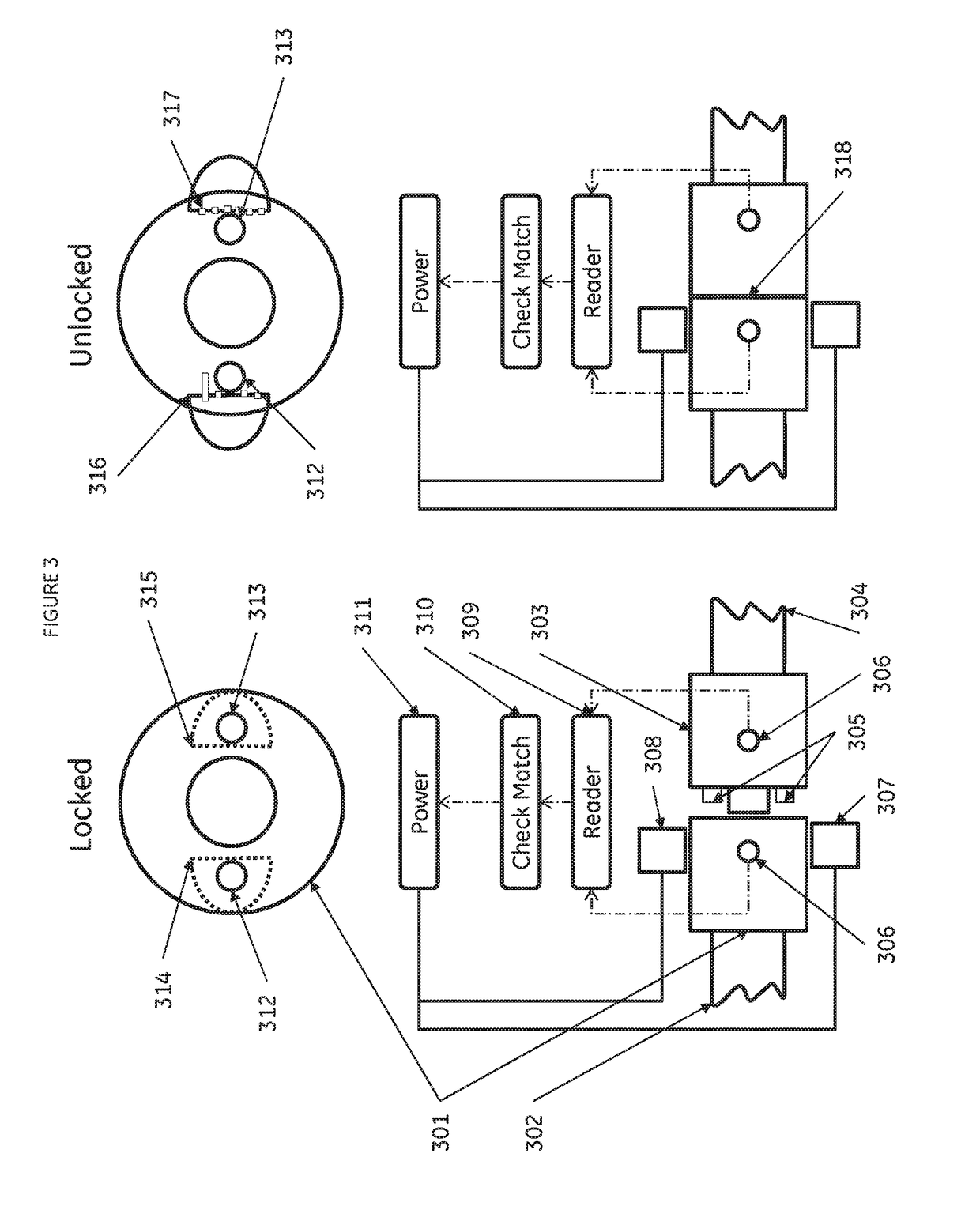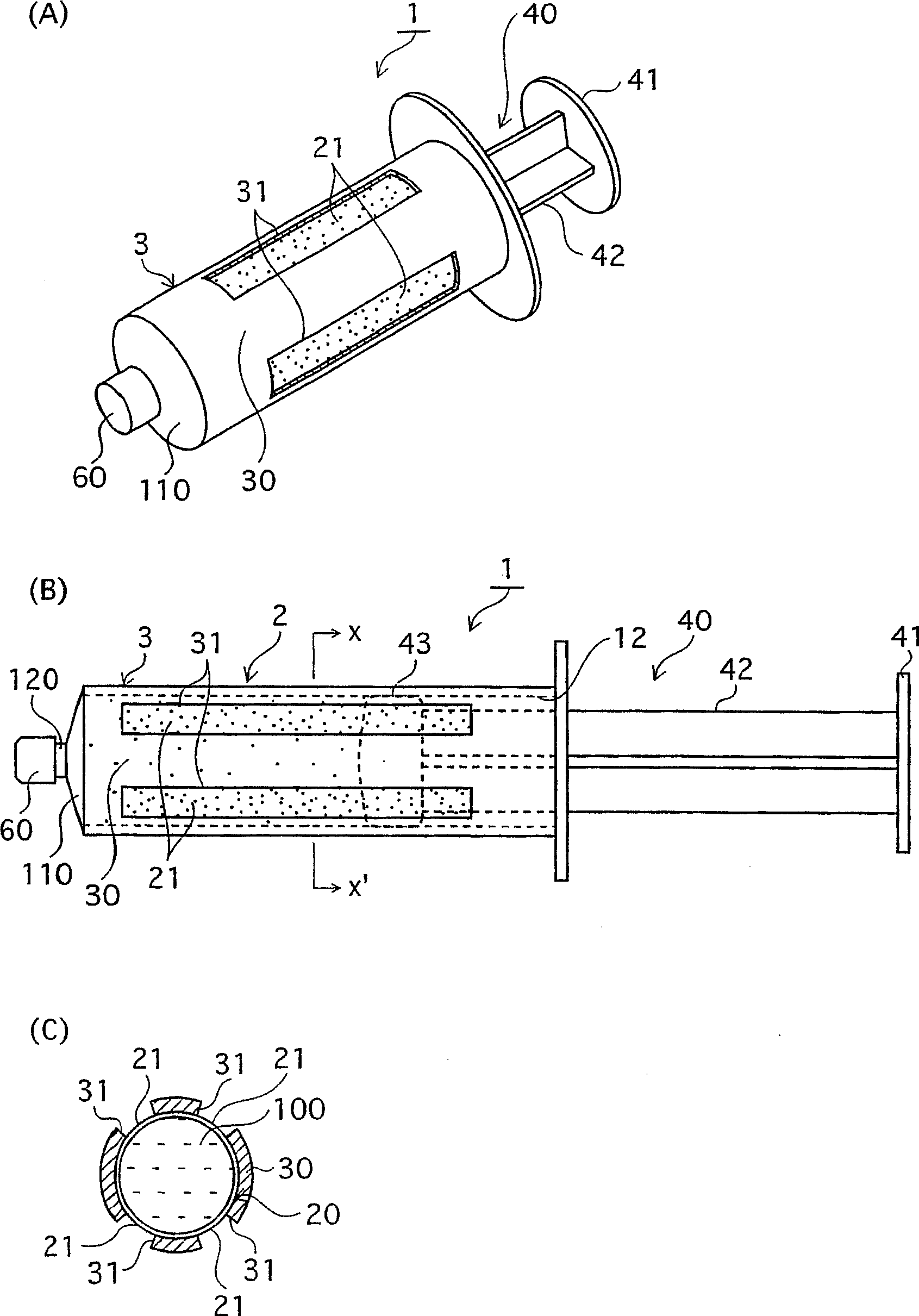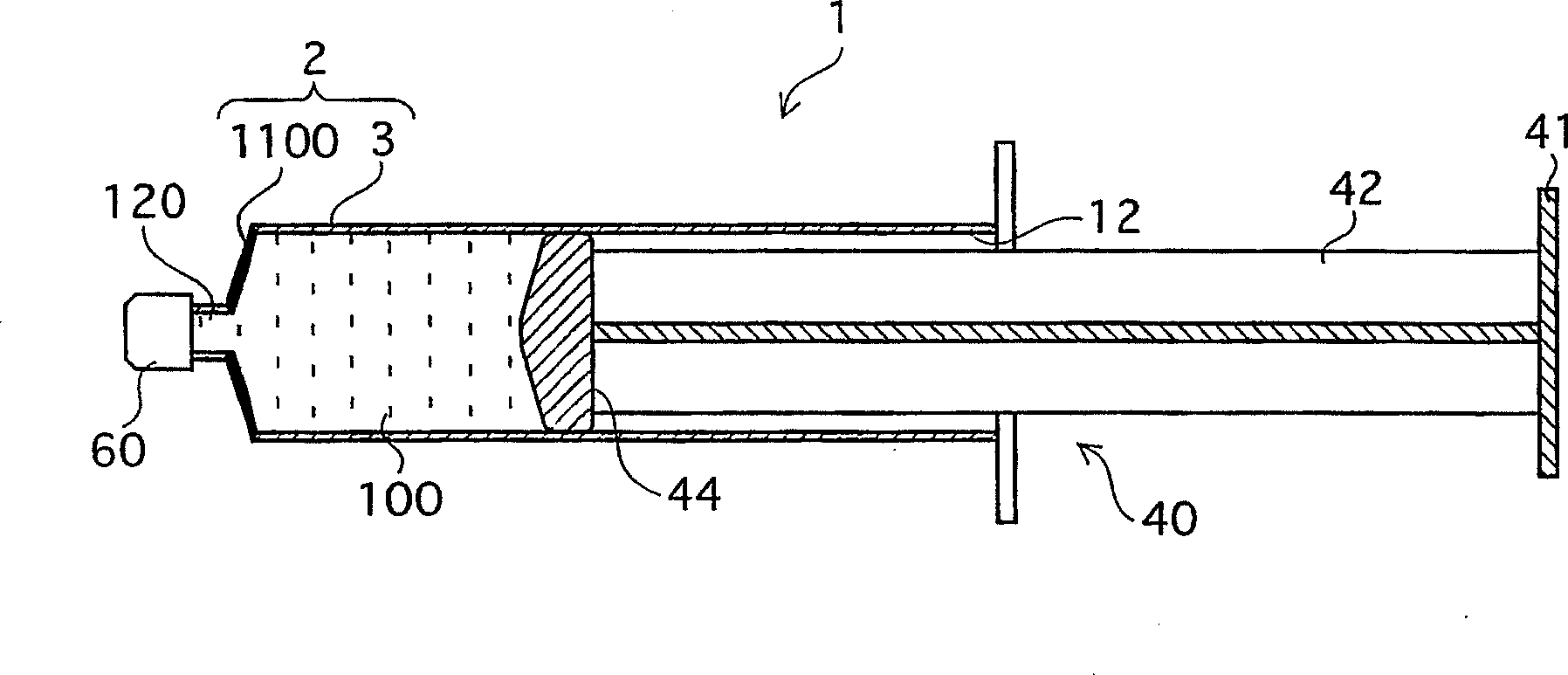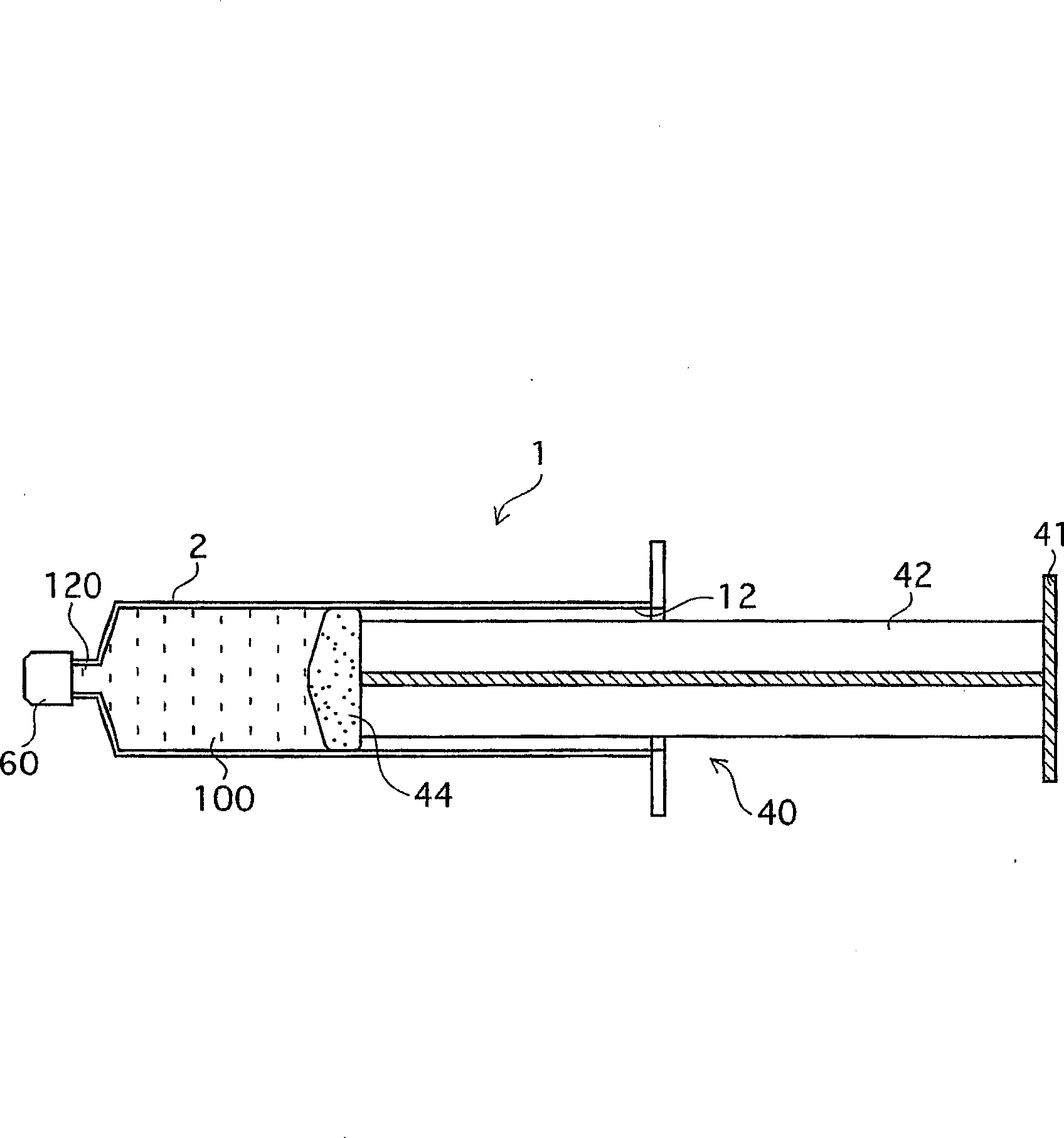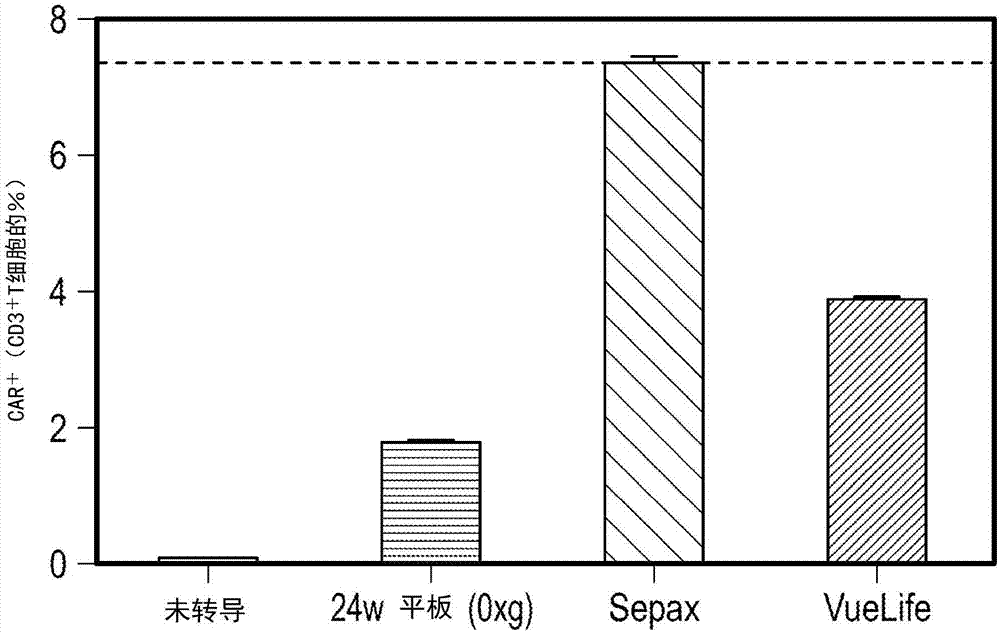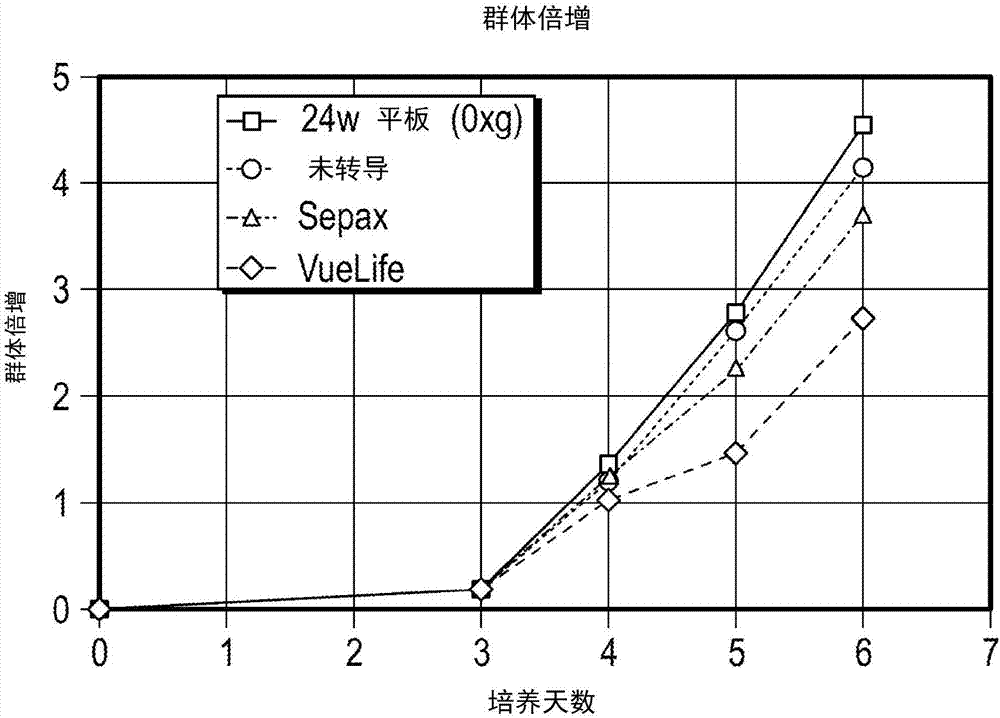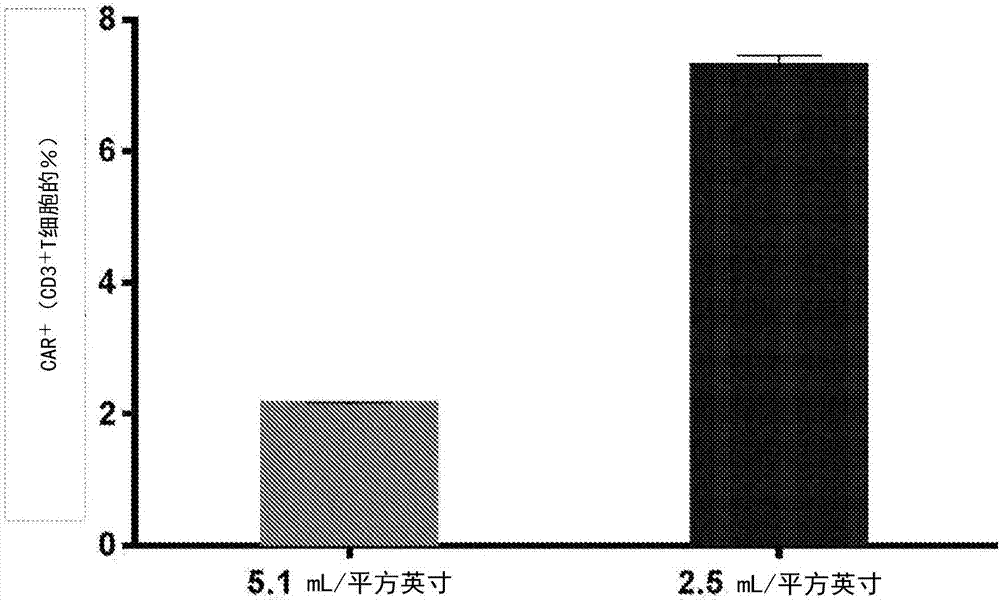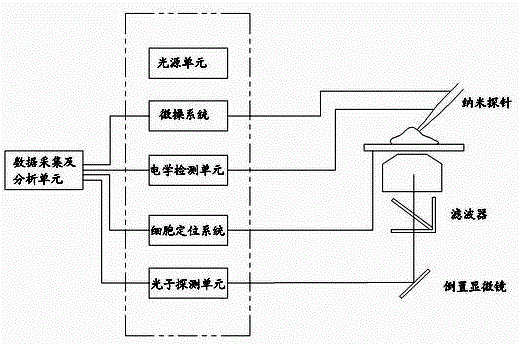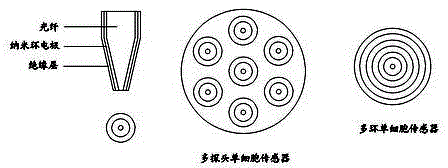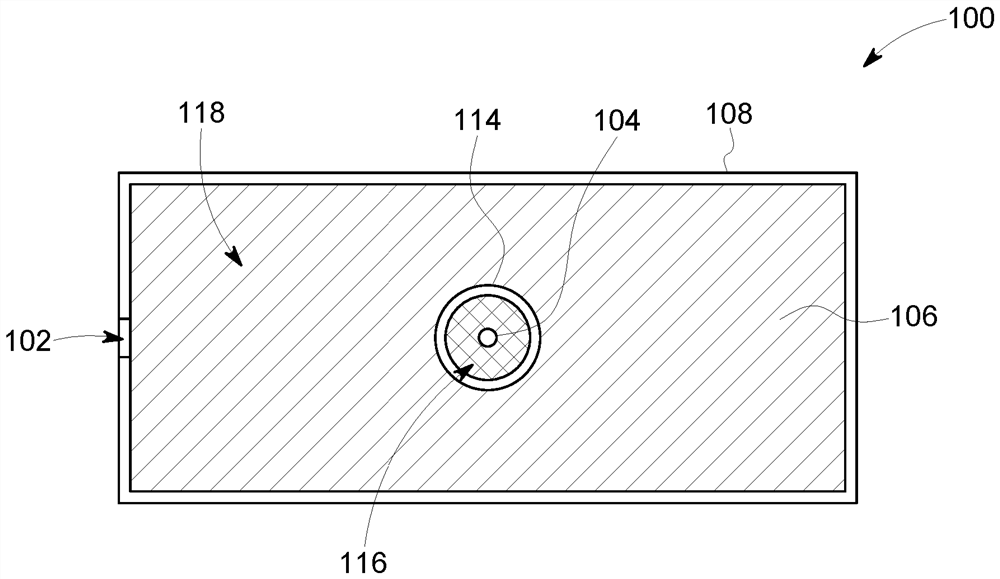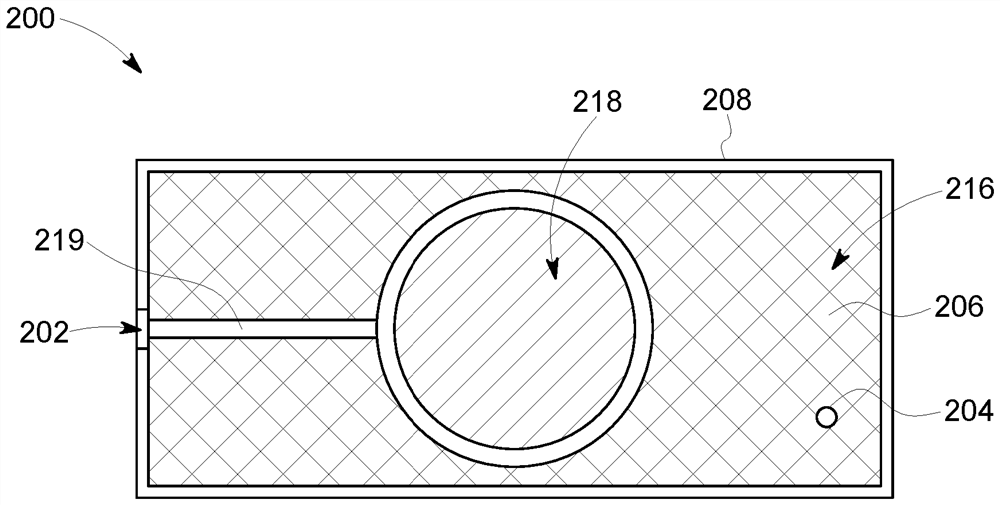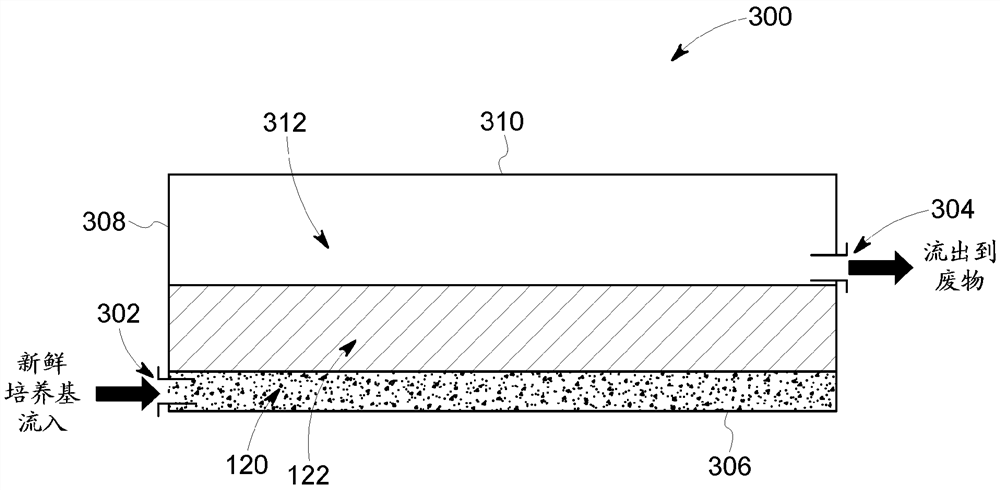Patents
Literature
69 results about "Cell handling" patented technology
Efficacy Topic
Property
Owner
Technical Advancement
Application Domain
Technology Topic
Technology Field Word
Patent Country/Region
Patent Type
Patent Status
Application Year
Inventor
Cytometry system with quantum cascade laser source, acoustic detector, and micro-fluidic cell handling system configured for inspection of individual cells
InactiveUS20120225475A1Bioreactor/fermenter combinationsBiological substance pretreatmentsAnalyteCell handling
This disclosure concerns a cytometry system including a handling system that presents single cells to at least one quantum cascade laser (QCL) source. The QCL laser source is configured to deliver light to a cell within the cells in order to induce resonant mid-IR vibrational absorption by one or more analytes, leading to local heating that results in thermal expansion and an associated shockwave. An acoustic detection facility that detects the shockwave emitted by the single cell.
Owner:1087 SYST
Device and method for contacting picoliter volumes of fluid
InactiveUS20070099289A1Avoid adsorptionBioreactor/fermenter combinationsBiological substance pretreatmentsAnalyteLysis
The invention features devices for mixing fluids, e.g., for lysing cells, and methods of use thereof. One device is based on the ability to control the flow of fluids, e.g., by contact angle and channel size. Fluids in this device can be divided to form segments of controlled volume, which are then brought together to initiate midxing. An exemplary use of the device is for the lysis of single cells. Another device is based on the ability to two mix two fluids in a channel and affinity capture of analytes. The devices can be integrated on the same chip with other devices, for example, for cell handling or analysis of DNA, rnRNA, and proteins released from the lysis of a cell.
Owner:THE GENERAL HOSPITAL CORP
Method and apparatus for integrated cell handling and measurements
ActiveUS20070155016A1Inexpensive mass productionEfficient multiplexingImmobilised enzymesBioreactor/fermenter combinationsElectricityLow voltage
Method and systems provide improved cell handling in microfluidic systems and devices using lateral cell trapping and methods of fabrication of the same that allow for selective low voltage electroporation and electrofusion.
Owner:RGT UNIV OF CALIFORNIA
Cell handling device, human tissue regeneration composition, and human tissue regeneration method
InactiveUS20070020754A1Easy injectionBioreactor/fermenter combinationsNervous disorderHuman bodyCultured cell
The main objects of the present invention, which relates to regenerative medical treatments, are to enable (i) storage and conveyance of harvested or cultured cells without contamination occuring (ii) simple injection of the cells into a living body. To achieve these objects, cells harvested from a living body, or cells obtained by culturing harvested cells, are stored in a syringe-type storage vessel and subsequently transplanted into a living body. It is preferable that at least a part of the storage vessel inner wall in contact with the cells is formed from a cell non-adhesive material. Besides enabling cells in the vessel to take in the oxygen they require to survive, the present invention also enables cells quick and easy transplantation of cells into a living body without a cell detachment process, because cells are prevented from adhering to the inside of the vessel. Further, it is preferable that a stored tissue regeneration composition contains cell culture microcarriers floating in a fluidity medium, and that the cell culture microcarriers are composed of a bioabsorbable material and have cells adhering to their surfaces. Using this kind of tissue regeneration composition, a regenerative treatment can be carried out satisfactorily by simply and quickly transplanting cells from the syringe-type cell storage vessel into a living body without intricate scaffold-related procedures being required.
Owner:JMS CO LTD
Large format cell handling for high speed assembly
InactiveUS20130255068A1Increase speedLow costAssembling battery machinesElectronic circuit testingCell handlingEngineering
A battery pack assembly and a method of making the same. The method includes using lifters with a cammed conveyor delivery mechanism to facilitate edgewise stacking of generally planar battery cells. The lifter spacing and cam profile are designed in such a way as to orient individual battery cell tabs and cooling fin assemblies to keep them close together but without applying significant forces to the stackable components. Combining conveyor streams allows components to be processed in parallel and sequenced correctly onto a single conveyor. Use of lifter integrated conveyor belt with cams and guides for individual battery cell orientation and sequencing promotes high speed assembly without a need to change component directions. The use of high-speed component delivery high is compatible with allowing more component placement variation, while the edgewise orientation of the components being assembled permits the use of small manufacturing footprints.
Owner:GM GLOBAL TECH OPERATIONS LLC
Unicell detector based on nano fiber probe and its probe manufacturing method
ActiveCN103105353AIncrease success rateEnhanced interactionNanosensorsIndividual particle analysisPhoton detectionNanoring
The invention relates to an unicell detector based on a nano fiber probe, which comprises a nano probe, a light source unit, a micro operation system, an electricity detection unit, a cellular localization system and a photon detection unit, an innermost layer of the nano probe is a fiber layer, the outer wall of the fiber layer is wrapped with a nano ring electrode layer, and the outer wall of the nano ring electrode layer is wrapped with an insulating layer. A manufacturing method of the unicell detector based on the nano fiber probe comprises the steps of drawing, sputtering, making the insulating layer and cutting focused ion beam. The unicell detector has high sensitivity and can realize the unicell grade detection, compared with a traditional detection means by crushing millions of cells, the required cell sample amount is greatly reduced, and the success rate of disease detection at early stage can be increased. The unicell detector can perform in-vivo cell detection and can avoid the false appearance generation during a cell processing process. The space-time resolution and detectable target object scope can be greatly enhanced, and a biochemistry mechanism in the unicell enables real-time detection and analysis.
Owner:SOUTHWEST UNIVERSITY
IRX-2 modified manufacturing process
ActiveUS8470562B2Peptide/protein ingredientsElectrical/wave energy microorganism treatmentPhytohemagglutininsWhite blood cell
A highly efficient method of making a primary cell derived biologic by purifying mononuclear cells (MNCs) in a automated cell processor to remove contaminating cells by loading leukocytes onto lymphocyte separation medium (LSM) and centrifuging the medium to obtain purified MNCs, storing the MNCs overnight in a closed sterile bag system, stimulating an induction mixture of the MNCs with phytohemagglutinin (PHA) or other mitogen and ciprofloxacin in a scalable cell culture device and producing a primary cell derived biologic from the MNCs, removing the mitogen from the induction mixture by filtering, incubating the induction mixture, clarifying the induction mixture by filtering to obtain a primary cell derived biologic supernatant, and clearing the primary cell derived biologic supernatant from adventitious agents by anion exchange chromatography, filtration. A closed system prevents contamination of the resulting primary cell derived biologic. An automated method of purifying cells. A method of scalably inducing cells.
Owner:BROOKLYN IMMUNOTHERAPEUTICS LLC
Methods and apparatus for integrated cell handling and measurements
InactiveCN101400778AEasy to manufactureEasy to separateBioreactor/fermenter combinationsBiological substance pretreatmentsCell handlingCell trapping
Owner:RGT UNIV OF CALIFORNIA
Cell handling device, tissue regeneration composition, and tissue regeneration method
InactiveUS20100137811A1Easy injectionBioreactor/fermenter combinationsNervous disorderCell handlingEngineering
A syringe-type cell handling device for storing and subsequently transplanting, into a living body, cells harvested from a living body or cells obtained by culturing harvested cells. The syringe-type cell handling device includes a vessel having a closed mouth and being at least partially composed of a main body, and a plunger that is slidably insertable into the main body such that the handling medium can be transplanted into a living body by applying a pushing force to the plunger. At least a part of the device that contacts the fluid handling medium, when the vessel holds the handling medium, is a gas permeable region for passing a quantity of gas necessary for survival of the cells. It is preferable that at least a part of the storage vessel inner wall in contact with the cells is formed from a cell non-adhesive material.
Owner:YUGE RUI +2
Highly-sensitive multicomponent simultaneous detection method and system of miRNAs in single cells on basis of droplet microfluidic technology
InactiveCN109988821AEfficient processing capacityAvoid degradationBioreactor/fermenter combinationsBiological substance pretreatmentsCell processingReaction rate
The invention provides a highly-sensitive multicomponent simultaneous detection method and system of microRNAs in single cells on the basis of a droplet microfluidic technology, and belongs to the technical field of biological detection and molecular biology. Compared with the prior art, the efficient cell processing capacity is achieved, 100 cells can be captured per second, and 13,000 cells canbe detected per hour. By means of secondary isothermal amplification in droplets, the amplification reaction rate and detection sensitivity are improved, multiple down-regulated expression microRNAs in a single cell can be analyzed. Isolation space in droplets can effectively prevent degradation of the microRNAs and ensure the accuracy of detection, and the method and system have good practical application value.
Owner:SHANDONG NORMAL UNIV
Fixed-length cell handling switching system and a method for controlling a read rate of a fixed-length cell
InactiveUS6185186B1Improve system performanceImprove process capabilityError preventionTransmission systemsManagement unitCell handling
The invention relates to a fixed-length cell handling switching system and a method for controlling a read rate of a fixed-length cell. The fixed-length cell handling switching system has a quality class identifier relating unit for relating a quality class identifier according to a quality class of a cell, a quality controlling buffer unit including a managing unit, a buffer and a read rate information holding unit, and a call handling control unit including a virtual band setting unit for setting a virtual band of the buffer and a read rate setting control unit for setting and controlling a read rate, wherein a read rate for each quality class is dynamically changed, whereby a transmitting process is conducted according to a required quality class without affecting fixed-length cells of calls having different qualities on each other.
Owner:FUJITSU LTD
Pouch cell
ActiveUS20160344004A1No impact on seal integrityEasy to manufactureCells structural combinationCell component detailsCell handlingEngineering
The present invention relates to the field of battery cells, particularly to a pouch cell comprising a packaging seal, a heating element and a fault switch, wherein the fault switch will activate the heating element to generate heat to make the packaging seal delaminate when the inner space of the pouch cell reaches a predetermined pressure, such that the pouch cell vents. The mechanism and components of these venting concepts can be designed to be fully compatible with existing manufacturing methods and typical cell handling situations. The most favorable configuration has both vent device components outside the cell, with nothing passing through or even into the seal. Such a configuration has the advantage of having no impact on the seal integrity relative to a conventional pouch cell, is easy to manufacture, and has improved safety.
Owner:FARASIS ENERGY
Method and apparatus for integrated cell handling and measurements
ActiveUS8058056B2Cheap productionEfficient multiplexingImmobilised enzymesBioreactor/fermenter combinationsElectricityLow voltage
Method and systems provide improved cell handling in microfluidic systems and devices using lateral cell trapping and methods of fabrication of the same that allow for selective low voltage electroporation and electrofusion.
Owner:RGT UNIV OF CALIFORNIA
Device and method for contacting picoliter volumes of fluids
InactiveUS8043846B2Avoid adsorptionBioreactor/fermenter combinationsBiological substance pretreatmentsAnalyteLysis
The invention features devices for mixing fluids, e.g., for lysing cells, and methods of use thereof. One device is based on the ability to control the flow of fluids, e.g., by contact angle and channel size. Fluids in this device can be divided to form segments of controlled volume, which are then brought together to initiate mixing. An exemplary use of the device is for the lysis of single cells. Another device is based on the ability to two mix two fluids in a channel and affinity capture of analytes. The devices can be integrated on the same chip with other devices, for example, for cell handling or analysis of DNA, mRNA, and proteins released from the lysis of a cell.
Owner:THE GENERAL HOSPITAL CORP
Network evaluated hard hardover using predictions
ActiveUS8135407B2Way of increaseReduce riskTransmission monitoringWireless communicationCell handlingEngineering
Owner:TELEFON AB LM ERICSSON (PUBL)
Cell handling device, human tissue regeneration composition,and human tissue regeneration method
InactiveCN1860218AConducive to fixed growthReduce the number of adhesionsBioreactor/fermenter combinationsBiological substance pretreatmentsBiological bodyCell handling
A cell handling device capable of storing and carrying sampled or cultured cells without being contaminated from the surroundings in regeneration treatment and easily injecting the cells in the living body, wherein the cells are sampled from the living body, the sampled cells or the cells provided by culturing the cells are stored in a syringe type storage container, and the cells stored in the storage container are transplanted into the living body. The cell storage container is desirably such that a part or more of the inner wall of the container in contact with the cells is formed with a cell unbonded material. Since the cells can take in oxygen required for the living thereof in the container and are prevented from being adhered to the inner wall of the container, the cells can be easily and rapidly transplanted to the living body without applying cell releasing treatment to the cells when the cells are used in the field of the regeneration treatment.
Owner:JMS CO LTD +1
Physical resource allocation method and equipment
The embodiment of the invention provides a physical resource allocation method and physical resource allocation equipment. The physical resource allocation method comprises the steps that: user equipment receives a system broadcast message or a radio resource control protocol RRC reconfiguration message sent by a base station, and the system broadcast message or the RRC reconfiguration message is used for indicating that the base station supports the user equipment at a first ability category to carry out 64 quadrature amplitude modulation QAM on uplink data; the user equipment sends the ability category and uplink modulation information of the user equipment to the base station, the uplink modulation information is used for indicating that the user equipment is supportive of carrying out the 64 QAM on the uplink data, wherein the ability category of the user equipment belongs to the first ability category, so that the base station can allocate physical resources to the user equipment according to the ability category and the uplink modulation information of the user equipment; and the user equipment receives the physical resources allocated to the user equipment by the base station, utilizes the physical resources and reports data to the base station in a 64QAM modulation manner. The physical resource allocation method and the physical resource allocation equipment can enhance cell handling capacity.
Owner:CHENGDU TD TECH LTD
Method for preparing calcium alginate-fat acellular matrix microcarrier by applying micro-fluidic chip
The invention provides a method for preparing a calcium alginate-fat acellular matrix microcarrier by applying a micro-fluidic chip. The method specifically comprises the following steps: subjecting human adipose tissue to repeated freeze thawing, performing emulsifying to obtain nano fat, performing centrifuging to remove upper-layer oil and lower-layer water, subjecting the middle layer to decellularization with a PBS buffer solution, a trypsin-EDTA digestive solution, isopropanol and a mixed enzyme solution, performing soaking, extracting and centrifuging with an alpha-amylase aqueous solution and acetic acid to obtain supernatant, mixing the supernatant with a sodium alginate solution with the same volume, taking the obtained mixture as a dispersed phase, introducing the mixture into amicro-fluidic chip, introducing n-decanol containing span-80 as a continuous phase into micro-fluidic chip to obtain acellular matrix-sodium alginate droplets coated by the n-decanol, finally introducing an n-decanol solution containing CaCl2 for crosslinking overnight, and washing off n-decanol to obtain the calcium alginate-fat acellular matrix microcarrier. The method can produce the acellularmatrix microcarrier with uniform components, and the obtained microcarrier is more beneficial to cell growth and can be used for culturing adipose-derived stem cells.
Owner:XIEHE HOSPITAL ATTACHED TO TONGJI MEDICAL COLLEGE HUAZHONG SCI & TECH UNIV
Cell treatment system
ActiveUS20200325432A1Reduce sizeEasy to getBioreactor/fermenter combinationsBiological substance pretreatmentsMedicineCell handling
A cell treatment system includes an analysis unit to calculate the area or size of each of cell aggregates existing on the cell culture vessel based on an image; a display device to show the area or size of each of the cell aggregates on a display; a laser irradiator to emit. laser toward the cell culture vessel so as to kill cells existing on the cell culture vessel; an input device to receive an operation input designating cells to be killed with irradiation of the laser or cells to survive without the irradiation of the laser among the cells existing on the cell culture vessel, or an operation input designating a position to be irradiated with the laser or a position not to be irradiated with the laser on the cell culture vessel; and a control unit to control a position irradiated with the laser,
Owner:KATAOKA
Preparation method for collagen-graphene oxide-adipose acellular matrix microcarrier
InactiveCN109675111AGood for cell growthPromote growthTissue regenerationProsthesisMicrofluidic chipMicro fluidic
The invention provides a preparation method for a collagen-graphene oxide-adipose acellular matrix microcarrier. The method specifically comprises the following steps: taking a human adipose tissue, repeatedly freezing and thawing, and then emulsifying to obtain fat; centrifuging and removing upper layer oil and lower layer water; taking an intermediate layer, and performing decellularized treatment by adopting a PBS (Phosphate buffer solution), trypsase-EDTA digestive juice, isopropyl alcohol and a mixed enzyme solution; then homogenating by using an alpha-amylase water solution and acetic acid to obtain an adipose acellular matrix solution, and mixing with a collagen-graphene oxide solution to be used as a dispersion phase for feeding into a micro-fluidic chip; and using n-decyl alcoholcontaining span-80 as a continuous phase for feeding into the micro-fluidic chip to obtain an acellular matrix-collagen-graphene oxide liquid drop wrapped with the n-decyl alcohol, and crosslinking through crosslinking liquid to obtain the microcarrier. The method provided by the invention is capable of generating the acellular matrix microcarrier with homogeneous components; and the obtained microcarrier is more beneficial to cell growth, and can be used for culturing adipose stem cell.
Owner:XIEHE HOSPITAL ATTACHED TO TONGJI MEDICAL COLLEGE HUAZHONG SCI & TECH UNIV
Pouch cell
ActiveCN106169551AWill not affect seal integrityEasy to manufactureSecondary cellsCell component detailsInternal pressureCell handling
The present invention relates to the field of battery cells, particularly to a pouch cell comprising a packaging seal, a heating element and a fault switch, wherein the fault switch will activate the heating element to generate heat to make the packaging seal delaminate when the inner space of the pouch cell reaches a predetermined pressure, such that the pouch cell vents. The mechanism and components of these venting concepts can be designed to be fully compatible with existing manufacturing methods and typical cell handling situations. The most favorable configuration has both vent device components outside the cell, with nothing passing through or even into the seal. Such a configuration has the advantage of having no impact on the seal integrity relative to a conventional pouch cell, is easy to manufacture, and has improved safety.
Owner:FUNENG TECH (USA) CO
Cell treatment apparatus
ActiveUS20200024562A1Bioreactor/fermenter combinationsBiological substance pretreatmentsCell handlingCulture vessel
A cell treatment apparatus capable of treating cells in a cell culture vessel. The cell treatment apparatus (100) according to the present invention includes a first region (1), a second region (3), and a third region (5). The first region (1) and the second region (3) are placed in succession. The first region (1) is a cell treatment chamber for treating cells. The cell treatment chamber can be closed from the outside of the cell treatment chamber and includes a culture vessel placement portion for placing a cell culture vessel. The second region (3) includes a laser irradiation device capable of irradiating the cell culture vessel placed in the culture vessel placement portion with a laser. The third region (5) includes a control device that controls at least one device in the cell treatment apparatus (100) and a power supply device (52) that supplies electric power to at least one device in the cell treatment apparatus (100). The culture vessel placement portion is placed to be adjacent to the second region (3) in the cell treatment chamber. An adjacent portion to the second region (3) in the culture vessel placement portion is translucent.
Owner:KATAOKA
Adjusting the targeted number of transmission attempts
InactiveUS8045994B2Improved and flexible determinationError prevention/detection by using return channelPower managementCell handlingMobile station
The invention is directed towards a method and transmission attempt determining device for adjusting the targeted number of transmission attempts in uplink communications between mobile stations and a cell in a wireless network handled by a cell handling device. According to the invention measurement data (RC) of radio conditions and service requirement data (SR) of the uplinks for mobile stations are obtained (36, 38, 40). Based on this data a determination (42) is made if the targeted number of transmission attempts should be adjusted. If a change should be made (42) an increase or a decrease is then determined (44) and the targeted number of transmission attempts are adjusted in the selected direction (46).
Owner:TELEFON AB LM ERICSSON (PUBL)
Microfluidic chip and microfluidic device for physicochemically treating single cell, and method for physicochemically treating single cell by using microfluidic chip and microfluidic device
PendingUS20210245156A1Bioreactor/fermenter combinationsBiological substance pretreatmentsCell handlingEngineering
Provided is a microfluidic chip for physicochemically treating a single cell whose diameter is 50-400 micrometers. The body of the microfluidic chip comprises a fluidic layer, a pneumatic layer, and an elastic film sandwiched between the fluidic layer and the pneumatic layer; the fluidic layer comprises a switch-back single cell treating and retrieving channel, a first reagent inflow channel, a second reagent inflow channel, a reagent mixing channel, a third reagent inflow channel, a backwash channel, and a negative pressure and waste liquid sharing channel; the pneumatic layer comprises a pneumatic micro-valve group for controlling the opening and closing of each channel in the fluidic layer; the first reagent inflow channel and the second reagent inflow channel are separately connected with the inlet of the reagent mixing channel; the reagent mixing channel, the third reagent inflow channel, the backwash channel, and the negative pressure and waste liquid sharing channel are separately connected with the switch-back single cell treating and retrieving channel; and the third reagent inflow channel and the backwash channel are separately independent channels or share one channel. Also provided is a microfluidic device comprising the microfluidic chip and a method for physicochemically treating a single cell by using the microfluidic chip and the microfluidic device.
Owner:SHENZHEN VITAVITRO BIOTECH CO LTD
Cell processing method
ActiveUS20170161466A1Mechanical/radiation/invasive therapiesPreparing sample for investigationBiological cellCell processing
The present invention provides improved methods for maintaining the physical separation and identity integrity of a biological cellular sample from a patient during processing. The invention enables parallel processing of biological cellular samples, such as patient samples, in a space and time efficient fashion. The methods of the invention find particular utility in processing patient samples for use in cell therapy.
Owner:GLOBAL LIFE SCI SOLUTIONS USA LLC
Cell handling device, tissue regeneration composition, and tissue regeneration method
InactiveCN100497580CConducive to fixed growthReduce the number of adhesionsBioreactor/fermenter combinationsBiological substance pretreatmentsBiological bodyCell handling
A cell handling device capable of storing and carrying sampled or cultured cells without being contaminated from the surroundings in regeneration treatment and easily injecting the cells in the living body, wherein the cells are sampled from the living body, the sampled cells or the cells provided by culturing the cells are stored in a syringe type storage container, and the cells stored in the storage container are transplanted into the living body. The cell storage container is desirably such that a part or more of the inner wall of the container in contact with the cells is formed with a cell unbonded material. Since the cells can take in oxygen required for the living thereof in the container and are prevented from being adhered to the inner wall of the container, the cells can be easily and rapidly transplanted to the living body without applying cell releasing treatment to the cells when the cells are used in the field of the regeneration treatment.
Owner:JMS CO LTD +1
Sample storing liquid applicable to parasitic ovum detection
InactiveCN108308172AEasy to fixEasy maintenanceMaterial analysis by optical meansDead animal preservationMalachite greenMalachite green stain
The invention relates to sample storing liquid applicable to parasitic ovum detection and a use method thereof. The sample storing liquid applicable to parasitic ovum detection is prepared through malachite green, a pH buffering agent, sodium dodecyl sulfate, paraformaldehyde, methyl alcohol, ethyl alcohol, glycerinum, L-alanine, etc. The sample storing liquid has the main beneficial effects that(1) the storing liquid is applicable to storage and treatment of human and animal waste; the cost is low; the sample can be stored for a long term and is conveniently conveyed on the premise that theparasitic ovum is kept complete; the detection environment is improved; the form of the parasitic ovum stored in the liquid-based cell handling liquid can be fixed and maintained, and the parasitic ovum is prevented from swelling and breaking and atrophy, and thus, the convenience of diagnosing is ensured; and (2) the sample storing liquid contains the components which enable soft viewing field background and reduction of vision fatigue, and thus the convenience of observing is ensured.
Owner:博朗(厦门)生物科技有限公司
Methods for transduction and cell processing
ActiveCN107109438AAntibody mimetics/scaffoldsMammal material medical ingredientsAdoptive cellular therapyCell processing
Provided are methods, systems, and kits for cell processing, e.g., for therapeutic use, such as for adoptive cell therapy. The provided methods include transduction methods, in which cells and virus are incubated under conditions that result in transduction of the cells with a viral vector. The incubation in some embodiments is carried out in an internal cavity of a generally rigid centrifugal chamber, such as a cylindrical chamber made of hard plastic, the cavity of which may have a variable volume. The methods include other processing steps, including those carried out in such a chamber, including washing, selection, isolation, culture, and formulation. In particular, the disclosure relates to method providing advantages over available processing methods, such as available methods for large-scale processing. Such advantages include, for example, reduced cost, streamlining, increased efficacy, increased safety, and increased reproducibility among different subjects and conditions.
Owner:JUNO THERAPEUTICS
Unicell detector based on nano fiber probe and its probe manufacturing method
ActiveCN103105353BIncrease success rateEnhanced interactionNanosensorsIndividual particle analysisPhoton detectionNanoring
The invention relates to an unicell detector based on a nano fiber probe, which comprises a nano probe, a light source unit, a micro operation system, an electricity detection unit, a cellular localization system and a photon detection unit, an innermost layer of the nano probe is a fiber layer, the outer wall of the fiber layer is wrapped with a nano ring electrode layer, and the outer wall of the nano ring electrode layer is wrapped with an insulating layer. A manufacturing method of the unicell detector based on the nano fiber probe comprises the steps of drawing, sputtering, making the insulating layer and cutting focused ion beam. The unicell detector has high sensitivity and can realize the unicell grade detection, compared with a traditional detection means by crushing millions of cells, the required cell sample amount is greatly reduced, and the success rate of disease detection at early stage can be increased. The unicell detector can perform in-vivo cell detection and can avoid the false appearance generation during a cell processing process. The space-time resolution and detectable target object scope can be greatly enhanced, and a biochemistry mechanism in the unicell enables real-time detection and analysis.
Owner:SOUTHWEST UNIV
Apparatus and method for perfusion culture
PendingCN113166698ABioreactor/fermenter combinationsBiological substance pretreatmentsPerfusion CultureCell handling
A bioreactor vessel incudes a first compartment configured to receive a suspension comprising cells and a cell culture medium, for use in a cell processing operation, a second compartment for receiving an overflow of the cell culture medium from the first compartment, and an overflow separating the first compartment from the second compartment, the overflow being configured to maintain a level of the cell culture medium in the first compartment.
Owner:GLOBAL LIFE SCI SOLUTIONS USA LLC
Features
- R&D
- Intellectual Property
- Life Sciences
- Materials
- Tech Scout
Why Patsnap Eureka
- Unparalleled Data Quality
- Higher Quality Content
- 60% Fewer Hallucinations
Social media
Patsnap Eureka Blog
Learn More Browse by: Latest US Patents, China's latest patents, Technical Efficacy Thesaurus, Application Domain, Technology Topic, Popular Technical Reports.
© 2025 PatSnap. All rights reserved.Legal|Privacy policy|Modern Slavery Act Transparency Statement|Sitemap|About US| Contact US: help@patsnap.com
